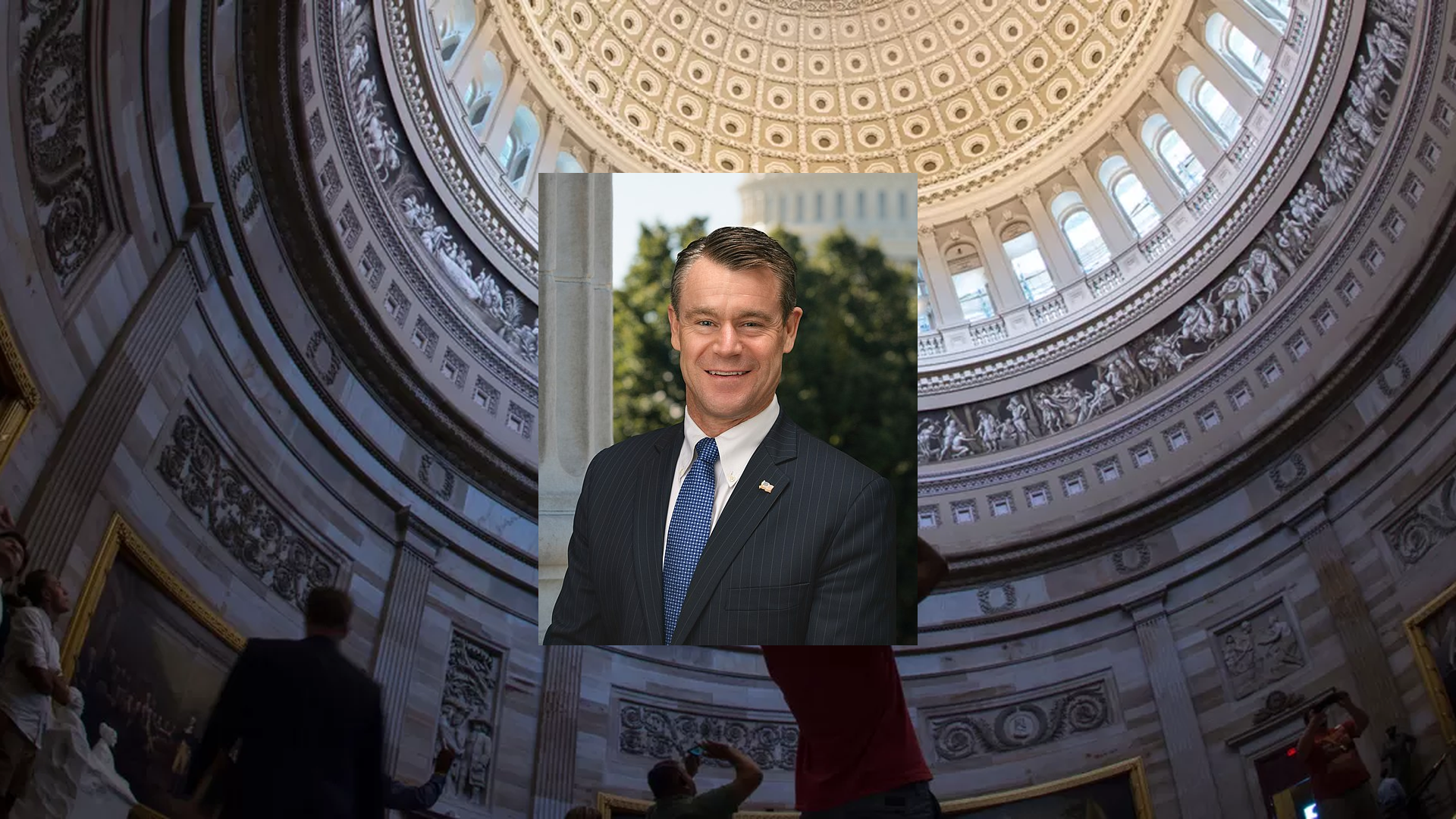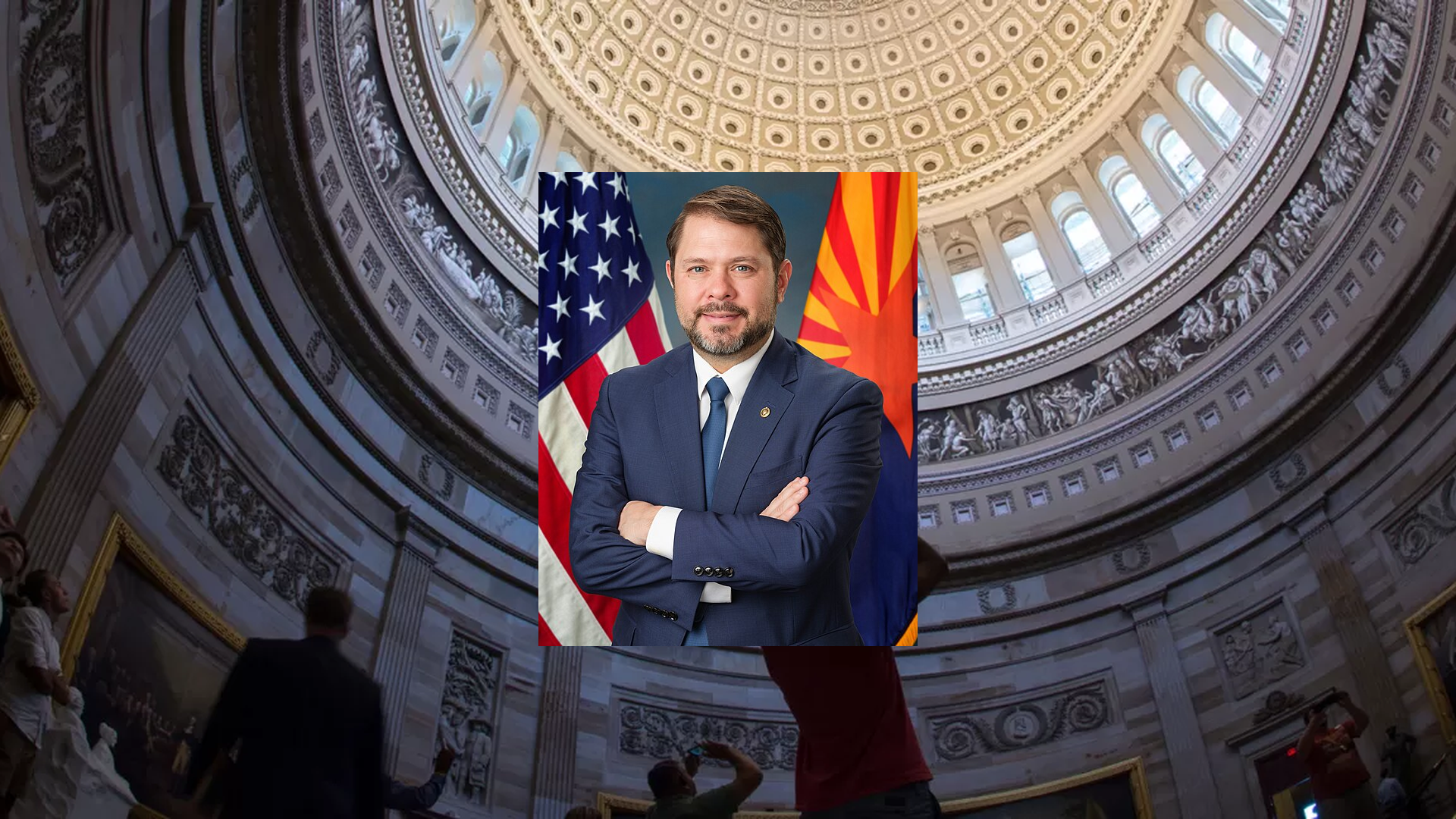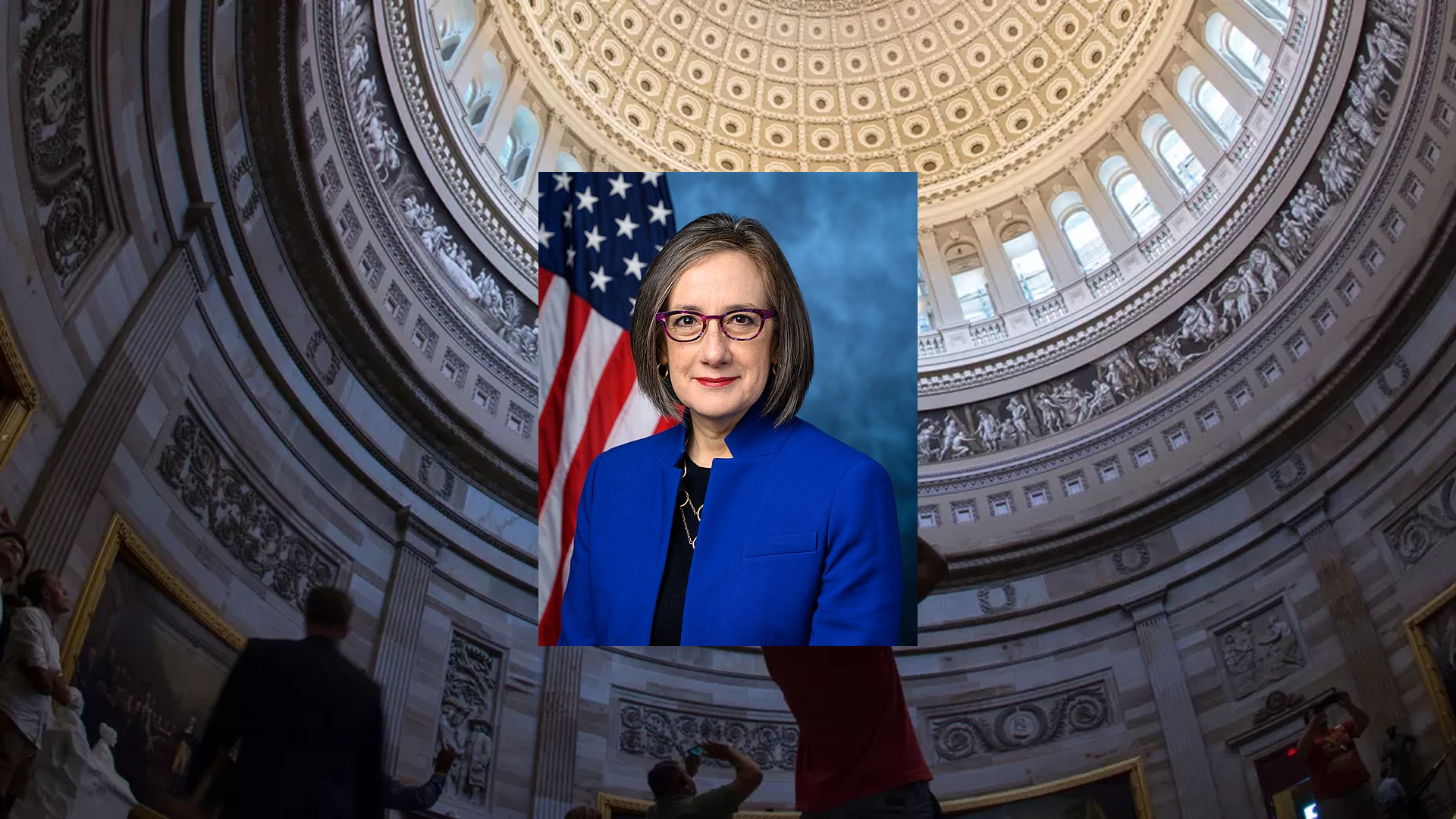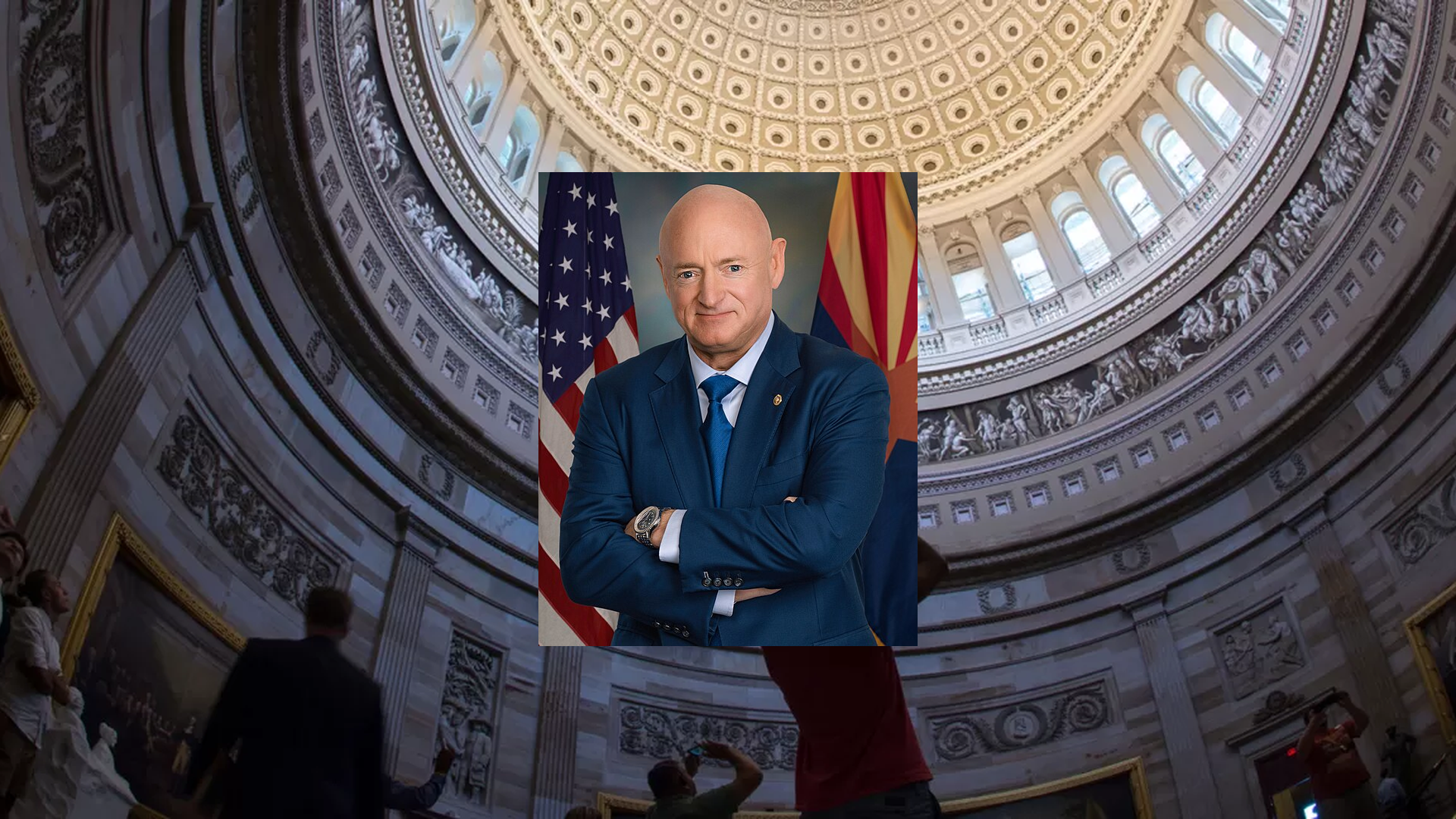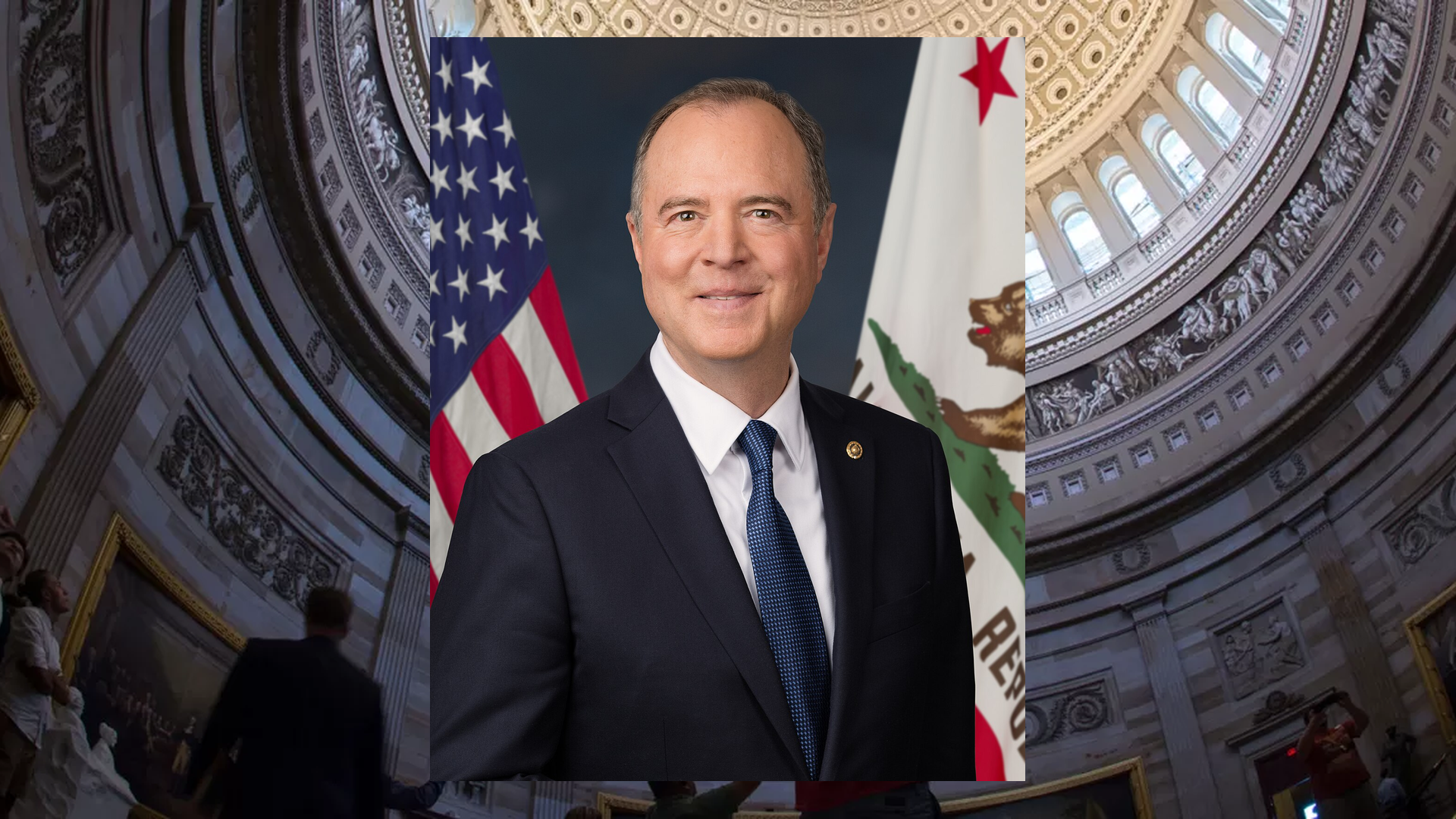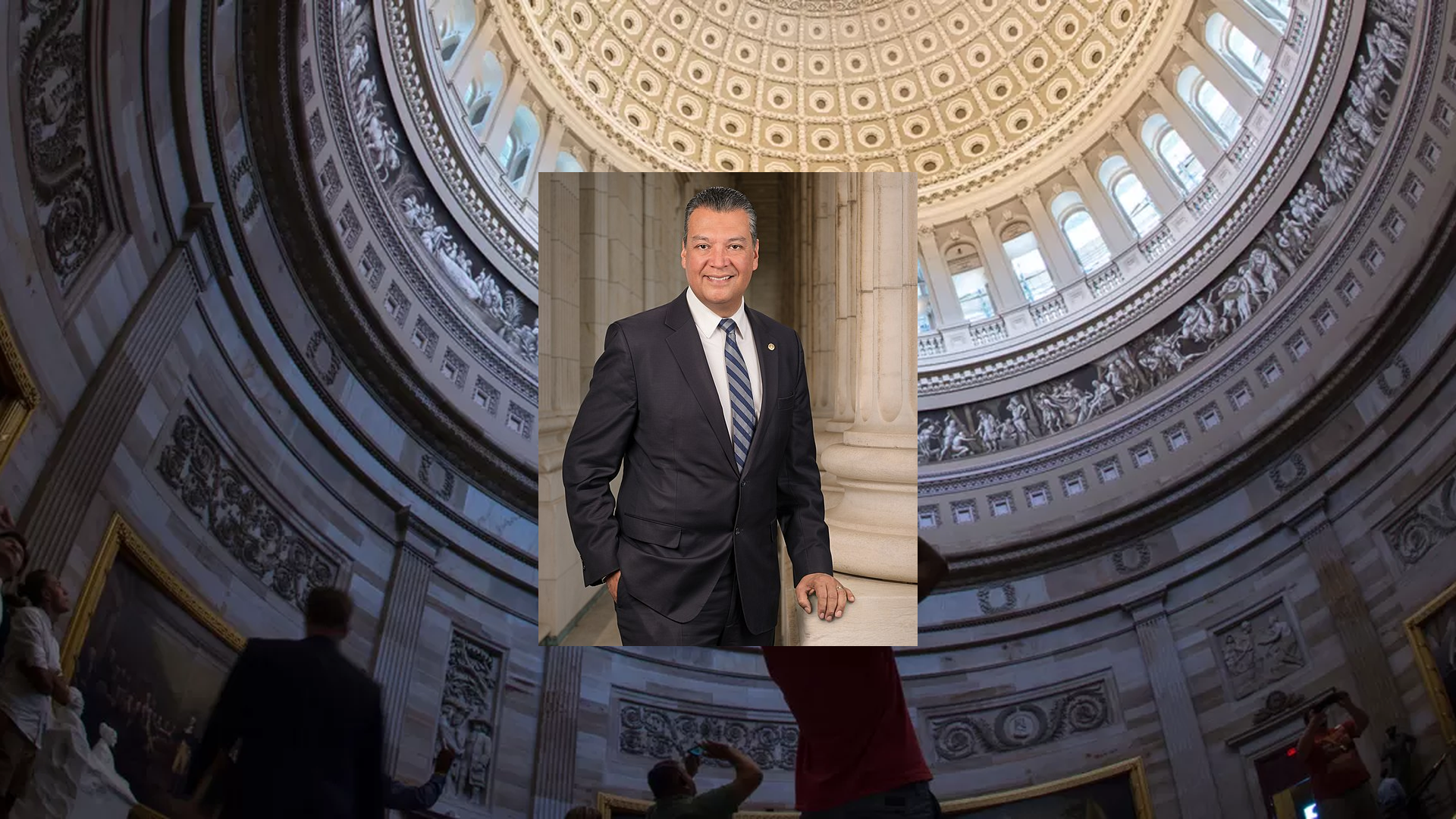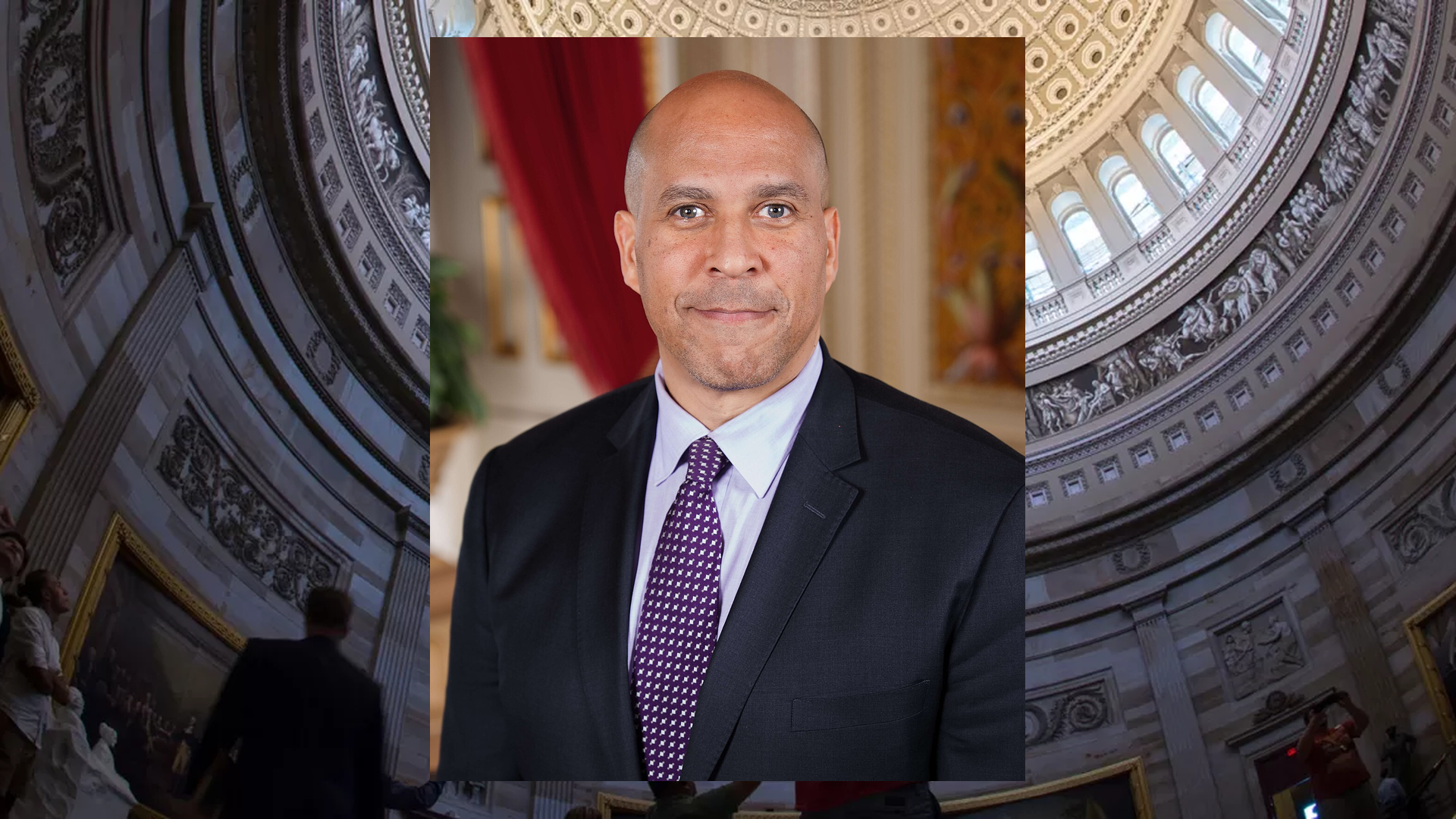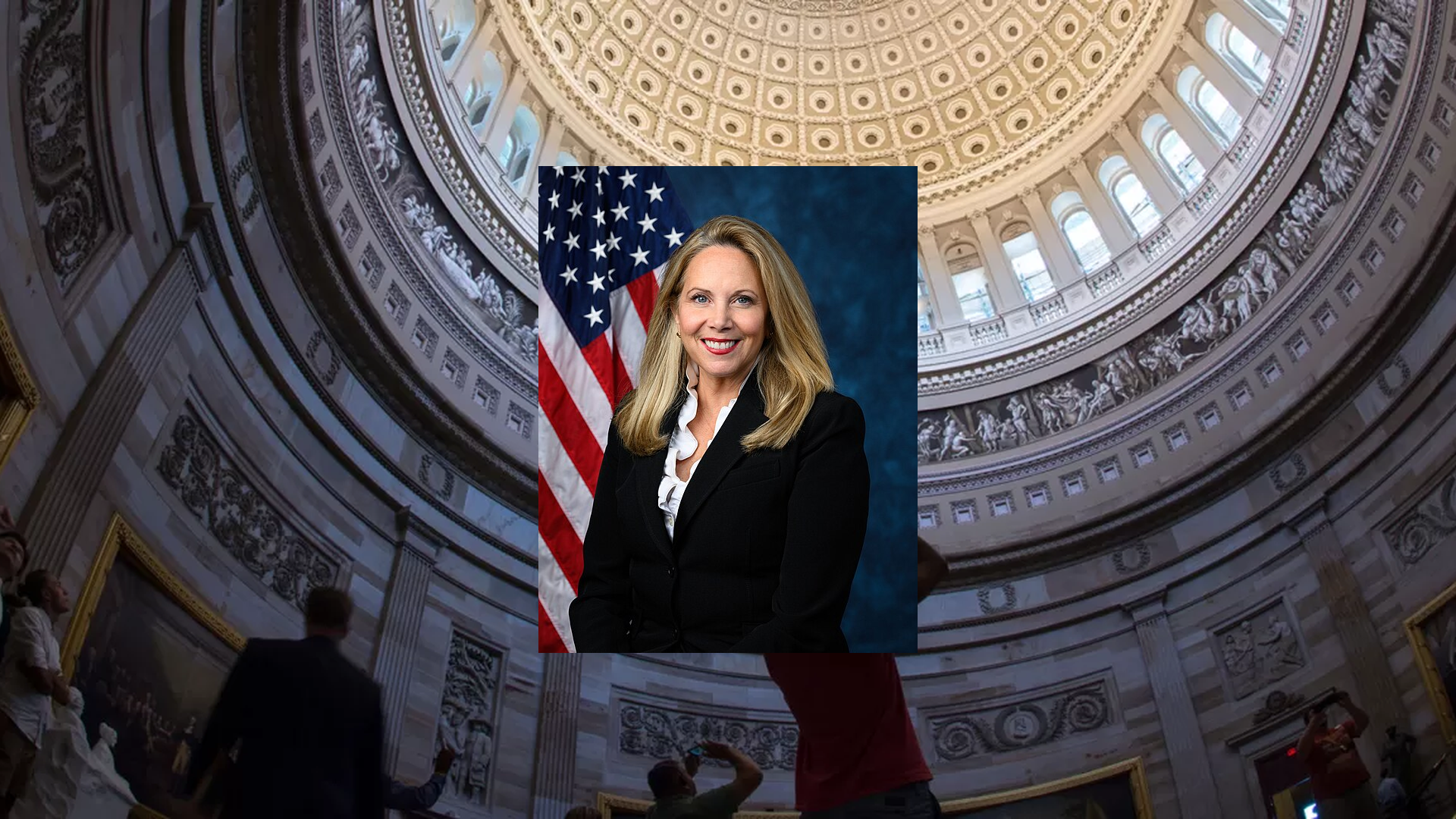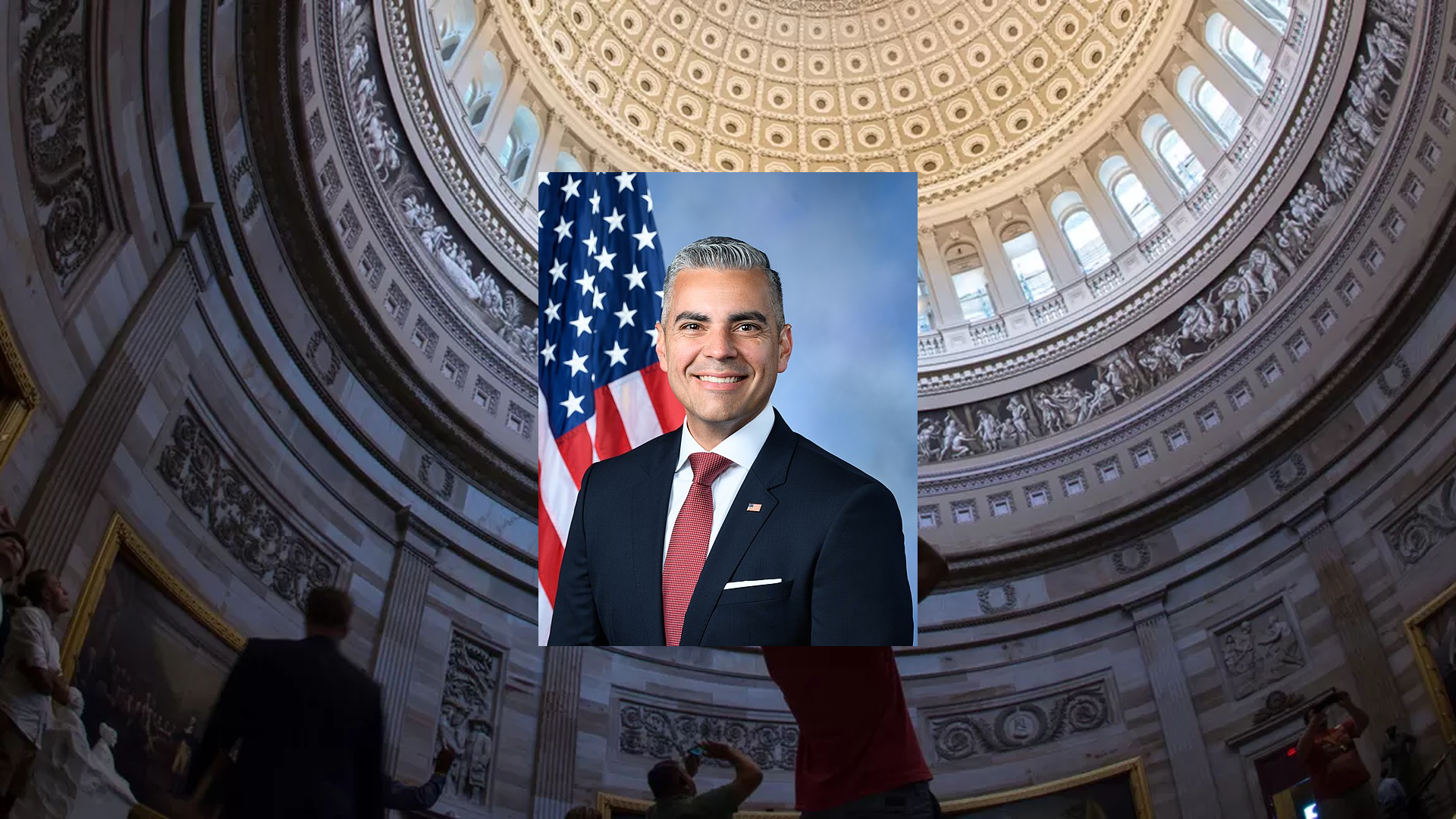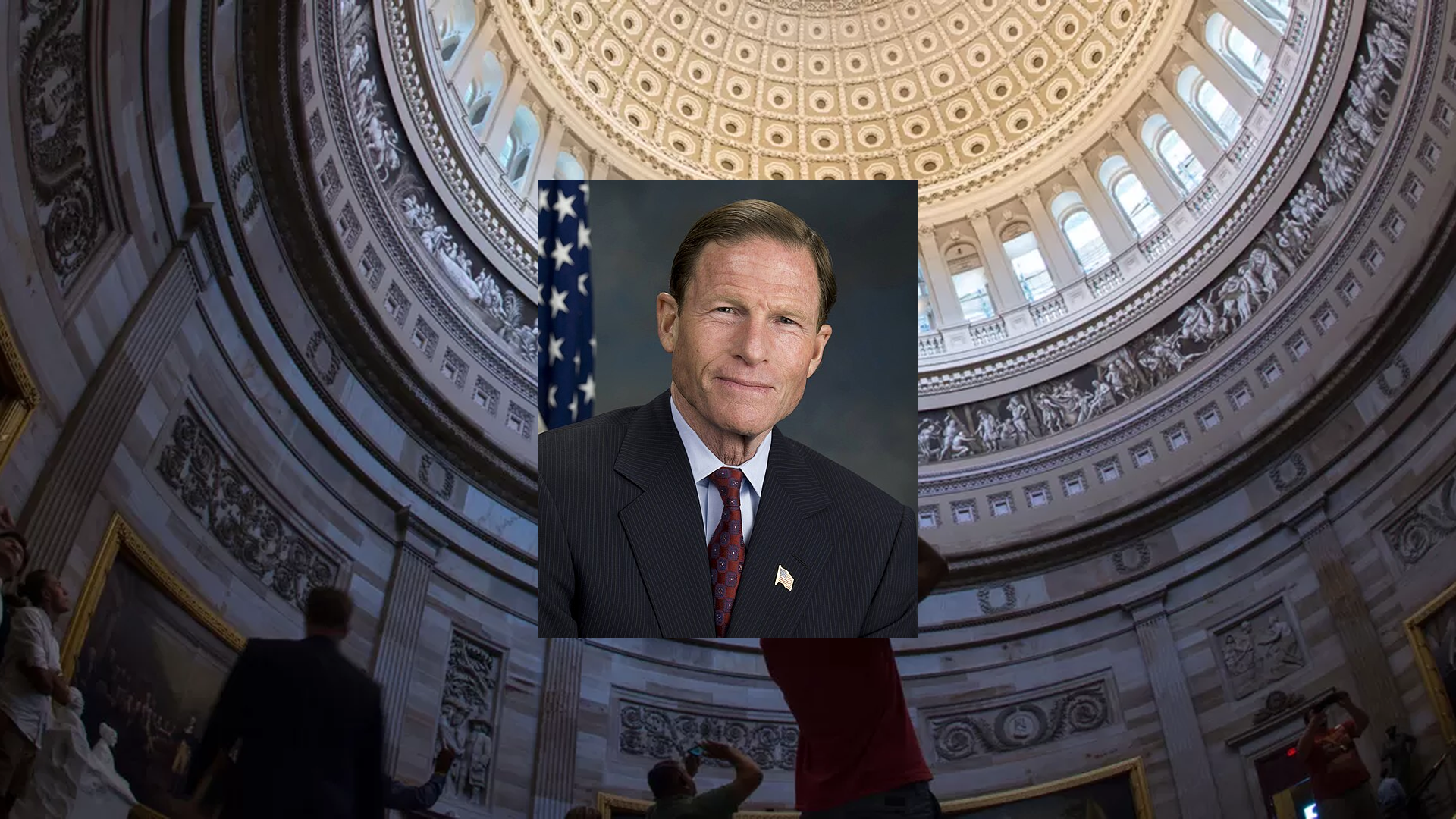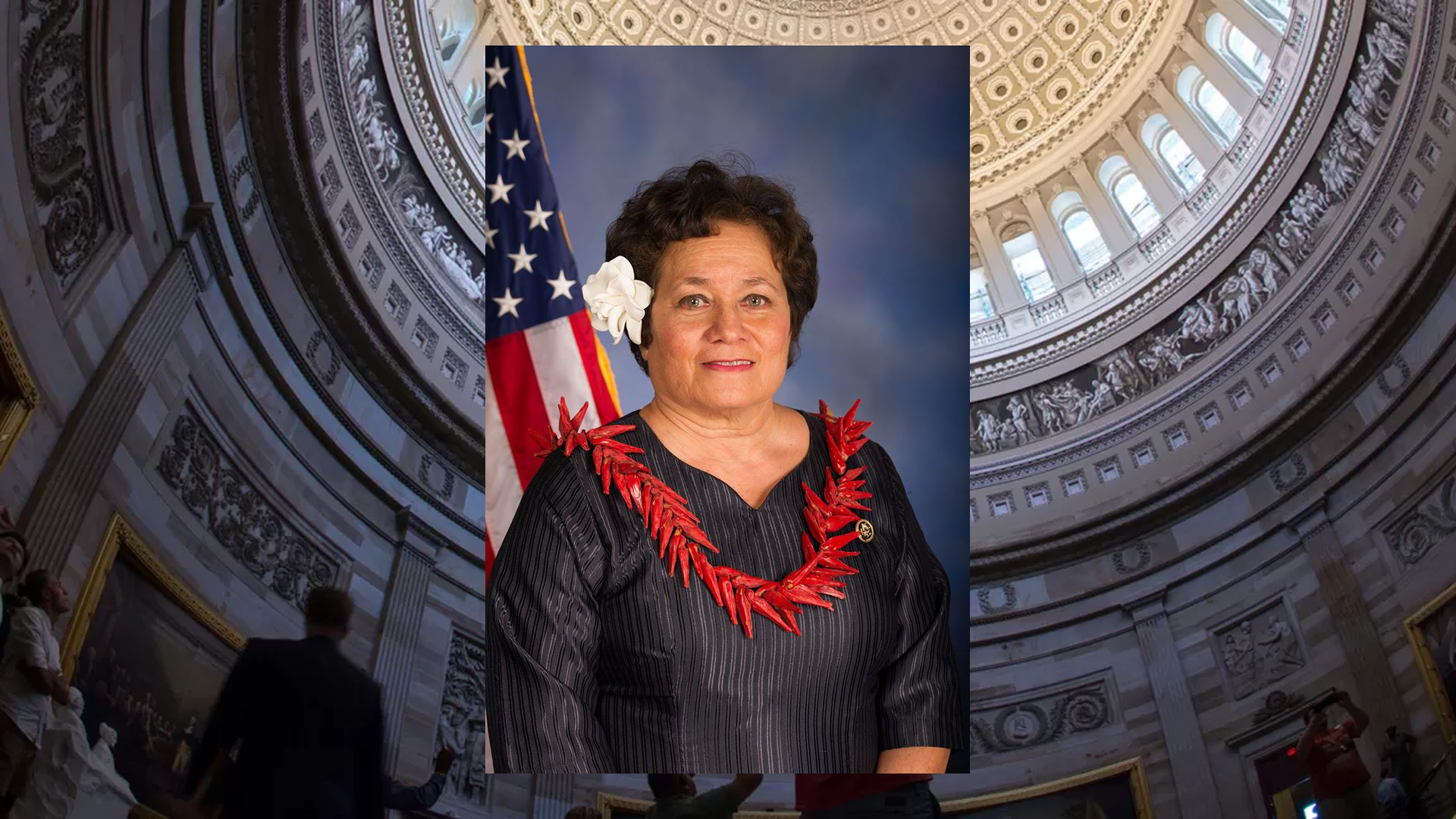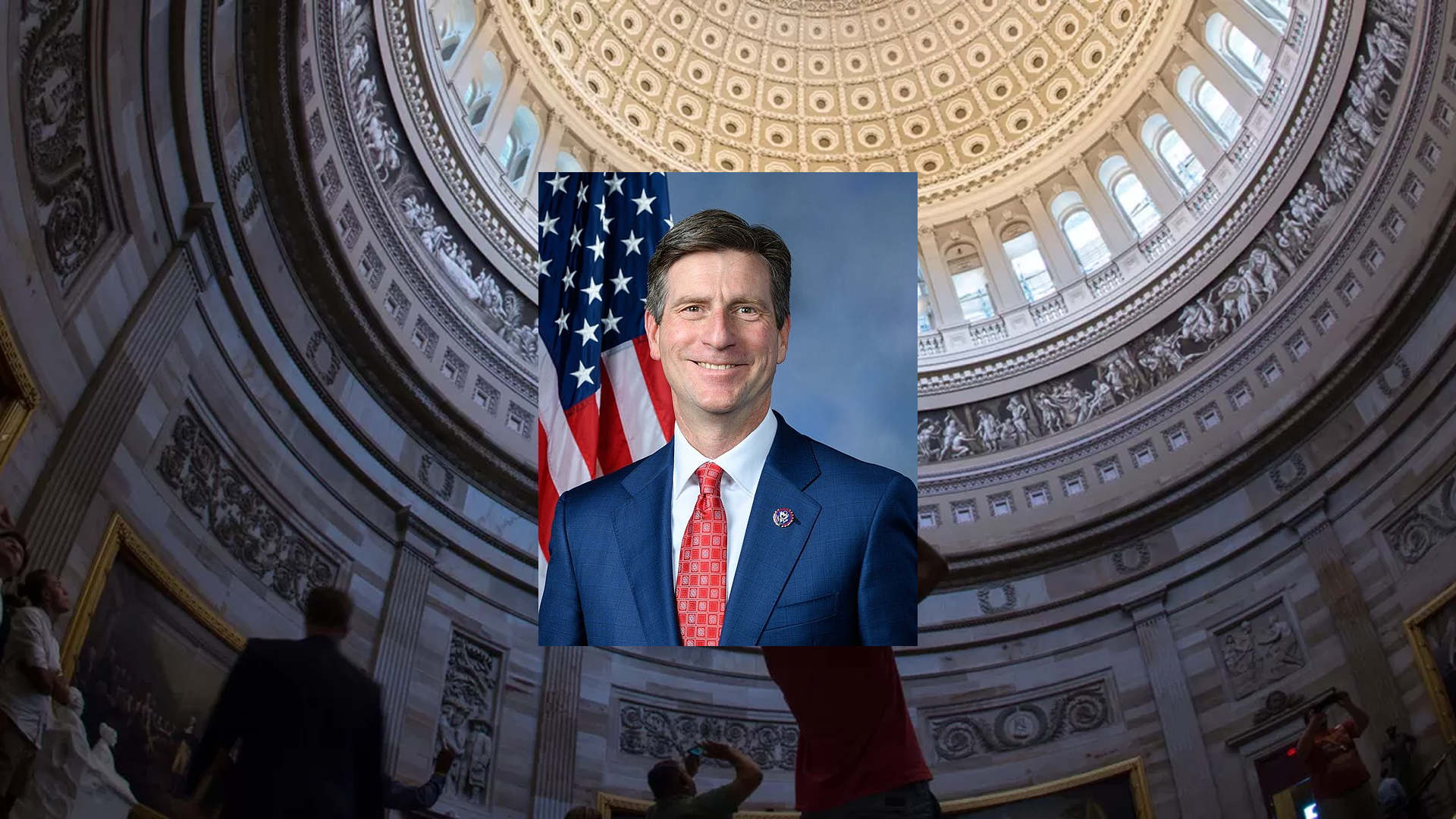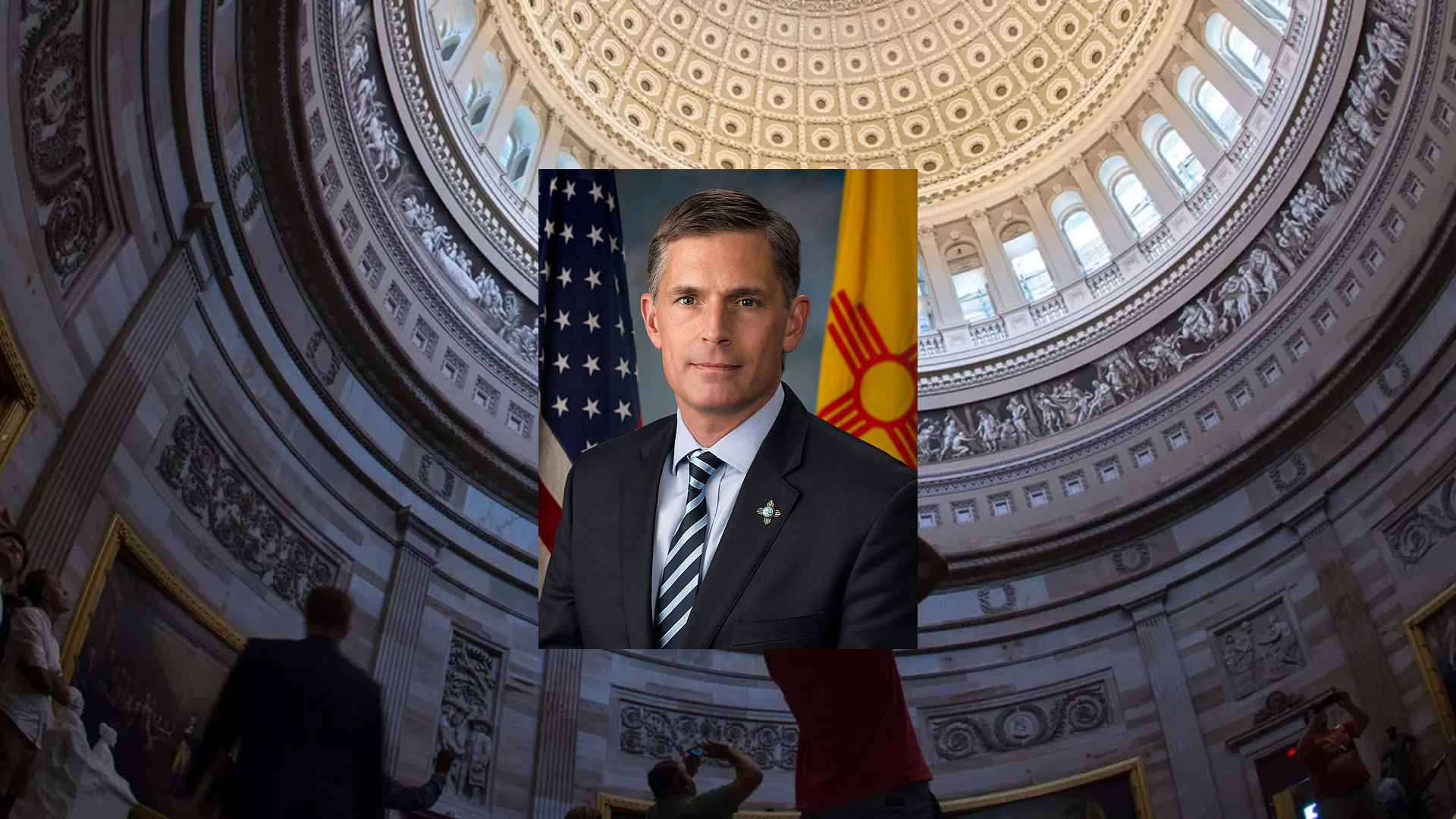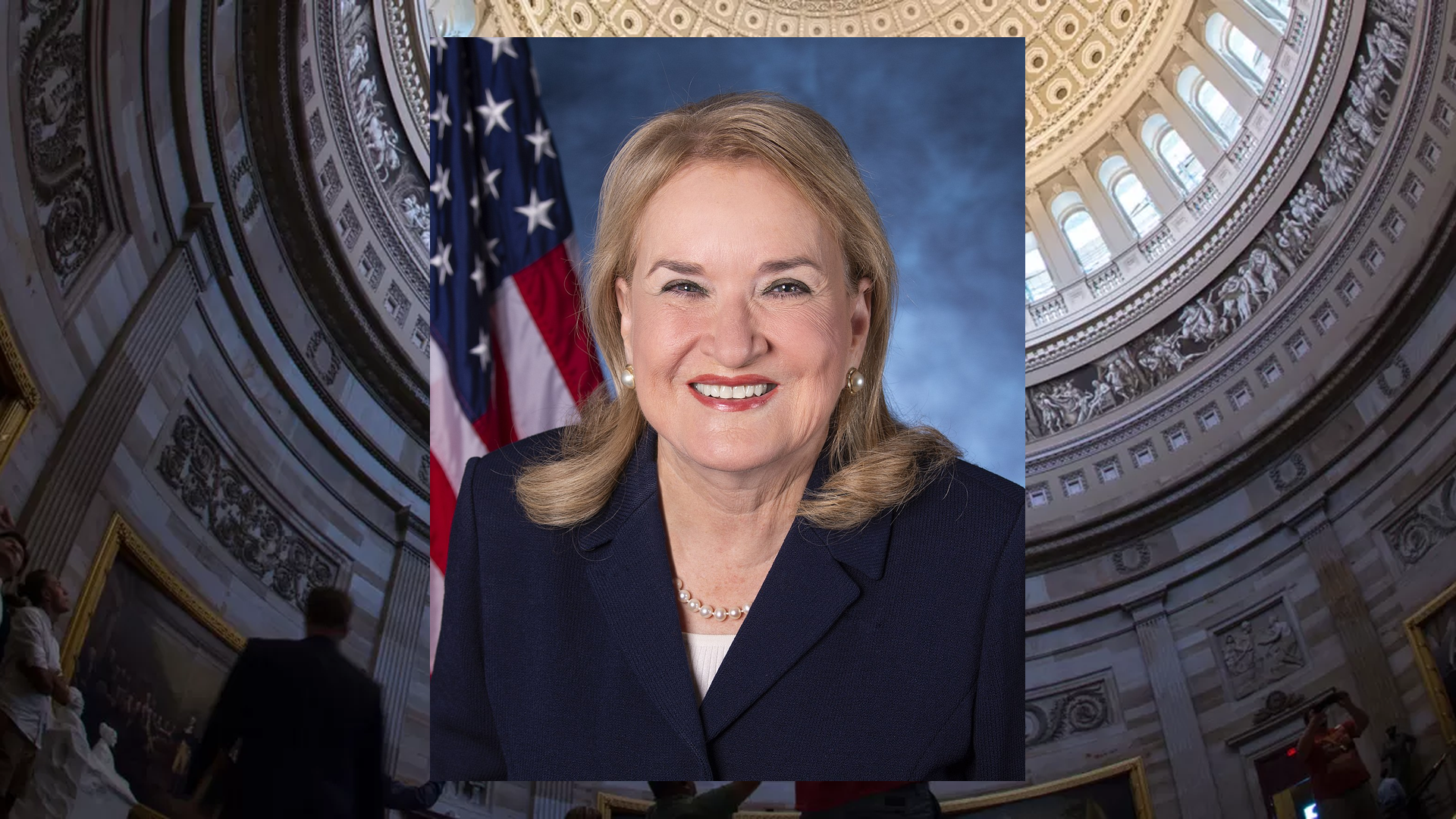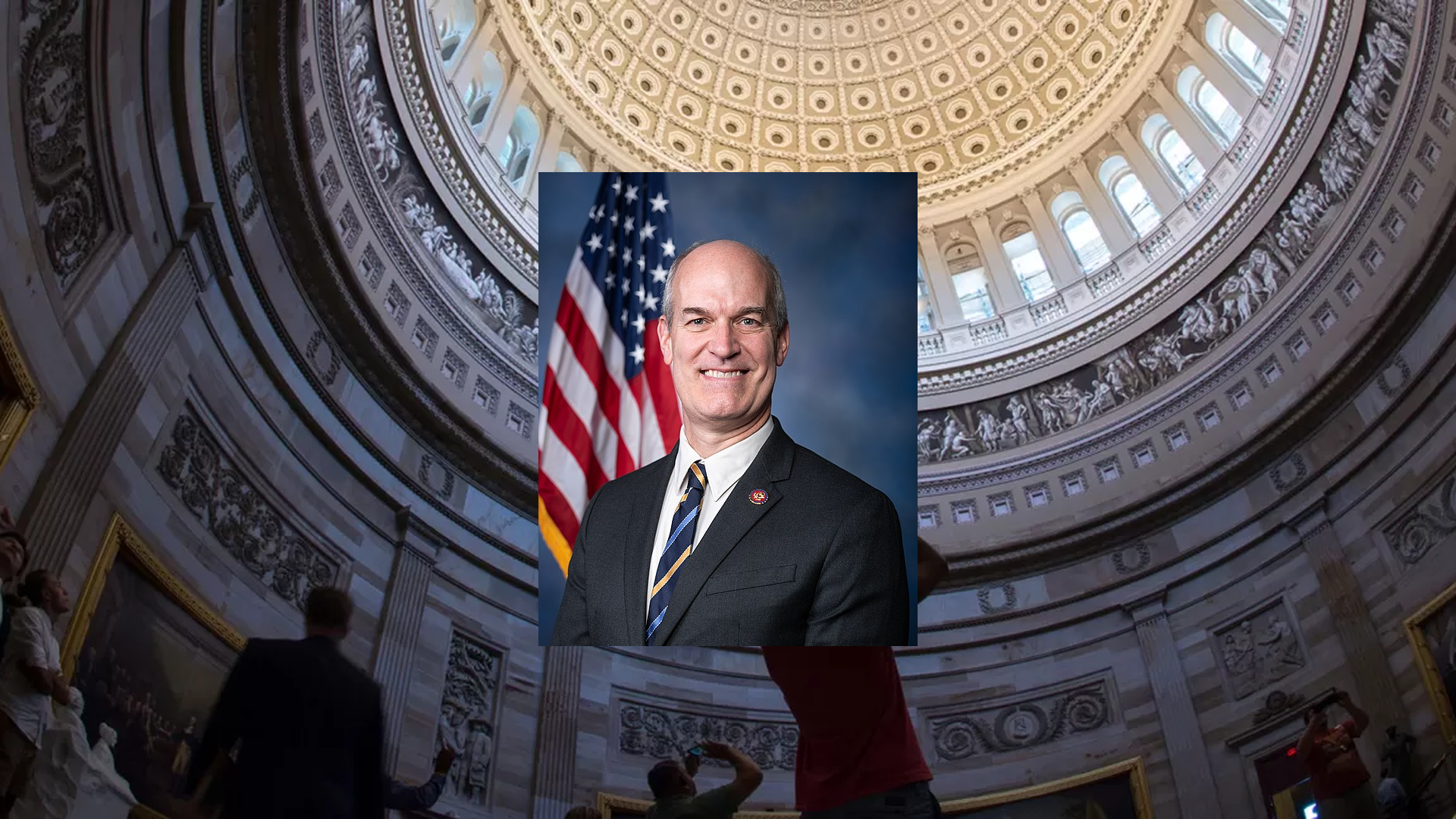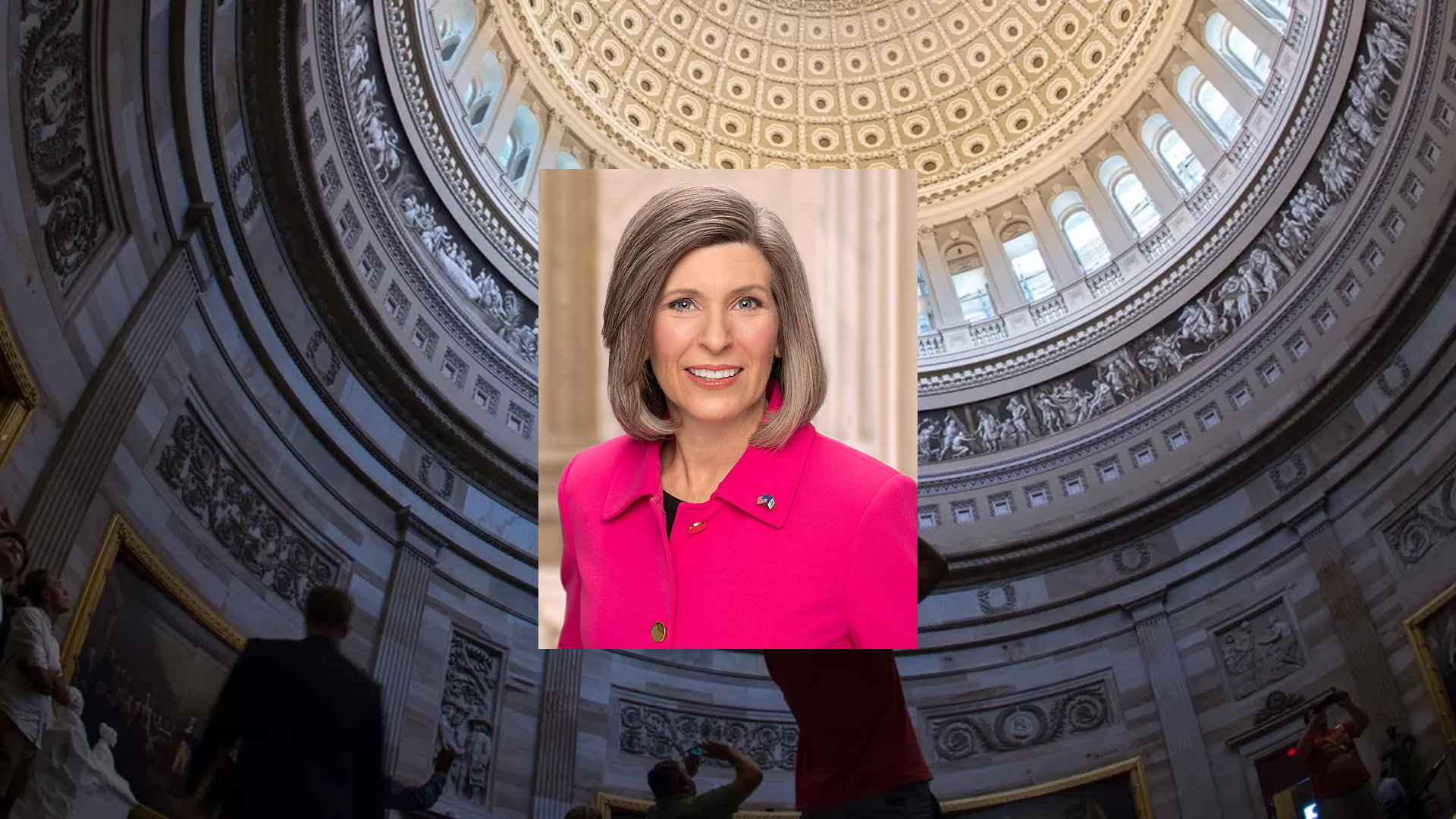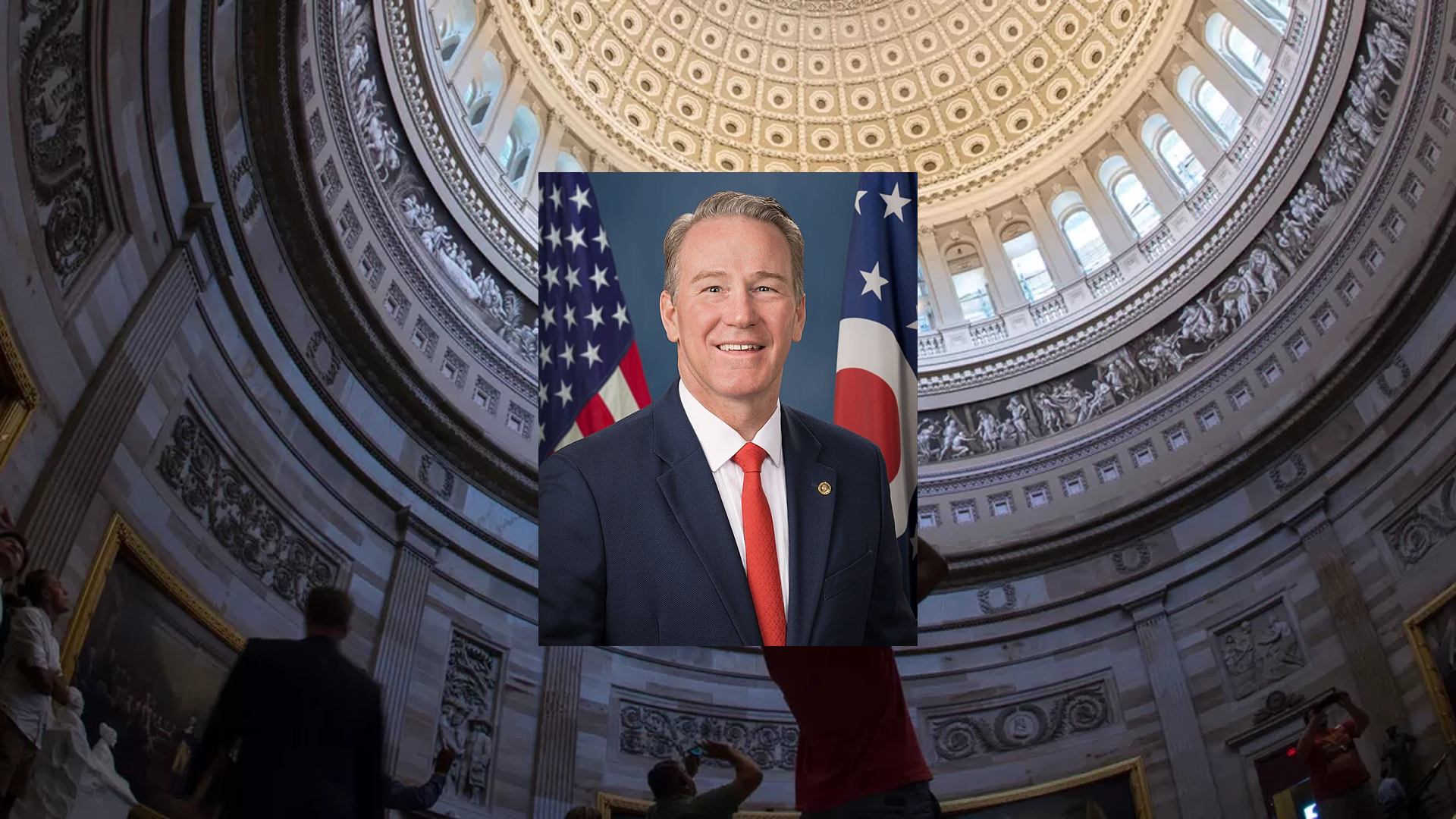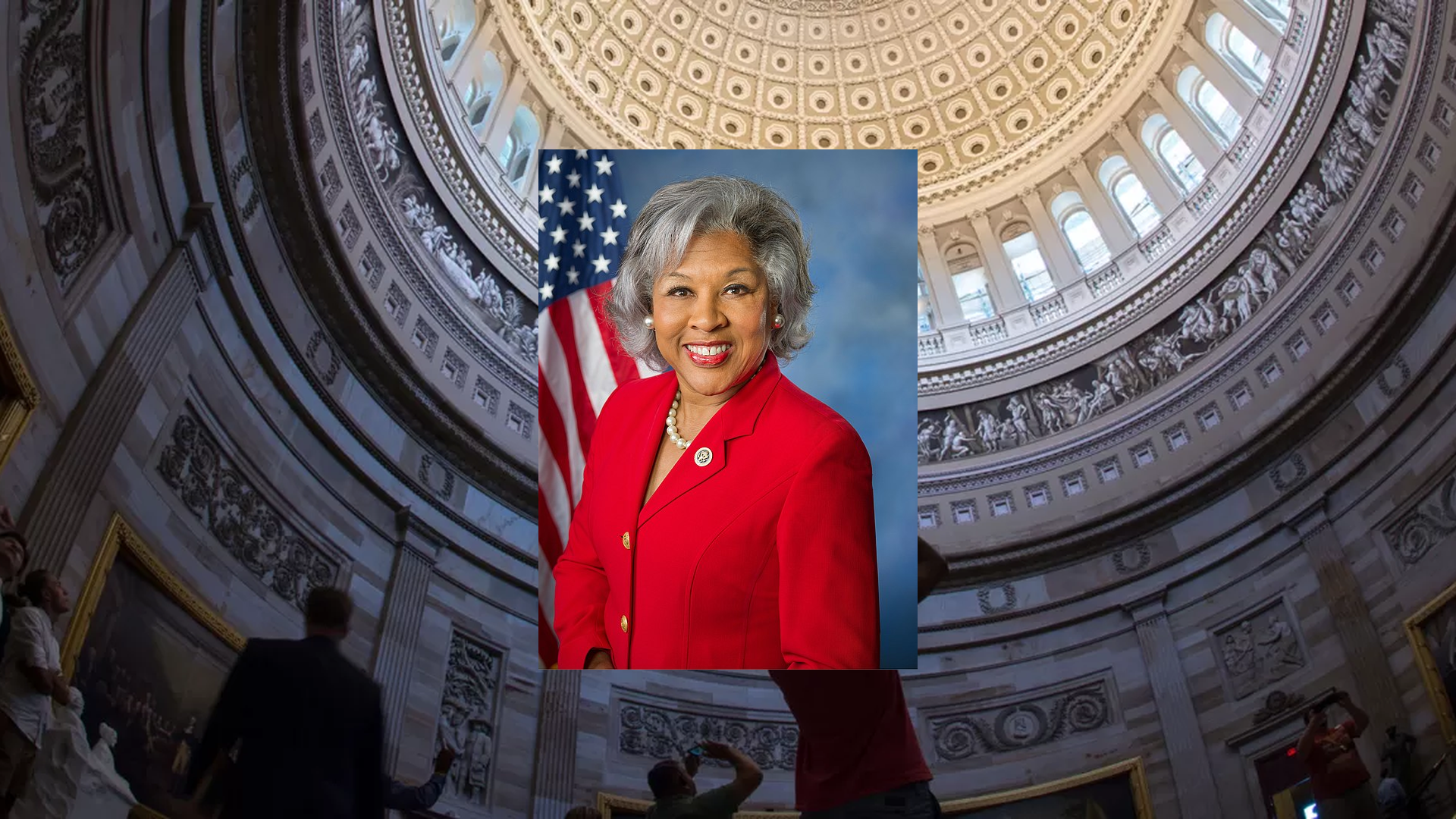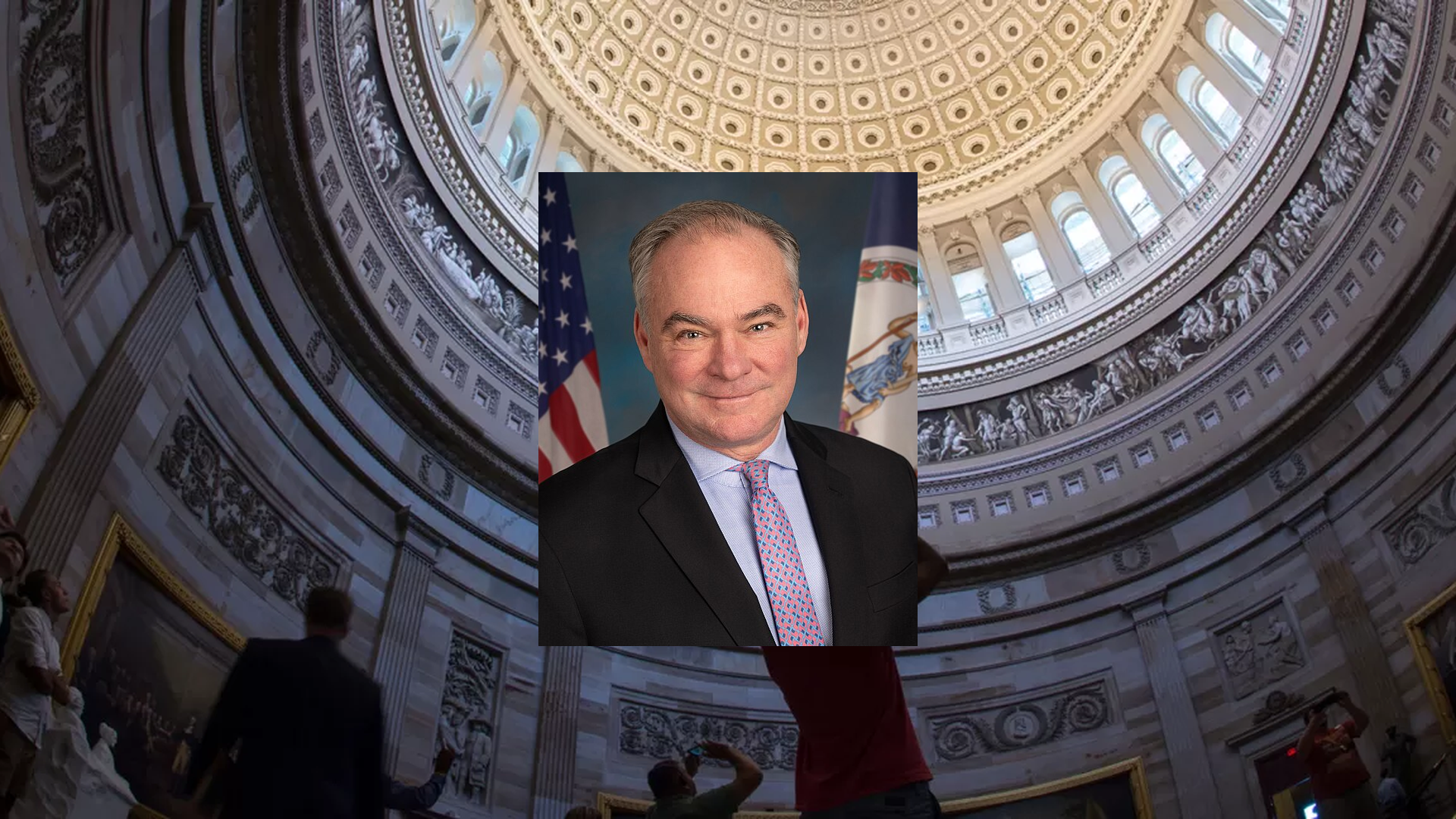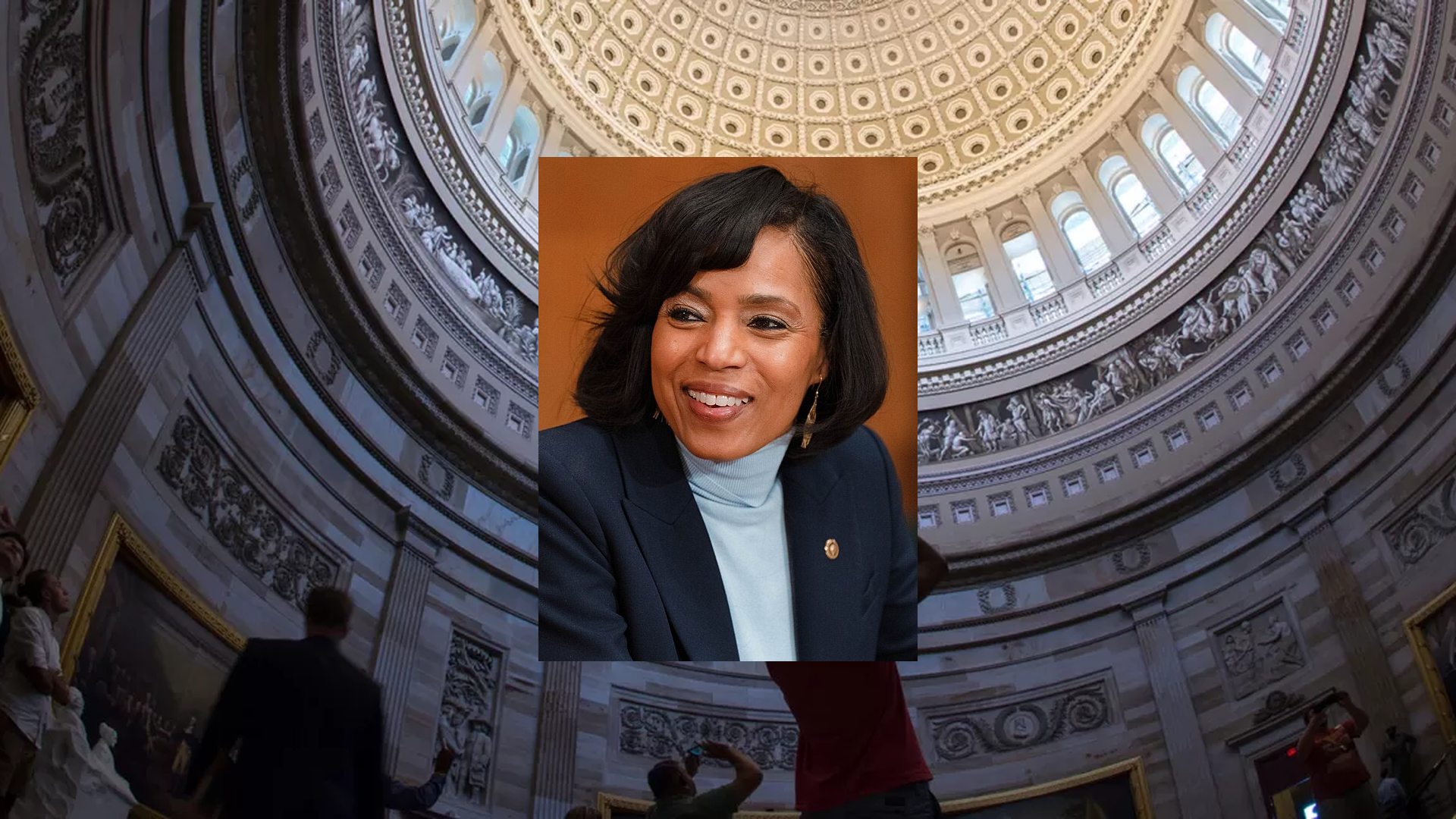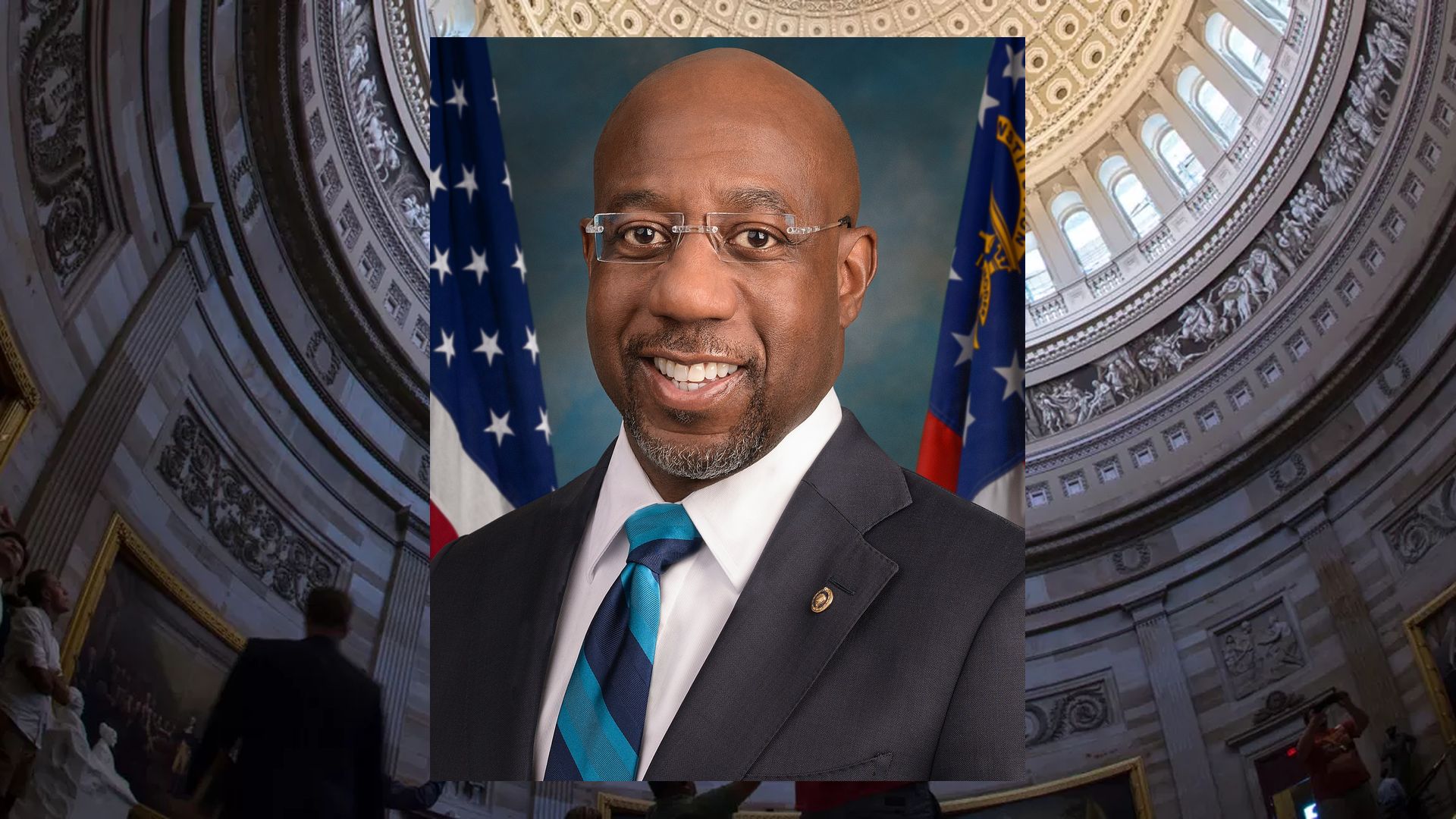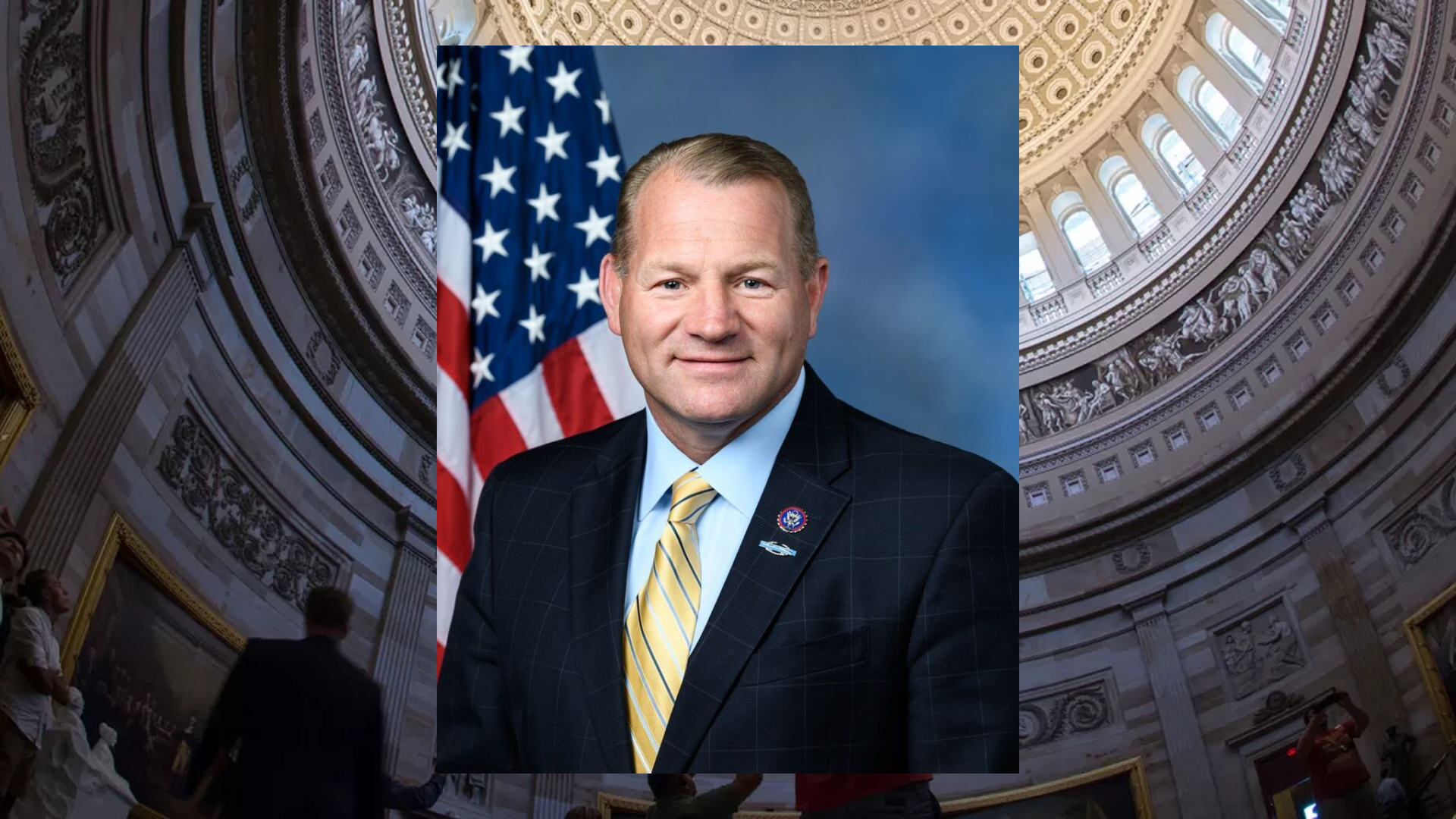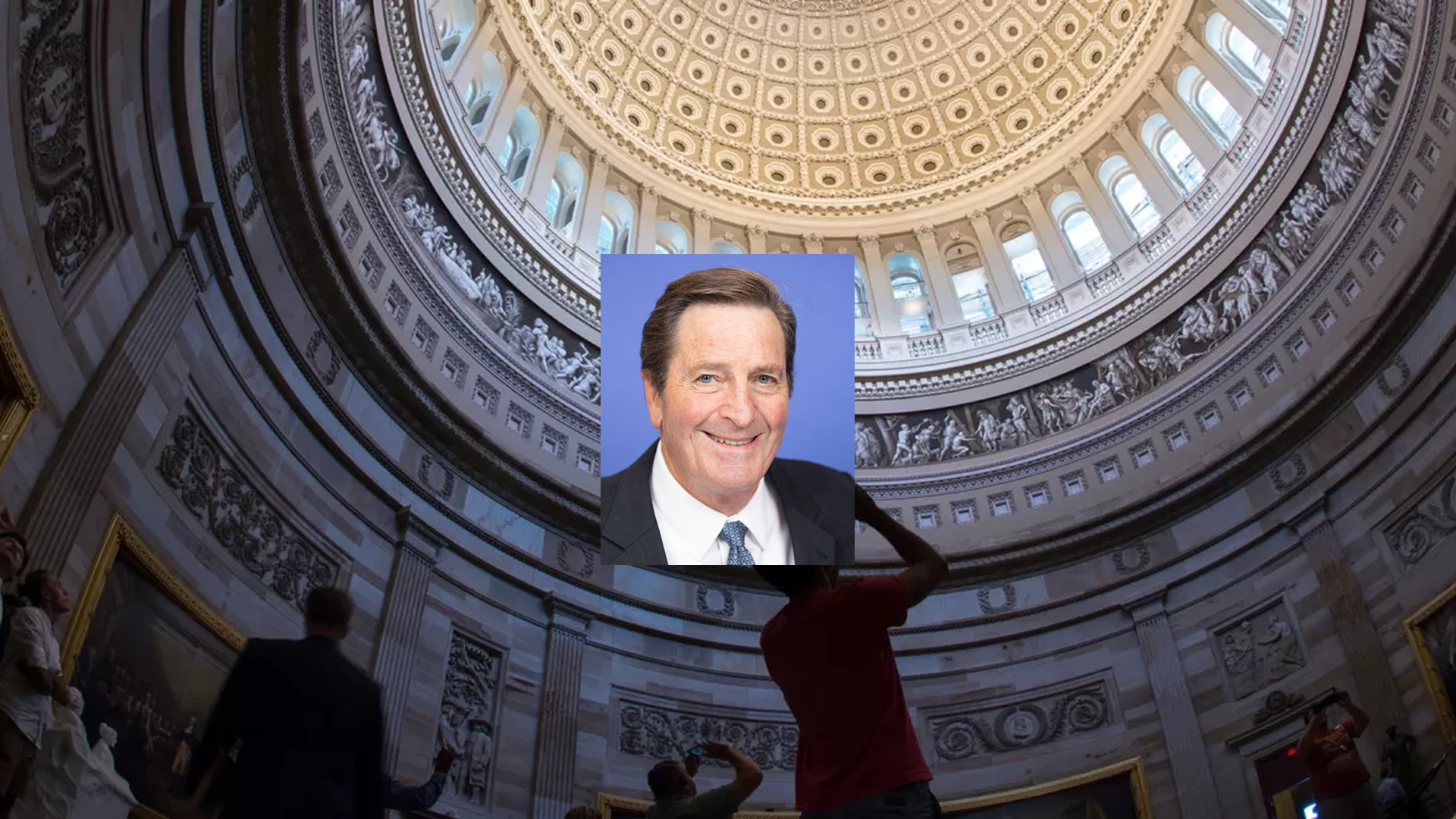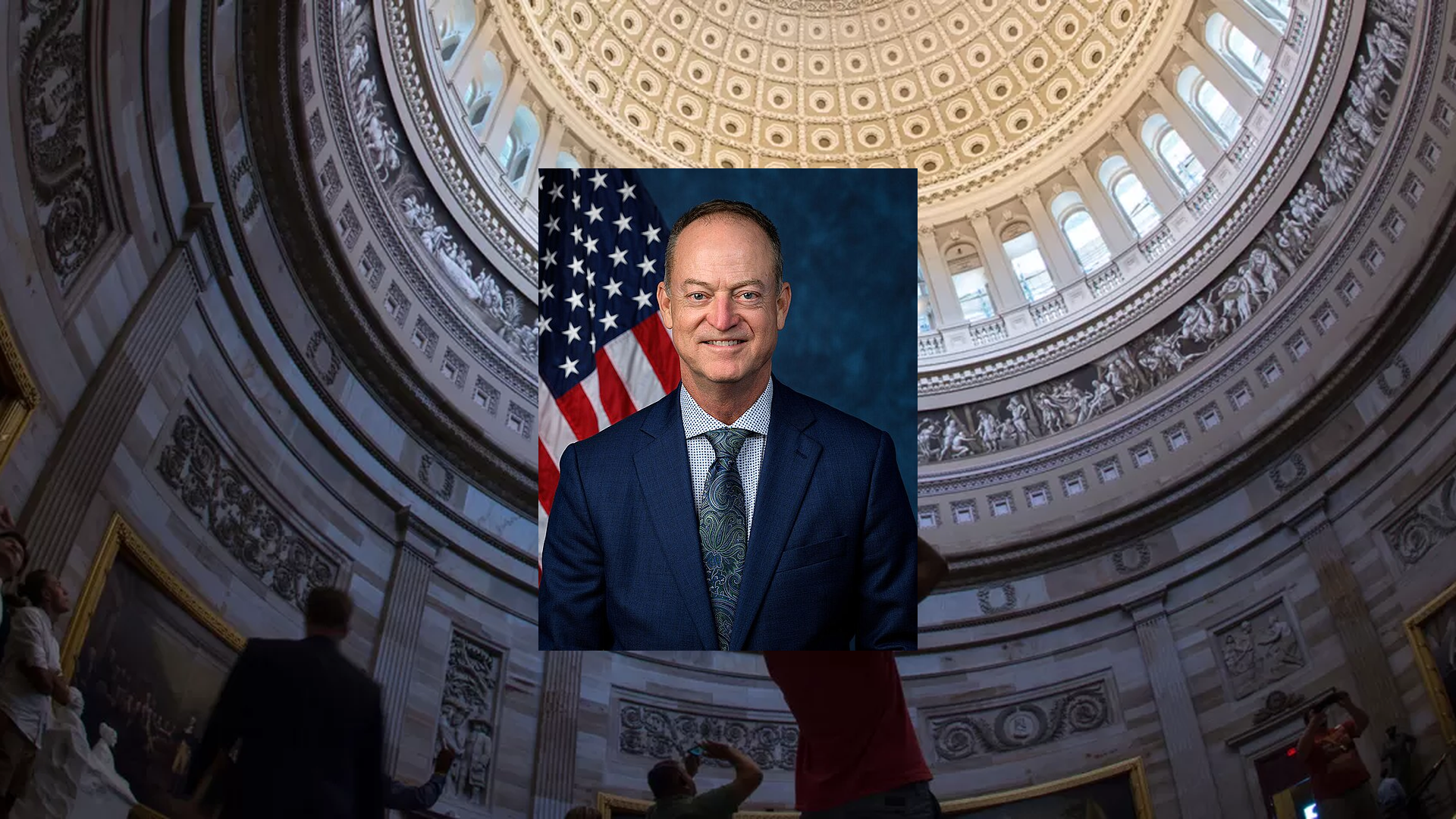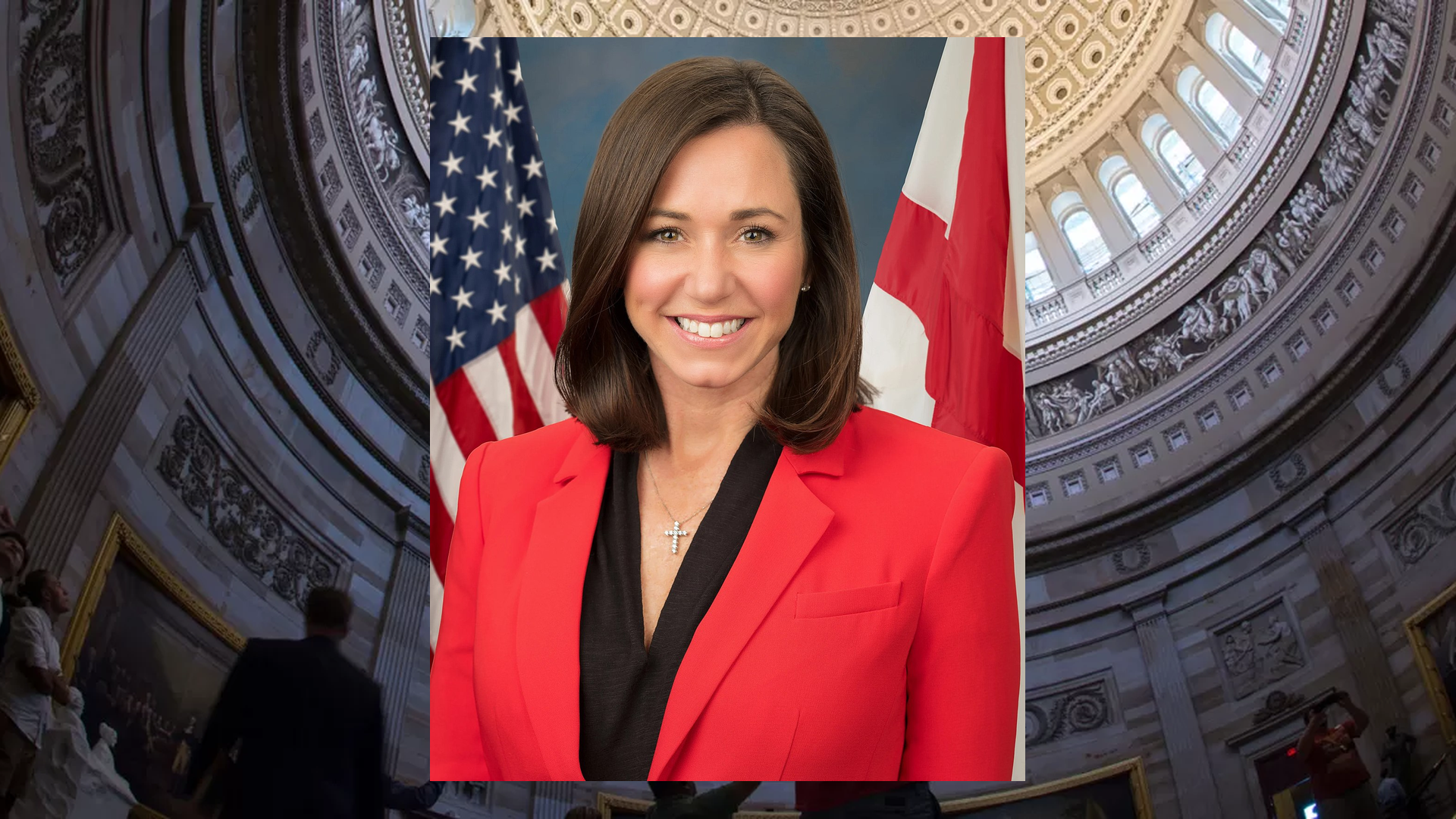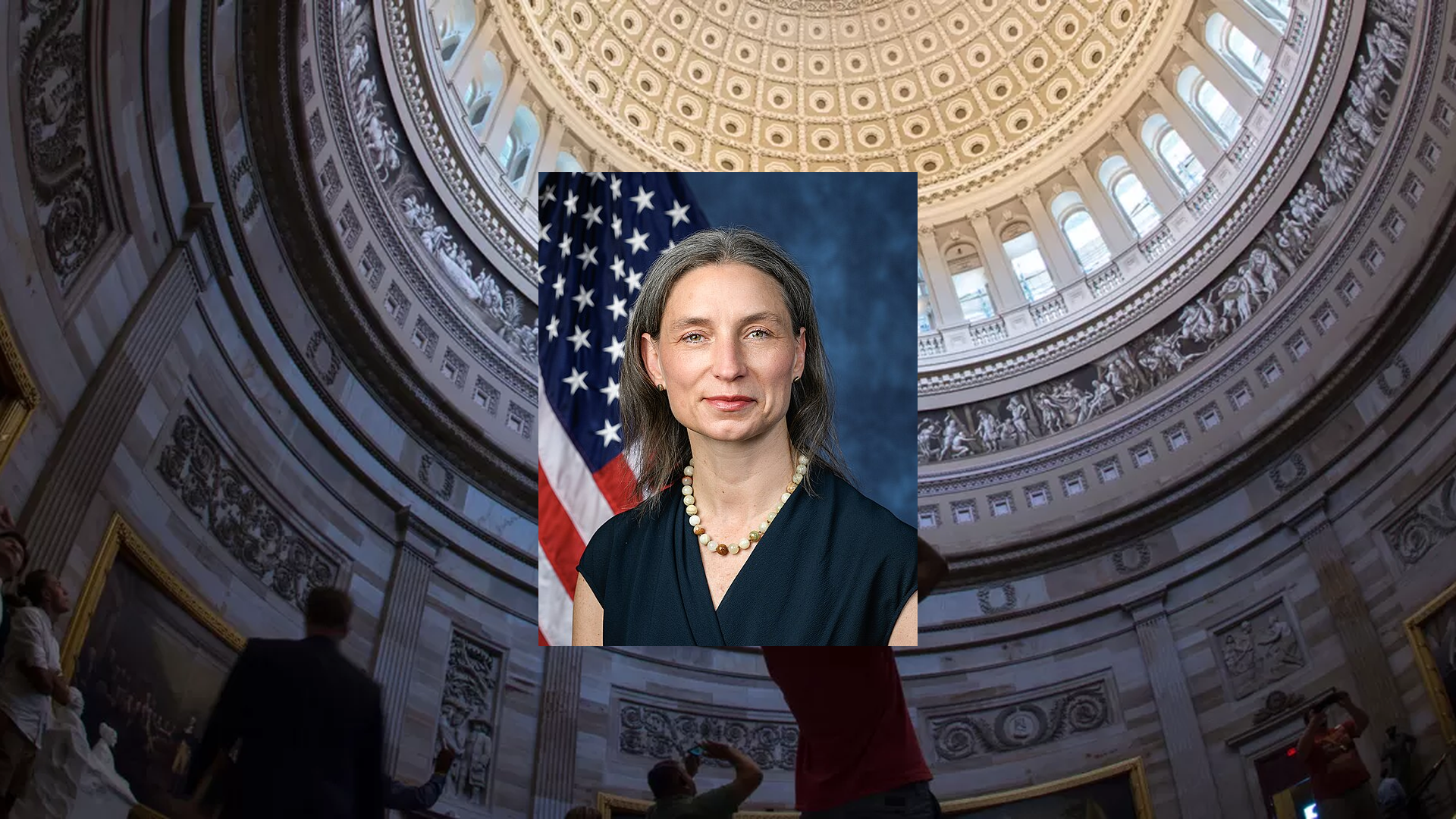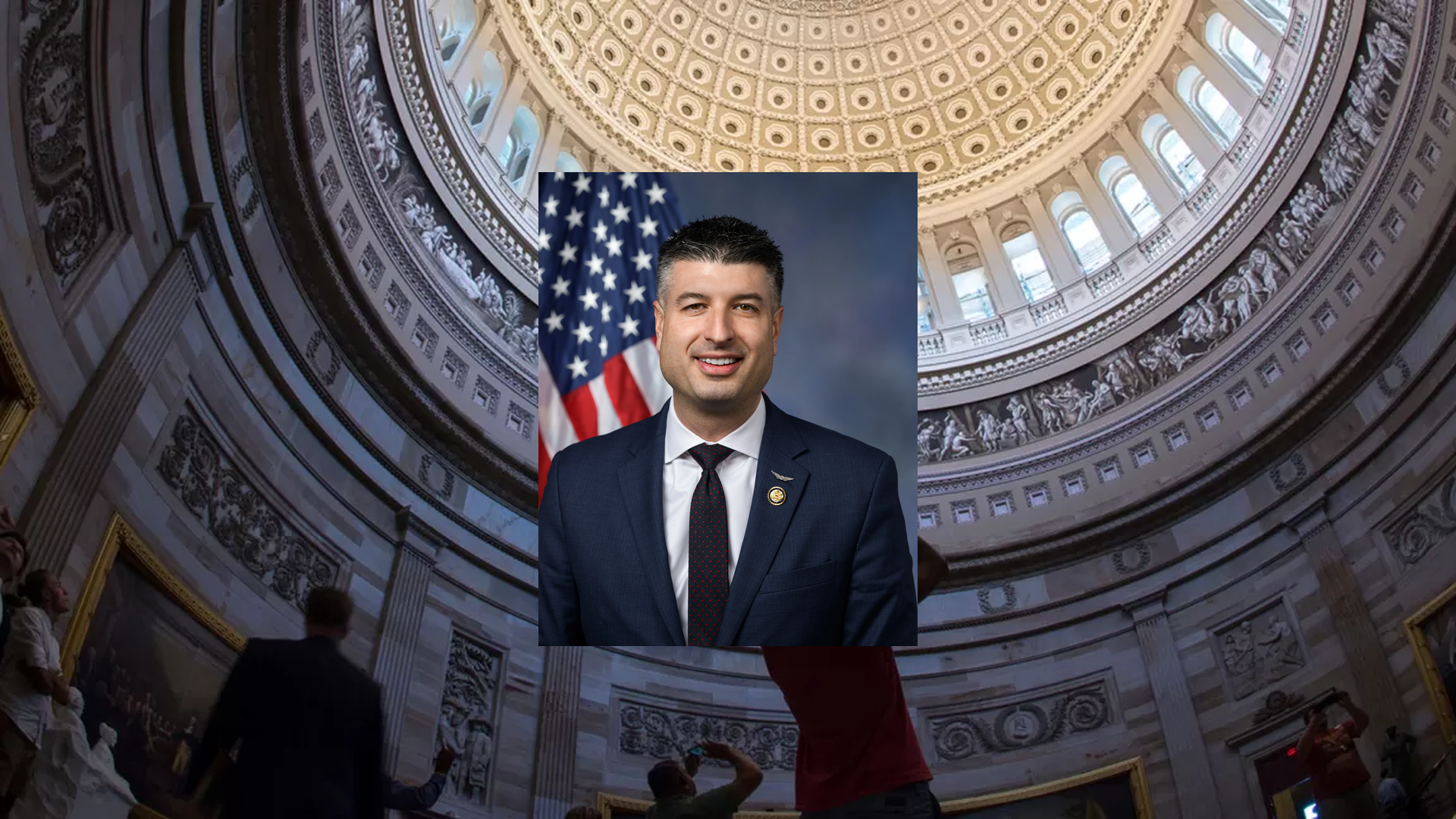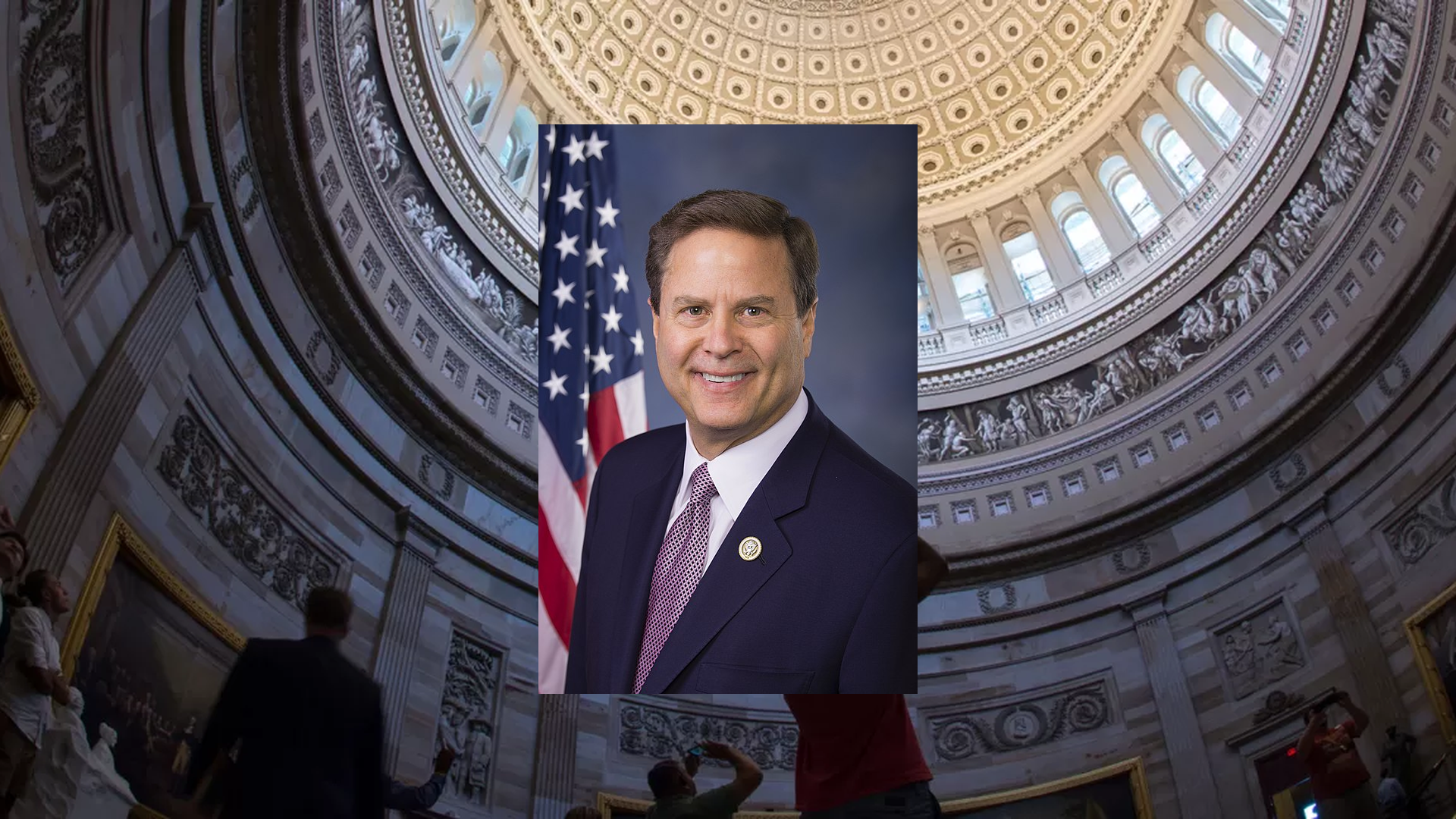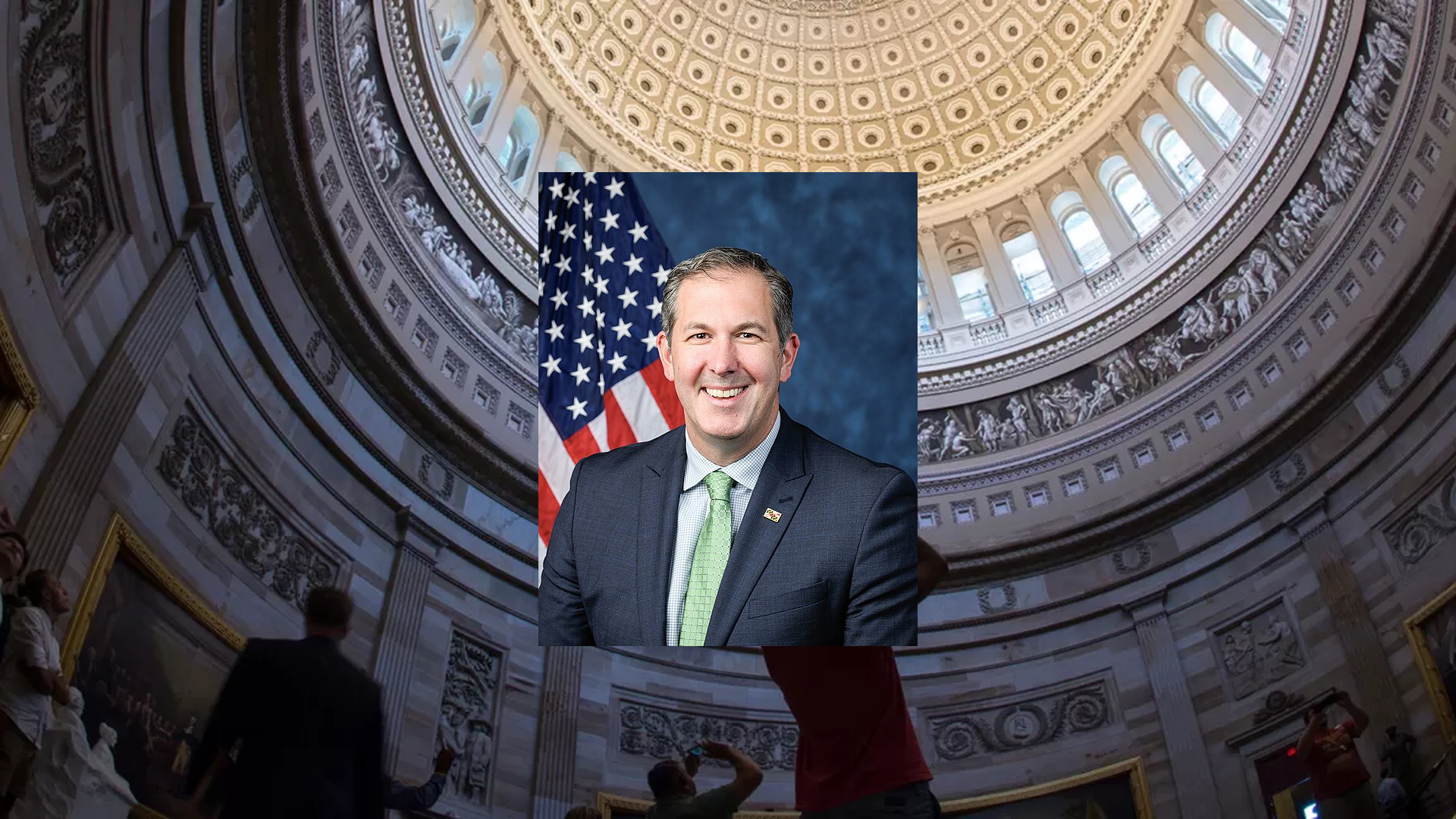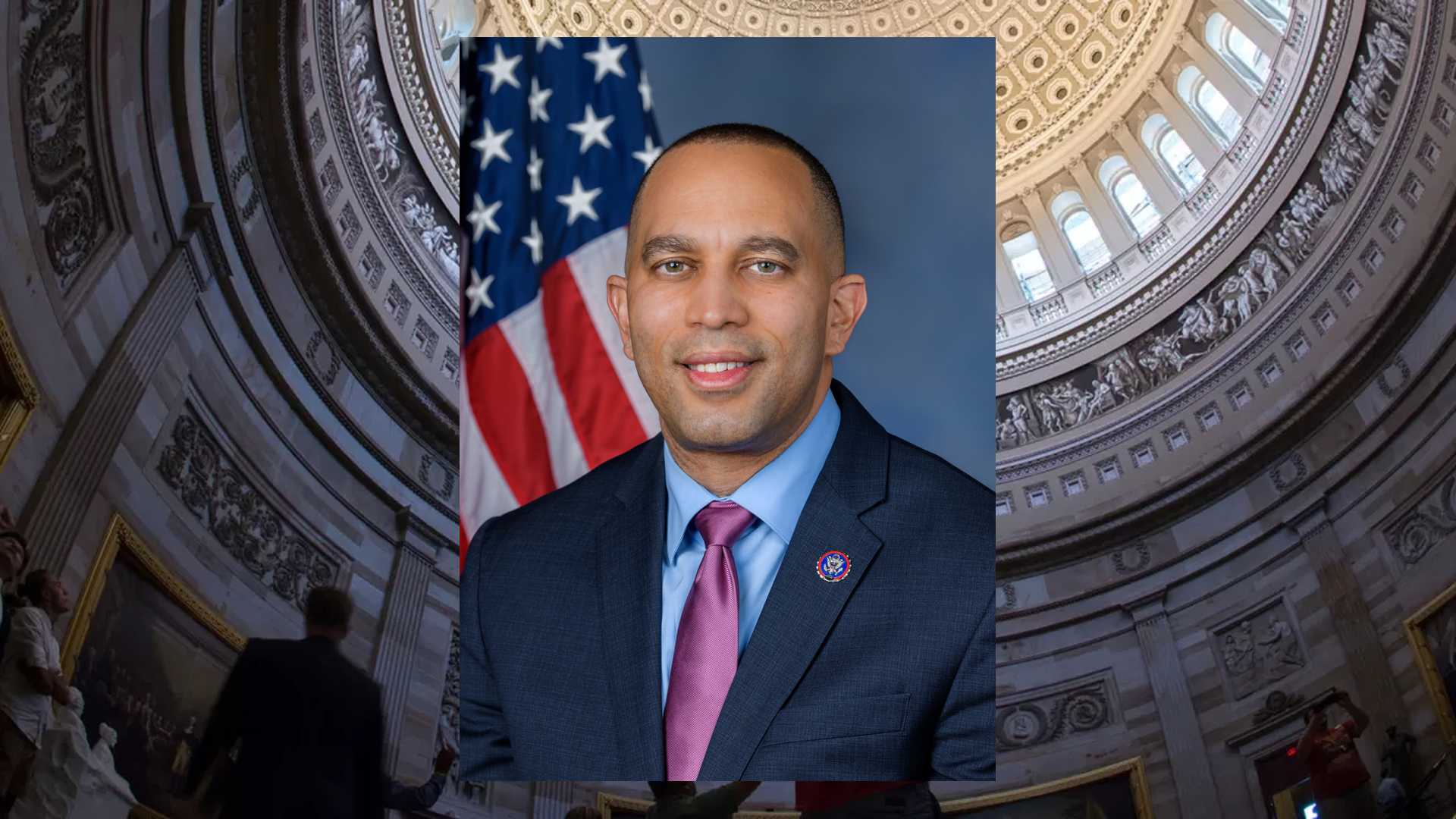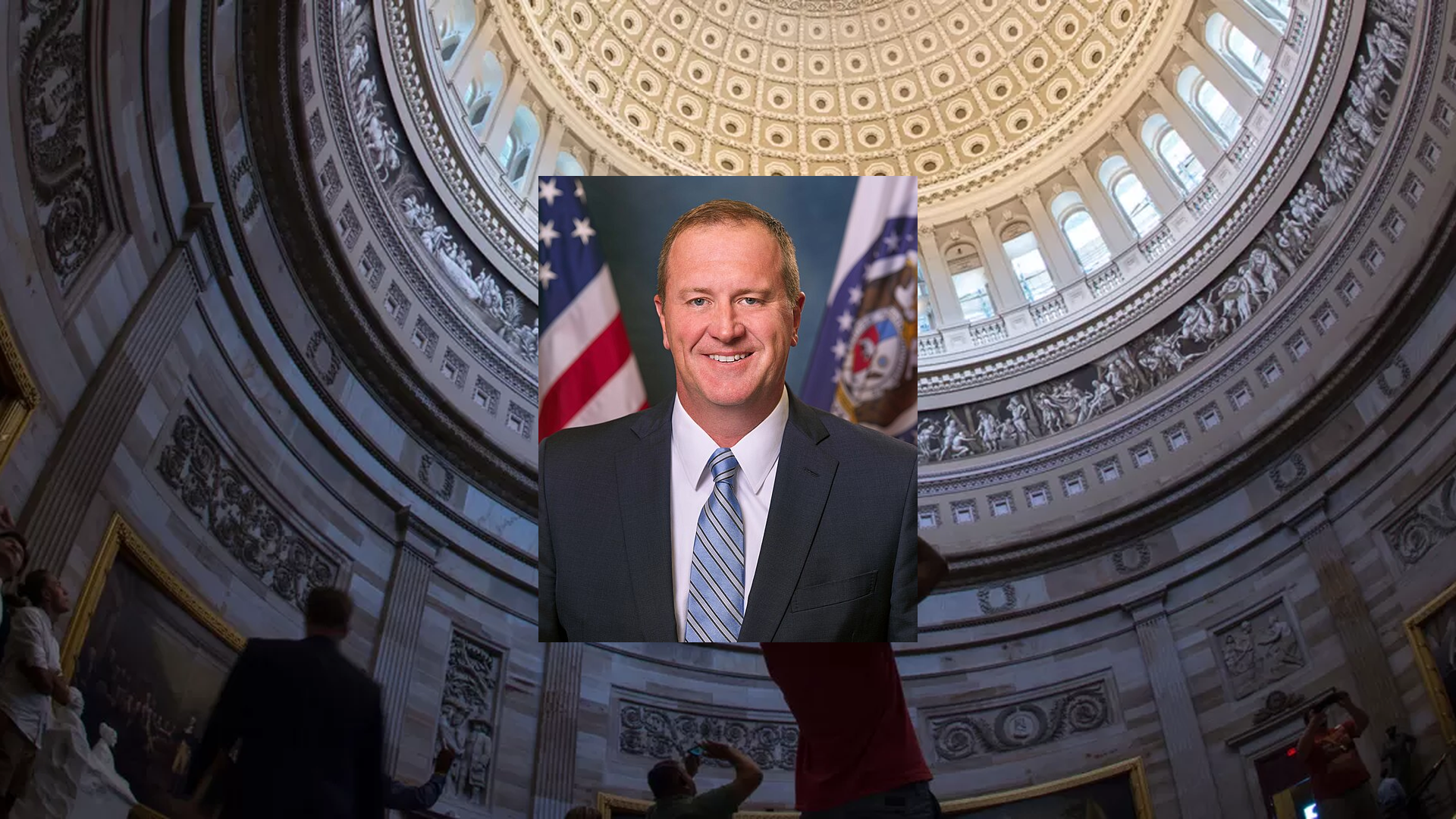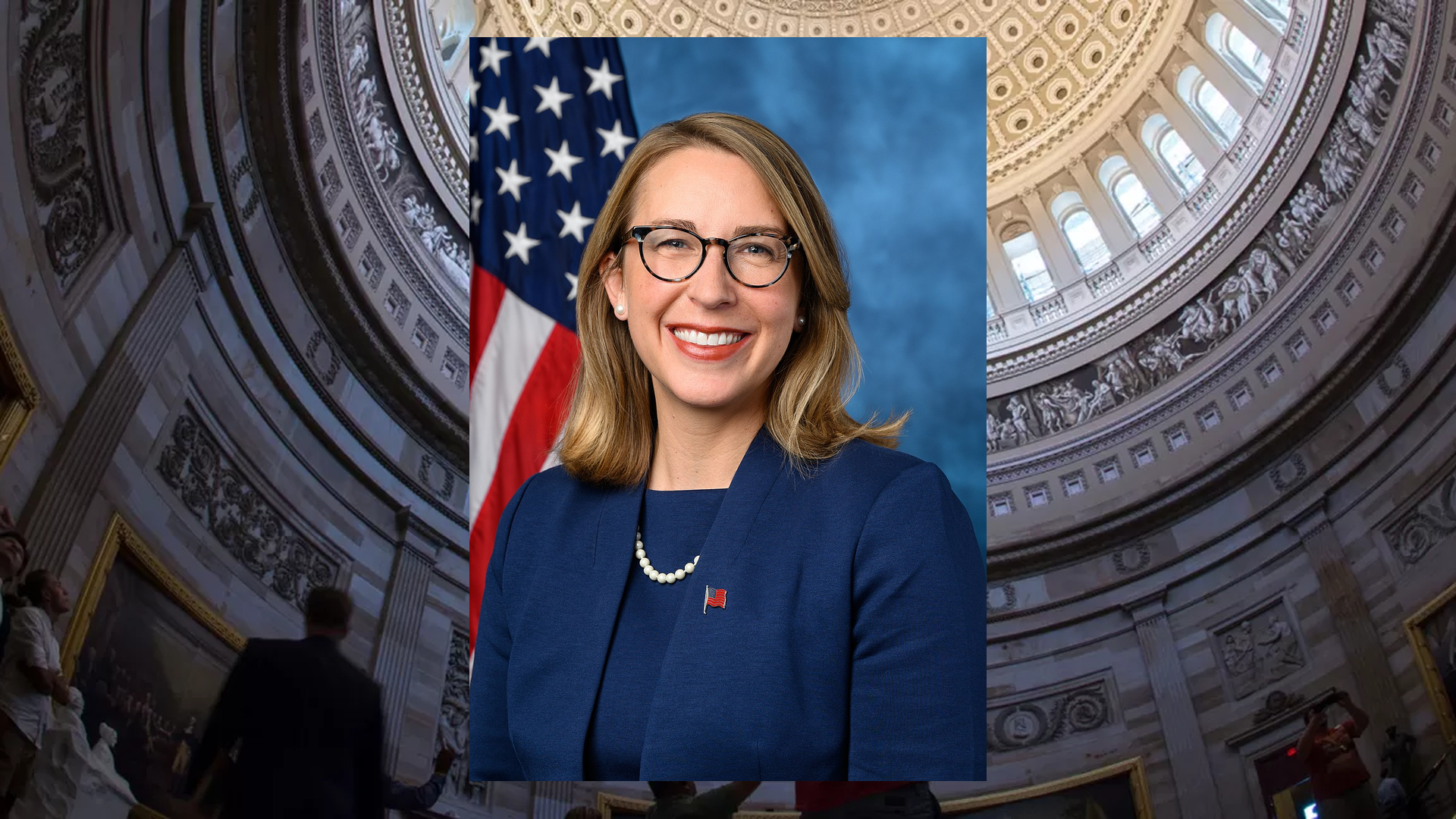Quiver News
The latest insights and financial news from Quiver Quantitative
Congresswoman April McClain Delaney addresses the upcoming lapse in DHS funding, calling for reforms and negotiations.
Quiver AI Summary
Congresswoman McClain Delaney expresses concerns over DHS funding: Congresswoman April McClain Delaney (D-MD) stated that appropriated funding for the U.S. Department of Homeland Security (DHS) is set to lapse tonight. She emphasized that this funding should not be renewed without serious negotiations from the White House and Republicans regarding reforms in immigration enforcement.
Details on funding and agency oversight: McClain Delaney pointed out that Democrats are willing to fund essential services provided by DHS but criticized Republicans for refusing to negotiate on necessary reforms. She highlighted issues such as paramilitary tactics used by DHS and the need for greater accountability in the agency's operations.
Conclusion and call for reforms: The Congresswoman concluded that funding should be contingent on restoring public trust and accountability, asserting that Democrats have proposed legislation to maintain essential services while ensuring reforms are implemented. For further updates, she invites the public to follow her on social media.
Disclaimer: This is an AI-generated summary of a press release. The model used to summarize this release may make mistakes. See the full release here.
April McClain Delaney Fundraising

April McClain Delaney recently disclosed $112.9K of fundraising in a Q4 FEC disclosure filed on January 29th, 2026. This was the 717th most from all Q4 reports we have seen this year. 55.7% came from individual donors.
McClain Delaney disclosed $194.7K of spending. This was the 380th most from all Q4 reports we have seen from politicians so far this year.
McClain Delaney disclosed $823.1K of cash on hand at the end of the filing period. This was the 440th most from all Q4 reports we have seen this year.
You can see the disclosure here, or track April McClain Delaney's fundraising on Quiver Quantitative.
April McClain Delaney Net Worth
Quiver Quantitative estimates that April McClain Delaney is worth $152.8M, as of February 13th, 2026. This is the 12th highest net worth in Congress, per our live estimates.
McClain Delaney has approximately $3.1M invested in publicly traded assets which Quiver is able to track live.
You can track April McClain Delaney's net worth on Quiver Quantitative's politician page for McClain Delaney.
April McClain Delaney Bill Proposals
Here are some bills which have recently been proposed by April McClain Delaney:
- H.R.7507: To require the Comptroller General of the United States to conduct a study of the impact of Federal reductions in force on State and local governments, and for other purposes.
- H.R.7470: To prohibit the Department of Homeland Security, including U.S. Immigration and Customs Enforcement, from establishing or operating an immigration detention or holding facility in Washington County, Maryland, and for other purposes.
- H.R.7039: Stop Executive Renaming for Vanity and Ego (SERVE) Act of 2026
- H.R.6926: Federal Property Integrity Act
- H.R.6925: Kennedy Center Protection Act
- H.R.6655: CFTC Charitable Organization Exemption Act of 2025
You can track bills proposed by April McClain Delaney on Quiver Quantitative's politician page for McClain Delaney.
2026 Maryland's 6th Congressional District Election
There has been approximately $17,076,442 of spending in Maryland's 6th congressional district elections over the last two years, per our estimates.
Approximately $2,146,402 of this has been from outside spending by PACs and Super PACs. Some of the groups who are spending money in this race include:
- EQUALITY PAC ($829,790)
- HOUSE FREEDOM ACTION ($315,208)
- DCCC ($250,000)
- COMMON SENSE COMMON GROUND PAC ($213,246)
- UNITY FIRST PAC ($150,000)
The rating for this race is currently "Solid D".
You can track this election on our matchup page for the 2026 Maryland's 6th congressional district election.
Senator Todd Young praises the White House Maritime Action Plan and urges Congress to approve the SHIPS for America Act.
Quiver AI Summary
Senator Young praises Maritime Action Plan: U.S. Senator Todd Young (R-Ind.) applauded the White House's recently released Maritime Action Plan under President Trump's executive order to strengthen maritime dominance. Young stated, "This plan is a much-needed, holistic approach to restore American commercial shipping dominance."
Legislative call to action: Young urged Congress to expedite the passage of the SHIPS for America Act, which he introduced to revitalize U.S. shipbuilding and commercial maritime industries. He emphasized the importance of turning the plan into reality for the nation's maritime future.
Disclaimer: This is an AI-generated summary of a press release. The model used to summarize this release may make mistakes. See the full release here.
Todd Young Fundraising

Todd Young recently disclosed $258.6K of fundraising in a Q4 FEC disclosure filed on January 28th, 2026. This was the 385th most from all Q4 reports we have seen this year. 63.0% came from individual donors.
Young disclosed $318.4K of spending. This was the 216th most from all Q4 reports we have seen from politicians so far this year.
Young disclosed $6.6M of cash on hand at the end of the filing period. This was the 34th most from all Q4 reports we have seen this year.
You can see the disclosure here, or track Todd Young's fundraising on Quiver Quantitative.
Todd Young Net Worth
Quiver Quantitative estimates that Todd Young is worth $91.0K, as of February 13th, 2026. This is the 460th highest net worth in Congress, per our live estimates.
Young has approximately $0 invested in publicly traded assets which Quiver is able to track live.
You can track Todd Young's net worth on Quiver Quantitative's politician page for Young.
Todd Young Bill Proposals
Here are some bills which have recently been proposed by Todd Young:
- S.3845: A bill to establish and expand child care programs for parents who work nontraditional hours, and for other purposes.
- S.3597: National Quantum Initiative Reauthorization Act of 2026
- S.3586: AI for Mainstreet Act
- S.3501: Calumet National Heritage Area Act
- S.3399: Digital Trade Promotion Act of 2025
- S.3333: Emergency Savings Enhancement Act of 2025
You can track bills proposed by Todd Young on Quiver Quantitative's politician page for Young.
2028 Indiana US Senate Election
There has been approximately $17,514,338 of spending in Indiana US Senate elections over the last two years, per our estimates.
Approximately $7,102,556 of this has been from outside spending by PACs and Super PACs. Some of the groups who are spending money in this race include:
- DEFEND AMERICAN JOBS ($6,018,934)
- AMERICAN LEADERSHIP PAC ($824,920)
- HOOSIER HONOR ($223,620)
- PROTECT FREEDOM POLITICAL ACTION COMMITTEE ($29,282)
- CLUB FOR GROWTH PAC ($3,652)
You can track this election on our matchup page for the 2028 Indiana US Senate election.
Senator Roger Marshall begins his "4 Corners, 50 Counties" tour in Northeast Kansas, promoting tax cuts and rural healthcare support.
Quiver AI Summary
Senator Marshall launches statewide tour: U.S. Senator Roger Marshall, M.D. (R-Kansas) has initiated his "4 Corners, 50 Counties" tour, aiming to engage with communities in Northeast Kansas. The tour emphasizes the advantages of the Working Families Tax Cuts and rural healthcare support.
Tour highlights: Senator Marshall's visits include a manufacturing company where tax cuts aid in equipment write-offs, a community hospital discussing regional collaboration, and an extension office offering tax assistance to seniors. He addressed agriculture leaders about legislative support for the ethanol industry and rural development.
Tax cuts impact: The Working Families Tax Cuts are noted to benefit local companies by offering immediate deductions for equipment and improvements, alongside assistance for critical access hospitals in rural areas. Senator Marshall remarked on the importance of these initiatives for Kansas families and businesses.
Disclaimer: This is an AI-generated summary of a press release. The model used to summarize this release may make mistakes. See the full release here.
Roger Marshall Fundraising

Roger Marshall recently disclosed $621.4K of fundraising in a Q4 FEC disclosure filed on January 31st, 2026. This was the 126th most from all Q4 reports we have seen this year. 69.1% came from individual donors.
Marshall disclosed $41.8K of spending. This was the 1086th most from all Q4 reports we have seen from politicians so far this year.
Marshall disclosed $4.1M of cash on hand at the end of the filing period. This was the 79th most from all Q4 reports we have seen this year.
You can see the disclosure here, or track Roger Marshall's fundraising on Quiver Quantitative.
Roger Marshall Net Worth
Quiver Quantitative estimates that Roger Marshall is worth $6.1M, as of February 13th, 2026. This is the 151st highest net worth in Congress, per our live estimates.
Marshall has approximately $153.6K invested in publicly traded assets which Quiver is able to track live.
You can track Roger Marshall's net worth on Quiver Quantitative's politician page for Marshall.
Roger Marshall Bill Proposals
Here are some bills which have recently been proposed by Roger Marshall:
- S.3842: A bill to amend the Child Nutrition Act of 1966 to permit video or telephone certifications under the special supplemental nutrition program for women, infants, and children, and for other purposes.
- S.3799: A bill to amend the Public Health Service Act to reauthorize the Healthy Start Initiative.
- S.3642: WALZ Act
- S.3637: ACE Agriculture Act of 2026
- S.3623: Credit Card Competition Act of 2026
- S.3602: Public Charge Clarification Act of 2026
You can track bills proposed by Roger Marshall on Quiver Quantitative's politician page for Marshall.
2026 Kansas US Senate Election
There has been approximately $6,139,996 of spending in Kansas US Senate elections over the last two years, per our estimates.
Approximately $177,401 of this has been from outside spending by PACs and Super PACs. Some of the groups who are spending money in this race include:
- SENATE CONSERVATIVES FUND ($139,886)
- SENATE CONSERVATIVES ACTION ($37,515)
The rating for this race is currently "Solid R".
You can track this election on our matchup page for the 2026 Kansas US Senate election.
Senators Murphy and Blumenthal advocate for advance Amtrak funding to support infrastructure and address service demands in the Northeast Corridor.
Quiver AI Summary
Senators Murphy and Blumenthal advocate for Amtrak funding: U.S. Senators Chris Murphy and Richard Blumenthal, alongside Northeast Corridor Democrats, have sent a letter to Senate leadership requesting advance appropriations for Amtrak and passenger rail programs as part of the upcoming surface transportation reauthorization. They seek funding from fiscal year 2027 to 2031.
Call for long-term support: The senators emphasized that sustained funding is crucial for ongoing improvements made under the Infrastructure Investment and Jobs Act. They highlighted Amtrak's progress in customer service, network expansion, and infrastructure investments, which have contributed to increased ridership and operational profitability.
Addressing infrastructure needs: The letter notes the Northeast Corridor's $84.1 billion maintenance backlog projected by 2040. Without confirmed funding, the senators warn that Amtrak may struggle to handle multi-year projects and growing passenger demand. The letter is co-signed by several Democratic senators from the region.
Disclaimer: This is an AI-generated summary of a press release. The model used to summarize this release may make mistakes. See the full release here.
Christopher Murphy Fundraising

Christopher Murphy recently disclosed $557.4K of fundraising in a Q4 FEC disclosure filed on January 30th, 2026. This was the 145th most from all Q4 reports we have seen this year. 100.0% came from individual donors.
Murphy disclosed $400.6K of spending. This was the 155th most from all Q4 reports we have seen from politicians so far this year.
Murphy disclosed $10.8M of cash on hand at the end of the filing period. This was the 16th most from all Q4 reports we have seen this year.
You can see the disclosure here, or track Christopher Murphy's fundraising on Quiver Quantitative.
Christopher Murphy Net Worth
Quiver Quantitative estimates that Christopher Murphy is worth $904.0K, as of February 13th, 2026. This is the 338th highest net worth in Congress, per our live estimates.
Murphy has approximately $0 invested in publicly traded assets which Quiver is able to track live.
You can track Christopher Murphy's net worth on Quiver Quantitative's politician page for Murphy.
Christopher Murphy Bill Proposals
Here are some bills which have recently been proposed by Christopher Murphy:
- S.3668: A bill to direct the United States Postal Service to designate a single, unique ZIP Code for Scotland, Connecticut.
- S.3646: No Political Enemies Act
- S.3571: Keeping Our Agents on the Line Act
- S.3508: ARMAS Act of 2025
- S.3448: Keeping All Students Safe Act
- S.3442: Metastatic Breast Cancer Access to Care Act
You can track bills proposed by Christopher Murphy on Quiver Quantitative's politician page for Murphy.
2030 Connecticut US Senate Election
There has been approximately $17,303,752 of spending in Connecticut US Senate elections over the last two years, per our estimates.
Approximately $110,170 of this has been from outside spending by PACs and Super PACs.
You can track this election on our matchup page for the 2030 Connecticut US Senate election.
Congressman Van Drew announces funding authorization for Cape May Seawall Project to enhance flood protection.
Quiver AI Summary
Congressman Van Drew announces seawall project authorization: Cape May, NJ - Congressman Van Drew has reported the authorization of the Cape May City Seawall Flood Mitigation Project, which has secured over $24.3 million. This project aims to protect vulnerable coastal areas identified after Hurricane Sandy.
Comments on project significance: Van Drew expressed that this authorization represents a "major breakthrough" for Cape May, emphasizing the importance of preparedness against future storms. He thanked the administration for prioritizing the coastline and reiterated his commitment to delivering results for South Jersey.
Disclaimer: This is an AI-generated summary of a press release. The model used to summarize this release may make mistakes. See the full release here.
Jefferson Van Drew Fundraising

Jefferson Van Drew recently disclosed $233.6K of fundraising in a Q4 FEC disclosure filed on January 31st, 2026. This was the 430th most from all Q4 reports we have seen this year. 88.0% came from individual donors.
Van Drew disclosed $161.1K of spending. This was the 475th most from all Q4 reports we have seen from politicians so far this year.
Van Drew disclosed $1.2M of cash on hand at the end of the filing period. This was the 332nd most from all Q4 reports we have seen this year.
You can see the disclosure here, or track Jefferson Van Drew's fundraising on Quiver Quantitative.
Jefferson Van Drew Bill Proposals
Here are some bills which have recently been proposed by Jefferson Van Drew:
- H.R.7459: To establish the Coastal Storm Risk Management Trust Fund and authorize the use of amounts in such Fund for coastal storm risk management activities of the Corps of Engineers, and for other purposes.
- H.R.6604: Presidential Fitness Test Act of 2025
- H.R.6316: Tax Credit Extension Act
- H.R.6017: Veterans Bill of Rights Act
- H.R.5898: Lejeune Untaxed Compensation and Settlements Act of 2025
- H.R.5897: Public Access to Defibrillation in Transportation Facilities Act of 2025
You can track bills proposed by Jefferson Van Drew on Quiver Quantitative's politician page for Van Drew.
2026 New Jersey's 2nd Congressional District Election
There has been approximately $4,384,866 of spending in New Jersey's 2nd congressional district elections over the last two years, per our estimates.
The rating for this race is currently "Solid R".
You can track this election on our matchup page for the 2026 New Jersey's 2nd congressional district election.
Senator Jacky Rosen calls for accountability following new Epstein file releases, targeting Secretary Lutnick and urging no clemency for Maxwell.
Quiver AI Summary
Senator Rosen Calls for Accountability: U.S. Senator Jacky Rosen (D-NV) has initiated calls for accountability in light of recent Epstein file releases. She is particularly focused on Secretary of Commerce Howard Lutnick, who acknowledged visiting Epstein's private island in 2012 despite previous claims of severed ties after Epstein's conviction. Rosen has urged Lutnick's resignation.
Legislative Actions on Ghislaine Maxwell: In addition, Rosen introduced a resolution opposing any clemency for convicted sex trafficker Ghislaine Maxwell, who has sought leniency from President Trump. The resolution aims to solidify the Senate's stance against such a pardon, highlighting concerns about justice for victims of sex trafficking.
Context and Reactions: Rosen's actions follow Lutnick's controversial testimony that contradicted his earlier assertions. Various lawmakers, including some from both parties, have voiced support for Rosen's call for Lutnick's resignation, citing the need for trust in government accountability and transparency.
Disclaimer: This is an AI-generated summary of a press release. The model used to summarize this release may make mistakes. See the full release here.
Jacky Rosen Fundraising

Jacky Rosen recently disclosed $186.1K of fundraising in a Q4 FEC disclosure filed on January 31st, 2026. This was the 512th most from all Q4 reports we have seen this year. 86.3% came from individual donors.
Rosen disclosed $199.4K of spending. This was the 371st most from all Q4 reports we have seen from politicians so far this year.
Rosen disclosed $910.0K of cash on hand at the end of the filing period. This was the 418th most from all Q4 reports we have seen this year.
You can see the disclosure here, or track Jacky Rosen's fundraising on Quiver Quantitative.
Jacky Rosen Net Worth
Quiver Quantitative estimates that Jacky Rosen is worth $17.5M, as of February 13th, 2026. This is the 75th highest net worth in Congress, per our live estimates.
Rosen has approximately $5.7M invested in publicly traded assets which Quiver is able to track live.
You can track Jacky Rosen's net worth on Quiver Quantitative's politician page for Rosen.
Jacky Rosen Bill Proposals
Here are some bills which have recently been proposed by Jacky Rosen:
- S.3832: A bill to amend the Small Business Act to include requirements relating to apprenticeship program assistance for small business development centers, and for other purposes.
- S.3676: American Decade of Sports Act
- S.3612: Critical Mineral Mining Education Act of 2026
- S.3493: Carson City Public Land Correction Act
- S.3451: Houthi Human Rights Accountability Act
- S.3360: FREEDOM Act
You can track bills proposed by Jacky Rosen on Quiver Quantitative's politician page for Rosen.
2030 Nevada US Senate Election
There has been approximately $254,809,415 of spending in Nevada US Senate elections over the last two years, per our estimates.
Approximately $190,792,748 of this has been from outside spending by PACs and Super PACs. Some of the groups who are spending money in this race include:
- WINSENATE ($83,008,461)
- WIN IT BACK PAC ($24,263,371)
- NRSC ($20,472,651)
- SENATE LEADERSHIP FUND ($12,057,607)
- STATE ACTION FUND PAC INC. ($8,823,128)
You can track this election on our matchup page for the 2030 Nevada US Senate election.
EPA awards $5.46 million to North Dakota for lead service line replacements and related improvements.
Quiver AI Summary
EPA grant announcement: The U.S. Environmental Protection Agency (EPA) has awarded $5,459,000 to the North Dakota Department of Environmental Quality. This funding is aimed at supporting the replacement of lead service lines and related infrastructure efforts.
Funding uses explained: The grant will facilitate the identification, planning, and design for lead service line replacements, as well as updates to lead service line inventories and technical assistance for small water systems involved in these projects.
Disclaimer: This is an AI-generated summary of a press release. The model used to summarize this release may make mistakes. See the full release here.
Kevin Cramer Fundraising

Kevin Cramer recently disclosed $140.3K of fundraising in a Q4 FEC disclosure filed on January 30th, 2026. This was the 622nd most from all Q4 reports we have seen this year. 84.7% came from individual donors.
Cramer disclosed $125.8K of spending. This was the 604th most from all Q4 reports we have seen from politicians so far this year.
Cramer disclosed $2.3M of cash on hand at the end of the filing period. This was the 169th most from all Q4 reports we have seen this year.
You can see the disclosure here, or track Kevin Cramer's fundraising on Quiver Quantitative.
Kevin Cramer Net Worth
Quiver Quantitative estimates that Kevin Cramer is worth $896.0K, as of February 13th, 2026. This is the 339th highest net worth in Congress, per our live estimates.
Cramer has approximately $0 invested in publicly traded assets which Quiver is able to track live.
You can track Kevin Cramer's net worth on Quiver Quantitative's politician page for Cramer.
Kevin Cramer Bill Proposals
Here are some bills which have recently been proposed by Kevin Cramer:
- S.3772: A bill to extend the authority of the Export-Import Bank of the United States.
- S.3530: Strategic Resources Non-discrimination Act
- S.3287: Fair Allocation of Interstate Rates Act
- S.2326: Payment Choice Act of 2025
- S.2268: Agricultural Risk Review Act of 2025
- S.1868: Critical Access for Veterans Care Act
You can track bills proposed by Kevin Cramer on Quiver Quantitative's politician page for Cramer.
2030 North Dakota US Senate Election
There has been approximately $7,046,744 of spending in North Dakota US Senate elections over the last two years, per our estimates.
Approximately $130,154 of this has been from outside spending by PACs and Super PACs. Some of the groups who are spending money in this race include:
- AMERICAN HOSPITAL ASSOCIATION PAC ($75,051)
- CLEARPATH ACTION FUND, INC. ($50,375)
- NORTH DAKOTA FARM BUREAU POLITICAL ACTION COMMITTEE ($2,500)
- NORTH DAKOTA REPUBLICAN PARTY ($1,229)
You can track this election on our matchup page for the 2030 North Dakota US Senate election.
Senator Ruben Gallego comments on Secretary Noem's press conference regarding election security and the SAVE Act's implications.
Quiver AI Summary
Senator Gallego responds to Noem's press conference: Senator Ruben Gallego issued a statement regarding Secretary of Homeland Security Kristi Noem's remarks on election security in Arizona. He highlighted that discussions of election integrity should include topics like January 6 and Trump's actions aimed at undermining democratic processes.
Gallego emphasizes voting rights: Gallego expressed his willingness to collaborate on election integrity efforts but stressed that any legislation, including the SAVE Act, must not hinder citizens' ability to vote. He rejected measures that could make voting less accessible, reaffirming the sanctity of every vote.
Gallego's commitment to defending democracy: In his statement, Gallego outlined his dedication to protecting constitutional rights, citing his military service and the importance of ensuring that all citizens can participate in the electoral process without undue barriers or costs.
Disclaimer: This is an AI-generated summary of a press release. The model used to summarize this release may make mistakes. See the full release here.
Ruben Gallego Fundraising

Ruben Gallego recently disclosed $702.0K of fundraising in a Q4 FEC disclosure filed on January 30th, 2026. This was the 111th most from all Q4 reports we have seen this year. 84.8% came from individual donors.
Gallego disclosed $375.0K of spending. This was the 171st most from all Q4 reports we have seen from politicians so far this year.
Gallego disclosed $1.7M of cash on hand at the end of the filing period. This was the 245th most from all Q4 reports we have seen this year.
You can see the disclosure here, or track Ruben Gallego's fundraising on Quiver Quantitative.
Ruben Gallego Net Worth
Quiver Quantitative estimates that Ruben Gallego is worth $121.5K, as of February 13th, 2026. This is the 453rd highest net worth in Congress, per our live estimates.
Gallego has approximately $0 invested in publicly traded assets which Quiver is able to track live.
You can track Ruben Gallego's net worth on Quiver Quantitative's politician page for Gallego.
Ruben Gallego Bill Proposals
Here are some bills which have recently been proposed by Ruben Gallego:
- S.3867: A bill to amend the Fair Labor Standards Act of 1938 to require employers to compensate employees working on a legal public holiday for such work at a rate that is not less than one and one-half times the regular rate at which the employee is employed, and for other purposes.
- S.3831: A bill to amend the Securities and Exchange Act of 1934 to require issuers with a multi-class stock structure to make certain disclosures in any proxy or consent solicitation material, and for other purposes.
- S.3785: A bill to authorize direct emergency acquisition flexibilities for the National Park Service and Forest Service for the purpose of retaining, vetting, approving, and expediting contractor approval for the clearing, rebuilding, maintenance, and improvement of areas of the Grand Canyon National Park and Kaibab National Forest damaged by certain wildfires, and for other purposes.
- S.3780: A bill to provide for increases in the Federal minimum wage, and for other purposes.
- S.3774: A bill to prohibit online platforms from displaying fraudulent or deceptive commercial advertisements, and for other purposes.
- S.3770: A bill to amend the Internal Revenue Code of 1986 to make new child payments, to provide for American Dream Accounts, and for other purposes.
You can track bills proposed by Ruben Gallego on Quiver Quantitative's politician page for Gallego.
2030 Arizona US Senate Election
There has been approximately $265,324,572 of spending in Arizona US Senate elections over the last two years, per our estimates.
Approximately $155,645,939 of this has been from outside spending by PACs and Super PACs. Some of the groups who are spending money in this race include:
- WINSENATE ($52,545,901)
- WIN IT BACK PAC ($30,967,260)
- PROTECT PROGRESS ($20,079,310)
- DSCC ($10,152,804)
- VOTEVETS ($5,840,493)
You can track this election on our matchup page for the 2030 Arizona US Senate election.
Congresswoman Salinas and Senator Merkley addressed ICE overreach and introduced the ICE and CBP Constitutional Accountability Act in Woodburn, OR.
Quiver AI Summary
Press Conference Held in Woodburn: Congresswoman Andrea Salinas and Senator Jeff Merkley held a press conference to discuss the ICE and CBP Constitutional Accountability Act. They shared stories from victims of alleged ICE misconduct, highlighting the impact of overreach on communities. The event was attended by various advocacy representatives.
Legislation Details: The proposed bill aims to hold the federal government accountable when ICE or CBP officers violate constitutional rights. It would allow victims to seek civil remedies against the government for such violations, using funds appropriated for immigration enforcement.
Statements from Officials: Rep. Salinas emphasized the necessity of accountability to prevent future abuses, while Sen. Merkley criticized the actions of federal agents as unconstitutional. Both pledged ongoing efforts to oppose ICE’s expansion in Oregon.
Disclaimer: This is an AI-generated summary of a press release. The model used to summarize this release may make mistakes. See the full release here.
Andrea Salinas Fundraising

Andrea Salinas recently disclosed $191.7K of fundraising in a Q4 FEC disclosure filed on January 31st, 2026. This was the 505th most from all Q4 reports we have seen this year. 59.8% came from individual donors.
Salinas disclosed $156.5K of spending. This was the 492nd most from all Q4 reports we have seen from politicians so far this year.
Salinas disclosed $505.9K of cash on hand at the end of the filing period. This was the 598th most from all Q4 reports we have seen this year.
You can see the disclosure here, or track Andrea Salinas's fundraising on Quiver Quantitative.
Andrea Salinas Net Worth
Quiver Quantitative estimates that Andrea Salinas is worth $782.4K, as of February 13th, 2026. This is the 356th highest net worth in Congress, per our live estimates.
Salinas has approximately $364.9K invested in publicly traded assets which Quiver is able to track live.
You can track Andrea Salinas's net worth on Quiver Quantitative's politician page for Salinas.
Andrea Salinas Bill Proposals
Here are some bills which have recently been proposed by Andrea Salinas:
- H.R.7514: To authorize rural health facilities to use certain Federal agricultural credit assistance for the purpose of refinancing debt obligations, updating necessary services, technology, and equipment, and supporting ancillary needs.
- H.R.7474: To require the Secretary of Agriculture to establish and maintain a training program for Natural Resources Conservation Service personnel and third-party providers on the rapidly evolving methodologies, science, and practices of soil health management systems on agricultural land, and for other purposes.
- H.R.7297: To provide a civil remedy for any individual whose rights have been violated by an officer or agent of U.S. Customs and Border Protection or U.S. Immigration and Customs Enforcement.
- H.R.6817: Home-Based Telemental Health Care Act of 2025
- H.R.6672: Mental Health Professionals Workforce Shortage Loan Repayment Act of 2025
- H.R.6593: Domestic Organic Investment Act of 2025
You can track bills proposed by Andrea Salinas on Quiver Quantitative's politician page for Salinas.
2026 Oregon's 6th Congressional District Election
There has been approximately $7,348,536 of spending in Oregon's 6th congressional district elections over the last two years, per our estimates.
Approximately $1,278,623 of this has been from outside spending by PACs and Super PACs. Some of the groups who are spending money in this race include:
- CHC BOLD PAC ($1,018,471)
- OREGONIANS FOR TRUTH AND ACCOUNTABILITY PAC ($201,567)
- WORKING AMERICA ($33,053)
- NATIONAL ASSOCIATION OF REALTORS POLITICAL ACTION COMMITTEE ($22,945)
- OREGON RIGHT TO LIFE VICTORY PAC ($1,089)
The rating for this race is currently "Solid D".
You can track this election on our matchup page for the 2026 Oregon's 6th congressional district election.
Senator Mark Kelly praises the Maritime Action Plan and advocates for the SHIPS for America Act to enhance U.S. maritime industries.
Quiver AI Summary
Senator Kelly's Statement on Maritime Action Plan: Arizona Senator Mark Kelly announced his support for the Maritime Action Plan released under President Trump’s directive, emphasizing its importance in revitalizing U.S. shipbuilding and maritime industries. He stated, “Strengthening America’s maritime capacity will secure our supply chains... and create good-paying jobs."
Encouragement for Legislative Action: Kelly urged Congress to act by passing the SHIPS for America Act, which he co-authored. He believes this legislation is crucial for boosting national security and economic growth amidst ongoing discussions on maritime policies.
Disclaimer: This is an AI-generated summary of a press release. The model used to summarize this release may make mistakes. See the full release here.
Mark Kelly Fundraising

Mark Kelly recently disclosed $139.0K of fundraising in a Q4 FEC disclosure filed on January 30th, 2026. This was the 626th most from all Q4 reports we have seen this year. 23.2% came from individual donors.
Kelly disclosed $134.3K of spending. This was the 566th most from all Q4 reports we have seen from politicians so far this year.
Kelly disclosed $1.1M of cash on hand at the end of the filing period. This was the 347th most from all Q4 reports we have seen this year.
You can see the disclosure here, or track Mark Kelly's fundraising on Quiver Quantitative.
Mark Kelly Net Worth
Quiver Quantitative estimates that Mark Kelly is worth $20.4M, as of February 13th, 2026. This is the 63rd highest net worth in Congress, per our live estimates.
Kelly has approximately $0 invested in publicly traded assets which Quiver is able to track live.
You can track Mark Kelly's net worth on Quiver Quantitative's politician page for Kelly.
Mark Kelly Bill Proposals
Here are some bills which have recently been proposed by Mark Kelly:
- S.3718: A bill to amend the Agriculture and Consumer Protection Act of 1973 to establish a pilot program to award grants to facilitate home delivery of commodities under the commodity supplemental food program, and for other purposes.
- S.3715: A bill to establish the Chiricahua National Park in the State of Arizona as a unit of the National Park System, and for other purposes.
- S.3683: Stop Excessive Force in Immigration Act of 2026
- S.3617: Yavapai-Apache Nation Water Rights Settlement Act of 2026
- S.3381: A bill to require coordination of depot-level maintenance in multinational exercises conducted by the Air Force.
- S.3347: Flight Delay and Cancellation Compensation Act
You can track bills proposed by Mark Kelly on Quiver Quantitative's politician page for Kelly.
2028 Arizona US Senate Election
There has been approximately $265,324,572 of spending in Arizona US Senate elections over the last two years, per our estimates.
Approximately $155,645,939 of this has been from outside spending by PACs and Super PACs. Some of the groups who are spending money in this race include:
- WINSENATE ($52,545,901)
- WIN IT BACK PAC ($30,967,260)
- PROTECT PROGRESS ($20,079,310)
- DSCC ($10,152,804)
- VOTEVETS ($5,840,493)
You can track this election on our matchup page for the 2028 Arizona US Senate election.
Over 20 Senate Democrats, led by Senators Schiff and Cortez Masto, demand CFTC Chair retract support for prediction markets.
Quiver AI Summary
Senators urge CFTC Chairman on prediction markets: U.S. Senators Adam Schiff and Catherine Cortez Masto, leading more than 20 Democratic colleagues, have called for CFTC Chairman Michael Selig to refrain from engaging in ongoing litigation related to prediction markets. They insist the Commission should uphold its existing prohibition on platforms offering contracts tied to gaming and violent events.
Concerns over proposed rule changes: The senators expressed concerns that recent actions by Chairman Selig, including potential regulatory changes, conflict with previous testimonies and could lead to products circumventing state regulations. They emphasize the need for adherence to the law and public interest by maintaining prohibitions on such prediction contracts.
List of supporting senators: The letter is co-signed by a group of senators, including Angela Alsobrooks, Tammy Baldwin, and several others, highlighting a broad bipartisan concern over the implications of prediction markets and regulatory changes on consumers and governance.
Disclaimer: This is an AI-generated summary of a press release. The model used to summarize this release may make mistakes. See the full release here.
Adam B. Schiff Fundraising

Adam B. Schiff recently disclosed $1.4M of fundraising in a Q4 FEC disclosure filed on January 31st, 2026. This was the 35th most from all Q4 reports we have seen this year. 99.0% came from individual donors.
Schiff disclosed $572.9K of spending. This was the 102nd most from all Q4 reports we have seen from politicians so far this year.
Schiff disclosed $9.6M of cash on hand at the end of the filing period. This was the 22nd most from all Q4 reports we have seen this year.
You can see the disclosure here, or track Adam B. Schiff's fundraising on Quiver Quantitative.
Adam B. Schiff Net Worth
Quiver Quantitative estimates that Adam B. Schiff is worth $2.1M, as of February 13th, 2026. This is the 249th highest net worth in Congress, per our live estimates.
Schiff has approximately $1.1M invested in publicly traded assets which Quiver is able to track live.
You can track Adam B. Schiff's net worth on Quiver Quantitative's politician page for Schiff.
Adam B. Schiff Bill Proposals
Here are some bills which have recently been proposed by Adam B. Schiff:
- S.3827: A bill to modify reporting value categories for financial disclosure reports required under chapter 131 of title 5, United States Code.
- S.3813: A bill to require a notice be submitted to the Register of Copyrights with respect to copyrighted works used in building generative artificial intelligence models, and for other purposes.
- S.3720: A bill to amend the National Trails System Act to direct the Secretary of the Interior to conduct a study on the feasibility of designating the Bay Area Ridge as a national scenic trail, and for other purposes.
- S.3669: Plant-Powered School Meals Pilot Act
- S.3620: Emergency Rural Water Response Act of 2026
- S.3559: A bill to desginate the community-based outpatient clinic of the Department of Veterans Affairs in San Jose, California, as the "Corporal Patrick D. Tillman VA Clinic".
You can track bills proposed by Adam B. Schiff on Quiver Quantitative's politician page for Schiff.
2030 California US Senate Election
There has been approximately $44,982,866 of spending in California US Senate elections over the last two years, per our estimates.
Approximately $15,144,982 of this has been from outside spending by PACs and Super PACs. Some of the groups who are spending money in this race include:
- STANDING STRONG PAC ($8,180,710)
- FAIRSHAKE ($6,473,268)
- REFORM LEADERS PAC ($345,746)
- OVRSITE PAC ($92,420)
- DMFI PAC ($30,690)
You can track this election on our matchup page for the 2030 California US Senate election.
Senators Padilla and Wyden call for accountability after IRS discloses taxpayer data to ICE, violating privacy laws.
Quiver AI Summary
Senators Padilla and Wyden raise concerns over IRS data disclosure: U.S. Senators Alex Padilla and Ron Wyden have called for accountability from the IRS following the agency's admission that its systems may improperly disclosed personal taxpayer information to ICE. The senators highlighted potential violations of privacy laws and called for clarifications on the matter.
Details of the allegations: In a recent letter, they questioned the efficacy of an automated system that could have misidentified taxpayers, potentially exposing them to immigration enforcement actions. The IRS has acknowledged that this flawed system led to significant errors in data sharing.
Next steps demanded by the Senators: Padilla and Wyden seek answers regarding the extent of the improper disclosures, any accountability actions taken, and how the IRS plans to notify affected taxpayers. Their concerns echo earlier warnings about privacy risks linked to data-sharing agreements between the IRS and ICE.
Disclaimer: This is an AI-generated summary of a press release. The model used to summarize this release may make mistakes. See the full release here.
Alex Padilla Fundraising

Alex Padilla recently disclosed $116.8K of fundraising in a Q4 FEC disclosure filed on January 30th, 2026. This was the 696th most from all Q4 reports we have seen this year. 55.9% came from individual donors.
Padilla disclosed $190.0K of spending. This was the 389th most from all Q4 reports we have seen from politicians so far this year.
Padilla disclosed $7.2M of cash on hand at the end of the filing period. This was the 30th most from all Q4 reports we have seen this year.
You can see the disclosure here, or track Alex Padilla's fundraising on Quiver Quantitative.
Alex Padilla Net Worth
Quiver Quantitative estimates that Alex Padilla is worth $88.1K, as of February 13th, 2026. This is the 463rd highest net worth in Congress, per our live estimates.
Padilla has approximately $15.1K invested in publicly traded assets which Quiver is able to track live.
You can track Alex Padilla's net worth on Quiver Quantitative's politician page for Padilla.
Alex Padilla Bill Proposals
Here are some bills which have recently been proposed by Alex Padilla:
- S.3840: A bill to provide for the designation of areas as Health Investment Zones to reduce health disparities and improve health outcomes in such areas, and for other purposes.
- S.3783: A bill to amend the Public Health Service Act to direct the Secretary of Health and Human Services, acting through the Assistant Secretary for Mental Health and Substance Use, to establish a Mental and Behavioral Health Career Promotion Grant Program, and for other purposes.
- S.3738: A bill to amend the Infrastructure Investment and Jobs Act to reauthorize the large-scale water recycling and reuse program, to establish a Water Conveyance Improvement Program, and for other purposes.
- S.3737: A bill to amend the Reclamation States Emergency Drought Relief Act of 1991 to provide financial and technical assistance to eligible entities for the conduct of innovative approaches to voluntary water partnership agreements among multiple water users and projects conducted by individual agricultural entities, and for other purposes.
- S.3609: Community Protection and Wildfire Resilience Act
- S.3582: No Rewards for January 6 Rioters Act
You can track bills proposed by Alex Padilla on Quiver Quantitative's politician page for Padilla.
2028 California US Senate Election
There has been approximately $44,982,866 of spending in California US Senate elections over the last two years, per our estimates.
Approximately $15,144,982 of this has been from outside spending by PACs and Super PACs. Some of the groups who are spending money in this race include:
- STANDING STRONG PAC ($8,180,710)
- FAIRSHAKE ($6,473,268)
- REFORM LEADERS PAC ($345,746)
- OVRSITE PAC ($92,420)
- DMFI PAC ($30,690)
You can track this election on our matchup page for the 2028 California US Senate election.
Senators introduce legislation to restore nursing home staffing standards and improve resident care quality.
Quiver AI Summary
Senators Propose Nursing Home Legislation: U.S. Senator Cory Booker and colleagues, including Ranking Member Ron Wyden, have introduced new legislation aimed at restoring staffing standards in nursing homes. This follows previous rollbacks under the Trump administration that, according to the senators, left vulnerable residents at risk.
Concerns Over Care Quality: The proposed "Nurses Belong in Nursing Homes Act" seeks to ensure that nursing homes provide a minimum level of care, including 24/7 nursing staff and at least 3.5 hours of care per resident daily. Lawmakers argue that inadequate staffing has compromised safety and quality of life for seniors.
Broad Support for Minimum Standards: Nearly all voters aged 50 and older reportedly favor minimum staffing standards. The legislation aims to alleviate pressures on healthcare workers and improve conditions for both staff and residents in nursing homes, addressing concerns raised during prior administration policies.
Disclaimer: This is an AI-generated summary of a press release. The model used to summarize this release may make mistakes. See the full release here.
Cory A. Booker Fundraising

Cory A. Booker recently disclosed $1.2M of fundraising in a Q4 FEC disclosure filed on January 30th, 2026. This was the 45th most from all Q4 reports we have seen this year. 96.3% came from individual donors.
Booker disclosed $683.9K of spending. This was the 82nd most from all Q4 reports we have seen from politicians so far this year.
Booker disclosed $21.9M of cash on hand at the end of the filing period. This was the 3rd most from all Q4 reports we have seen this year.
You can see the disclosure here, or track Cory A. Booker's fundraising on Quiver Quantitative.
Cory A. Booker Net Worth
Quiver Quantitative estimates that Cory A. Booker is worth $1.1M, as of February 13th, 2026. This is the 322nd highest net worth in Congress, per our live estimates.
Booker has approximately $76.4K invested in publicly traded assets which Quiver is able to track live.
You can track Cory A. Booker's net worth on Quiver Quantitative's politician page for Booker.
Cory A. Booker Bill Proposals
Here are some bills which have recently been proposed by Cory A. Booker:
- S.3864: A bill to require the Secretary of Labor to establish a pilot program to provide grants for job guarantee programs, and for other purposes.
- S.3860: A bill to amend the Department of Agriculture Reorganization Act of 1994 to establish an Office of Small Farms, and for other purposes.
- S.3824: A bill to amend title 18, United States Code, to provide for certain actions by State attorneys general.
- S.3809: A bill to authorize the Director of the National Science Foundation to identify grand challenges and award competitive prizes for artificial intelligence research and development.
- S.3807: A bill to require the Federal Motor Carrier Safety Administration to implement a national employer notification service.
- S.3806: A bill to require the Secretary of Transportation to publish a notice of proposed rulemaking concerning seat belts on school buses, and for other purposes.
You can track bills proposed by Cory A. Booker on Quiver Quantitative's politician page for Booker.
2026 New Jersey US Senate Election
There has been approximately $37,007,510 of spending in New Jersey US Senate elections over the last two years, per our estimates.
Approximately $3,232,723 of this has been from outside spending by PACs and Super PACs. Some of the groups who are spending money in this race include:
- UNITED 2024 ($1,299,155)
- LEADERSHIP WITH INTEGRITY PAC ($884,886)
- WORKING NEW JERSEY ($620,441)
- JERSEY DESERVES BETTER PAC ($174,939)
- WITH HONOR FUND II, INC. ($80,000)
The rating for this race is currently "Solid D".
You can track this election on our matchup page for the 2026 New Jersey US Senate election.
Congresswoman Susie Lee discusses her bipartisan SHINE Act aimed at streamlining solar energy permitting in Nevada.
Quiver AI Summary
Congresswoman Lee discusses the SHINE Act: On February 13, 2026, Congresswoman Susie Lee (NV-03) hosted a press conference at Sol-Up with solar leaders to discuss her proposed Streamlining Home Installation of New Energies (SHINE) Act. This bipartisan legislation aims to simplify local permitting processes for residential solar installations, making them quicker and more affordable.
Supporting statements from key advocates: Lee asserted, "The SHINE Act will cut red tape and benefit Nevada homeowners and businesses alike," emphasizing the economic advantages of residential solar. Advocates like Steve Hamile of the Nevada Solar Association highlighted that this legislation would help local governments expedite approvals and support Nevada's clean energy economy.
Funding and implementation: The SHINE Act aims to allocate $20 million annually for four years to assist state and local governments in adopting streamlined permitting processes. This initiative includes tools like the Solar Automated Permit Processing Plus (SolarAPP+), designed to provide instant permits for residential solar systems, which currently face significant delays nationally.
Disclaimer: This is an AI-generated summary of a press release. The model used to summarize this release may make mistakes. See the full release here.
Susie Lee Fundraising

Susie Lee recently disclosed $741.9K of fundraising in a Q4 FEC disclosure filed on January 31st, 2026. This was the 96th most from all Q4 reports we have seen this year. 68.3% came from individual donors.
Lee disclosed $160.7K of spending. This was the 478th most from all Q4 reports we have seen from politicians so far this year.
Lee disclosed $2.4M of cash on hand at the end of the filing period. This was the 167th most from all Q4 reports we have seen this year.
You can see the disclosure here, or track Susie Lee's fundraising on Quiver Quantitative.
Susie Lee Net Worth
Quiver Quantitative estimates that Susie Lee is worth $9.2M, as of February 13th, 2026. This is the 113th highest net worth in Congress, per our live estimates.
Lee has approximately $1.8M invested in publicly traded assets which Quiver is able to track live.
You can track Susie Lee's net worth on Quiver Quantitative's politician page for Lee.
Susie Lee Bill Proposals
Here are some bills which have recently been proposed by Susie Lee:
- H.R.7109: Small Business Child Care Investment Act
- H.R.6981: SHINE Act of 2026
- H.R.6532: PATHS to Tutor Act of 2025
- H.R.6454: VA Zero Suicide Demonstration Project Act of 2025
- H.R.6404: Hire Student Veterans Act
- H.R.6204: Large-Scale Water Recycling Reauthorization Act
You can track bills proposed by Susie Lee on Quiver Quantitative's politician page for Lee.
2026 Nevada's 3rd Congressional District Election
There has been approximately $18,822,665 of spending in Nevada's 3rd congressional district elections over the last two years, per our estimates.
Approximately $2,138,832 of this has been from outside spending by PACs and Super PACs. Some of the groups who are spending money in this race include:
- DCCC ($841,864)
- A STRONG INNOVATION ECONOMY REQUIRES STRONG IP PROTECTION ($333,540)
- HMP ($285,266)
- CENTER FORWARD COMMITTEE ($150,000)
- EARN INTERNATIONAL UNION OF OPERATING ENGINEERS ($125,000)
The rating for this race is currently "Lean D".
You can track this election on our matchup page for the 2026 Nevada's 3rd congressional district election.
Congresswoman Laura Gillen announces a $500,000 federal grant for Edgemere Firehouse renovations to enhance community emergency services.
Quiver AI Summary
Federal Funding Announcement: Congresswoman Laura Gillen (NY-04) announced a $500,000 federal investment for the Edgemere Firehouse in Garden City, NY. Joined by local officials, she emphasized the funding would support vital renovations to the nearly 100-year-old facility, enhancing emergency services for the community.
Local Leaders Respond: Fire Department Chief James Taunton expressed gratitude, highlighting that this grant will significantly benefit the safety of residents. Mayor Edward T. Finneran also praised Gillen for her efforts in securing the funding, which faced challenges during the appropriations process.
Community Impact: Gillen remarked on the importance of bringing federal resources back to Long Island, arguing that the district sends more taxes to Washington than it receives. The renovation aims to modernize the fire station while preserving its historical character.
Disclaimer: This is an AI-generated summary of a press release. The model used to summarize this release may make mistakes. See the full release here.
Laura Gillen Fundraising

Laura Gillen recently disclosed $618.5K of fundraising in a Q3 FEC disclosure filed on October 15th, 2025. This was the 111th most from all Q3 reports we have seen this year. 72.8% came from individual donors.
Gillen disclosed $170.6K of spending. This was the 353rd most from all Q3 reports we have seen from politicians so far this year.
Gillen disclosed $1.5M of cash on hand at the end of the filing period. This was the 237th most from all Q3 reports we have seen this year.
You can see the disclosure here, or track Laura Gillen's fundraising on Quiver Quantitative.
Laura Gillen Net Worth
Quiver Quantitative estimates that Laura Gillen is worth $1.3M, as of February 13th, 2026. This is the 306th highest net worth in Congress, per our live estimates.
Gillen has approximately $0 invested in publicly traded assets which Quiver is able to track live.
You can track Laura Gillen's net worth on Quiver Quantitative's politician page for Gillen.
Laura Gillen Bill Proposals
Here are some bills which have recently been proposed by Laura Gillen:
- H.R.7275: To amend title 49, United States Code, to ensure each Center Weather Service Unit is adequately staffed for the safe and efficient movement of aircraft in air commerce, and for other purposes.
- H.R.6744: Military Air Traffic Control Transition Act
- H.R.6704: Drunk Driving Prevention and Enforcement Act of 2025
- H.R.6351: Advancing Regional Quantum Hubs Act
- H.R.5735: Coastal Infrastructure Improvement Act
- H.R.5128: Feed Hungry Kids Act
You can track bills proposed by Laura Gillen on Quiver Quantitative's politician page for Gillen.
Congressman Ciscomani comments on the upcoming DHS funding lapse, urging Congress to maintain government operations and national security.
Quiver AI Summary
Congressman Ciscomani addresses government shutdown: In response to the potential partial government shutdown due to the expiration of Department of Homeland Security (DHS) funding, Congressman Ciscomani emphasized the need for Congress to fulfill its responsibilities. He stated, “The American people expect Congress to fund the federal government and keep critical operations running.”
Consequences of funding lapse outlined: Ciscomani highlighted that failing to maintain DHS funding could lead to immediate disruptions in various governmental operations, including law enforcement and disaster response services. He criticized the idea of using government shutdowns as a bargaining tool, calling it “reckless.”
Urgent call for action: The Congressman urged Senate Democrats to act quickly to provide the necessary funding bill to prevent adverse effects on government operations, reinforcing the urgency of maintaining federal services for national security and public welfare.
Disclaimer: This is an AI-generated summary of a press release. The model used to summarize this release may make mistakes. See the full release here.
Juan Ciscomani Fundraising

Juan Ciscomani recently disclosed $647.7K of fundraising in a Q4 FEC disclosure filed on January 31st, 2026. This was the 120th most from all Q4 reports we have seen this year. 78.4% came from individual donors.
Ciscomani disclosed $241.6K of spending. This was the 302nd most from all Q4 reports we have seen from politicians so far this year.
Ciscomani disclosed $3.2M of cash on hand at the end of the filing period. This was the 116th most from all Q4 reports we have seen this year.
You can see the disclosure here, or track Juan Ciscomani's fundraising on Quiver Quantitative.
Juan Ciscomani Net Worth
Quiver Quantitative estimates that Juan Ciscomani is worth $609.7K, as of February 13th, 2026. This is the 379th highest net worth in Congress, per our live estimates.
Ciscomani has approximately $1.2K invested in publicly traded assets which Quiver is able to track live.
You can track Juan Ciscomani's net worth on Quiver Quantitative's politician page for Ciscomani.
Juan Ciscomani Bill Proposals
Here are some bills which have recently been proposed by Juan Ciscomani:
- H.R.7086: Equitable Access to School Facilities Act
- H.R.6843: Establishing the Veterans Economic Opportunity and Transition Administration Act of 2025
- H.R.6380: Chiricahua National Park Act
- H.R.6379: Shadow Wolves Improvement Act
- H.R.6247: To designate the facility of the United States Postal Service located at 13355 North Lon Adams Road in Marana, Arizona, as the "Mayor Ed Honea Memorial Post Office".
- H.R.5709: TAAP Act
You can track bills proposed by Juan Ciscomani on Quiver Quantitative's politician page for Ciscomani.
2026 Arizona's 6th Congressional District Election
There has been approximately $55,437,782 of spending in Arizona's 6th congressional district elections over the last two years, per our estimates.
Approximately $36,762,435 of this has been from outside spending by PACs and Super PACs. Some of the groups who are spending money in this race include:
- HMP ($8,428,469)
- CONGRESSIONAL LEADERSHIP FUND ($7,865,790)
- DCCC ($4,870,164)
- FAIRSHAKE ($3,250,594)
- LCV VICTORY FUND ($2,672,598)
The rating for this race is currently "Toss Up".
You can track this election on our matchup page for the 2026 Arizona's 6th congressional district election.
Senator Blumenthal's week in review highlights concerns over ICE tactics, electricity costs, and potential violations of the Hatch Act.
Quiver AI Summary
Senator Blumenthal addresses ICE tactics: U.S. Senator Richard Blumenthal criticized a policy by ICE allowing agents to enter homes without a warrant during a Senate hearing. He emphasized that this contradicts Fourth Amendment protections, stating, "ICE agents are banging down doors... without that kind of judicial warrant."
New bill on electricity costs: Blumenthal and Senator Josh Hawley introduced the GRID Act to prevent data centers from increasing energy costs for consumers. Blumenthal asserted, "Our GRID Act stops Big Tech’s AI-driven drain on family’s pocketbooks," aiming to ensure data centers do not pass operational costs onto consumers.
Call for investigation: Blumenthal has urged an investigation into Anthony D’Esposito for allegedly violating the Hatch Act by seeking a Congressional nomination while serving as Inspector General. He expressed concerns over D’Esposito's commitment to the role, stating that "the American people deserve inspectors general who are dedicated to rooting out waste, fraud, and abuse."
Disclaimer: This is an AI-generated summary of a press release. The model used to summarize this release may make mistakes. See the full release here.
Richard Blumenthal Fundraising

Richard Blumenthal recently disclosed $23.6K of fundraising in a Q4 FEC disclosure filed on January 30th, 2026. This was the 1133rd most from all Q4 reports we have seen this year. 51.2% came from individual donors.
Blumenthal disclosed $51.7K of spending. This was the 1017th most from all Q4 reports we have seen from politicians so far this year.
Blumenthal disclosed $1.2M of cash on hand at the end of the filing period. This was the 318th most from all Q4 reports we have seen this year.
You can see the disclosure here, or track Richard Blumenthal's fundraising on Quiver Quantitative.
Richard Blumenthal Bill Proposals
Here are some bills which have recently been proposed by Richard Blumenthal:
- S.3875: A bill to direct the Federal Trade Commission to conduct a study and submit to Congress a report on unfair or deceptive acts or practices that may be prevalent in the advertising or marketing of firearms and to issue regulations to prohibit unfair or deceptive acts or practices related to the advertising or marketing of firearms, and for other purposes.
- S.3874: A bill to amend title 28, United States Code, to prohibit attorneys for the Government from being influenced by the political association, activities, or beliefs of a person in determining whether to commence or recommend prosecution or take other action against the person.
- S.3873: A bill to prevent the purchase of ammunition by prohibited purchasers.
- S.3872: A bill to amend title XVIII of the Social Security Act to provide coverage for wigs as durable medical equipment under the Medicare program, and for other purposes.
- S.3871: A bill to amend title 23, United States Code, and the Infrastructure Investment and Jobs Act with respect to vehicle roadside crashes and work zone safety, and for other purposes.
- S.3691: Commission on Equity and Reconciliation in the Uniformed Services Act
You can track bills proposed by Richard Blumenthal on Quiver Quantitative's politician page for Blumenthal.
2028 Connecticut US Senate Election
There has been approximately $17,303,752 of spending in Connecticut US Senate elections over the last two years, per our estimates.
Approximately $110,170 of this has been from outside spending by PACs and Super PACs.
You can track this election on our matchup page for the 2028 Connecticut US Senate election.
Congresswoman Amata cosponsors the bipartisan SUSHI Act to combat illegal fishing and protect U.S. seafood industry.
Quiver AI Summary
Congresswoman Amata endorses SUSHI Act: Congresswoman Uifa’atali Amata has announced her role as a cosponsor of the Standards for Understanding Source and Habitat Identification (SUSHI) Act, which recently passed unanimously in the House Natural Resources Committee. The aim of the legislation is to combat illegal fishing practices that affect the U.S. seafood industry.
Details of the SUSHI Act: The SUSHI Act requires the development of a methodology to identify the origin of seafood, supporting efforts against Illegal, Unreported, and Unregulated (IUU) fishing. Congresswoman Amata emphasized that "food security is national security," highlighting the significance of protecting U.S. fishing interests.
Additional legislative efforts: Alongside the SUSHI Act, Amata is also cosponsoring a bill for a National Women’s History Museum on the National Mall, which aims to reflect women's contributions to U.S. history. This bill was recently reviewed by the House Natural Resources Committee.
Disclaimer: This is an AI-generated summary of a press release. The model used to summarize this release may make mistakes. See the full release here.
Aumua Amata Coleman Radewagen Fundraising

Aumua Amata Coleman Radewagen recently disclosed $4.3K of fundraising in a Q4 FEC disclosure filed on January 25th, 2026. This was the 1522nd most from all Q4 reports we have seen this year. 76.7% came from individual donors.
Radewagen disclosed $3.6K of spending. This was the 1741st most from all Q4 reports we have seen from politicians so far this year.
Radewagen disclosed $930 of cash on hand at the end of the filing period. This was the 2244th most from all Q4 reports we have seen this year.
You can see the disclosure here, or track Aumua Amata Coleman Radewagen's fundraising on Quiver Quantitative.
Aumua Amata Coleman Radewagen Bill Proposals
Here are some bills which have recently been proposed by Aumua Amata Coleman Radewagen:
- H.R.6158: American Samoa Statutory Nationality and Citizenship Act
- H.R.5976: To protect collective self-determination and individual rights under Federal statutes conferring nationality on persons born and residing in the territory of American Samoa, to enable subsequent elective United States citizenship upon application of such persons residing in a State or in a territory subject to sections 301 through 308 of the Immigration and Nationality Act, and for other purposes.
- H.R.531: South Pacific Tuna Treaty Act of 2025
- H.R.449: To amend the Immigration and Nationality Act to waive certain naturalization requirements for United States nationals, and for other purposes.
- H.R.399: To permanently extend the American Samoa economic development tax credit.
- H.R.315: To waive certain provisions in the case of an emergency declaration under the Robert T. Stafford Disaster Relief and Emergency Assistance Act.
You can track bills proposed by Aumua Amata Coleman Radewagen on Quiver Quantitative's politician page for Radewagen.
2026 None's 0th Congressional District Election
There has been approximately $65,950 of spending in None's 0th congressional district elections over the last two years, per our estimates.
You can track this election on our matchup page for the 2026 None's 0th congressional district election.
Larson and Neal condemned the Trump Administration's alleged directive to give ICE access to Social Security appointment data.
Quiver AI Summary
Lawmakers respond to reported ICE directives: House Social Security Subcommittee Ranking Member John B. Larson and Ways and Means Committee Ranking Member Richard E. Neal have issued a joint statement criticizing the Trump Administration for allegedly instructing Social Security workers to provide appointment information to ICE.
Concerns raised over ICE influence: Larson described ICE as "Trump’s secret police force," expressing deep concern over its alleged attempts to infiltrate Social Security offices, which he argues could deter individuals from seeking necessary benefits. He called for Congress to intervene against what he termed "cruel and inhumane" actions.
Recent developments in immigration policy: The statement follows revelations that immigrant tax data was turned over to ICE and previous efforts by the Trump administration to pressure immigrants through Social Security records. Congress recently passed bipartisan legislation to prevent Social Security from being used in such enforcement actions.
Disclaimer: This is an AI-generated summary of a press release. The model used to summarize this release may make mistakes. See the full release here.
John B. Larson Fundraising

John B. Larson recently disclosed $431.1K of fundraising in a Q4 FEC disclosure filed on January 31st, 2026. This was the 200th most from all Q4 reports we have seen this year. 40.6% came from individual donors.
Larson disclosed $360.6K of spending. This was the 183rd most from all Q4 reports we have seen from politicians so far this year.
Larson disclosed $956.7K of cash on hand at the end of the filing period. This was the 400th most from all Q4 reports we have seen this year.
You can see the disclosure here, or track John B. Larson's fundraising on Quiver Quantitative.
John B. Larson Net Worth
Quiver Quantitative estimates that John B. Larson is worth $2.3M, as of February 13th, 2026. This is the 238th highest net worth in Congress, per our live estimates.
Larson has approximately $604.4K invested in publicly traded assets which Quiver is able to track live.
You can track John B. Larson's net worth on Quiver Quantitative's politician page for Larson.
John B. Larson Bill Proposals
Here are some bills which have recently been proposed by John B. Larson:
- H.R.5802: MAGA Act
- H.R.5379: HOPE Act
- H.R.1877: Protecting Americans’ Social Security Data Act
- H.R.1876: Keeping Our Field Offices Open Act
- H.R.1321: Ending DOGE Conflicts Act
You can track bills proposed by John B. Larson on Quiver Quantitative's politician page for Larson.
2026 Connecticut's 1st Congressional District Election
There has been approximately $4,746,391 of spending in Connecticut's 1st congressional district elections over the last two years, per our estimates.
The rating for this race is currently "Solid D".
You can track this election on our matchup page for the 2026 Connecticut's 1st congressional district election.
Congressman Greg Stanton criticizes Secretary Kristi Noem's press conference, denouncing claims about election security and nationalization efforts.
Quiver AI Summary
Congressman Stanton responds to Secretary Noem: U.S. Congressman Greg Stanton (D-Ariz.) issued a statement following Secretary Kristi Noem’s press conference in Arizona regarding election security. He criticized Trump and his allies for spreading doubts about the 2020 election, saying they have "turned up nothing" during their inquiries.
Concerns over nationalizing elections: Stanton expressed alarm regarding the SAVE Act, claiming it aims to "nationalize elections" and undermine democracy. He emphasized that Trump's refusal to accept electoral results poses a significant threat to democratic processes, thus leading to a loss of voter trust in him.
Further statements available: For more details, the full statement can be accessed through the provided permalink on Congressman Stanton's official website.
Disclaimer: This is an AI-generated summary of a press release. The model used to summarize this release may make mistakes. See the full release here.
Greg Stanton Fundraising

Greg Stanton recently disclosed $319.3K of fundraising in a Q4 FEC disclosure filed on January 31st, 2026. This was the 307th most from all Q4 reports we have seen this year. 71.2% came from individual donors.
Stanton disclosed $200.5K of spending. This was the 369th most from all Q4 reports we have seen from politicians so far this year.
Stanton disclosed $1.6M of cash on hand at the end of the filing period. This was the 253rd most from all Q4 reports we have seen this year.
You can see the disclosure here, or track Greg Stanton's fundraising on Quiver Quantitative.
Greg Stanton Net Worth
Quiver Quantitative estimates that Greg Stanton is worth $2.0M, as of February 13th, 2026. This is the 253rd highest net worth in Congress, per our live estimates.
Stanton has approximately $679.4K invested in publicly traded assets which Quiver is able to track live.
You can track Greg Stanton's net worth on Quiver Quantitative's politician page for Stanton.
Greg Stanton Bill Proposals
Here are some bills which have recently been proposed by Greg Stanton:
- H.R.6992: EB–5 Regional Center Program Advisory Committee Authorization Act
- H.R.6701: HEAT Act of 2025
- H.R.6481: Federal Building Threat Notification Act
- H.R.6480: To direct the Administrator of General Services to submit a report to Congress on the state of the real estate portfolio of the Public Building Service, and for other purposes.
- H.R.5922: Improving Accessibility Through Microtransit Act
- H.R.4532: American Cooperation with Our Neighbors Act
You can track bills proposed by Greg Stanton on Quiver Quantitative's politician page for Stanton.
2026 Arizona's 4th Congressional District Election
There has been approximately $4,039,726 of spending in Arizona's 4th congressional district elections over the last two years, per our estimates.
Approximately $79,930 of this has been from outside spending by PACs and Super PACs. Some of the groups who are spending money in this race include:
- ADVANCE LIBERTY PAC ($70,000)
- REPRODUCTIVE FREEDOM FOR ALL FREEDOM FUND ($6,624)
- DMFI PAC ($3,216)
The rating for this race is currently "Solid D".
You can track this election on our matchup page for the 2026 Arizona's 4th congressional district election.
FEMA's New Mexico claims office director placed on administrative leave amid compensation controversy related to fire victims.
Quiver AI Summary
Jay Mitchell placed on leave: Jay Mitchell, the director of the New Mexico Joint Recovery Office, has been placed on administrative leave by FEMA alongside Deputy Director Jennifer Carbajal. This decision follows reports that Mitchell and his wife received over $266,000 in compensation for damages to their home, raising concerns amidst ongoing claims delays for fire victims.
FEMA response and accountability: An internal email from FEMA clarified that the leave does not suggest any wrongdoing and emphasized the agency's commitment to investigating such matters seriously. New Mexico congressional representatives have expressed that this action is a positive step toward accountability in the claims office.
Ongoing challenges for fire victims: The New Mexico Joint Recovery Office is responsible for distributing over $5 billion in federal funds to victims of the Hermits Peak/Calf Canyon Fire, which has been complicated by delays and processing issues. Politicians continue to advocate for prioritizing claims from affected individuals, emphasizing the need for transparency and efficient recovery efforts.
Disclaimer: This is an AI-generated summary of a press release. The model used to summarize this release may make mistakes. See the full release here.
Martin Heinrich Fundraising

Martin Heinrich recently disclosed $85 of fundraising in a Q4 FEC disclosure filed on January 30th, 2026. This was the 1864th most from all Q4 reports we have seen this year. 100.0% came from individual donors.
Heinrich disclosed $1.3K of spending. This was the 1927th most from all Q4 reports we have seen from politicians so far this year.
Heinrich disclosed $4.6K of cash on hand at the end of the filing period. This was the 1887th most from all Q4 reports we have seen this year.
You can see the disclosure here, or track Martin Heinrich's fundraising on Quiver Quantitative.
Martin Heinrich Net Worth
Quiver Quantitative estimates that Martin Heinrich is worth $613.0K, as of February 13th, 2026. This is the 376th highest net worth in Congress, per our live estimates.
Heinrich has approximately $0 invested in publicly traded assets which Quiver is able to track live.
You can track Martin Heinrich's net worth on Quiver Quantitative's politician page for Heinrich.
Martin Heinrich Bill Proposals
Here are some bills which have recently been proposed by Martin Heinrich:
- S.3503: Wildlife Road Crossing Program Reauthorization Act of 2025
- S.3478: Indian Buffalo Management Act
- S.3358: Native American Seeds Act of 2025
- S.3219: Albuquerque Indian School Act of 2025
- S.3195: Anti-Cash Grab Act
- S.2598: Forest Bioeconomy Act
You can track bills proposed by Martin Heinrich on Quiver Quantitative's politician page for Heinrich.
2030 New Mexico US Senate Election
There has been approximately $24,433,190 of spending in New Mexico US Senate elections over the last two years, per our estimates.
Approximately $4,658,187 of this has been from outside spending by PACs and Super PACs. Some of the groups who are spending money in this race include:
- CFFE PAC ($2,551,572)
- JEFFERSON RISING ($1,064,800)
- SOMOS PAC ($600,000)
- AMERICAN FREEDOM PAC (AFPAC) ($163,534)
- SAFER NM COMMUNITIES ($122,140)
The rating for this race is currently "Solid D".
You can track this election on our matchup page for the 2030 New Mexico US Senate election.
Congresswoman Sylvia Garcia criticizes HISD's plan to close 12 schools, urging community input and engagement.
Quiver AI Summary
Congresswoman Garcia responds to HISD school closures: Congresswoman Sylvia Garcia (D-TX-29) has issued a statement regarding the Houston Independent School District's decision to close 12 schools for the 2026-2027 academic year. She expressed concerns about the lack of community involvement in the decision-making process.
Community voices matter: Garcia stated, "Parents, students, and teachers deserve a real voice in what happens to their schools," highlighting the impact of closures on families and advocating for public engagement in the process. She called for a pause on the closures and for stakeholders to collaborate on solutions.
Disclaimer: This is an AI-generated summary of a press release. The model used to summarize this release may make mistakes. See the full release here.
Sylvia R. Garcia Fundraising

Sylvia R. Garcia recently disclosed $140.4K of fundraising in a Q4 FEC disclosure filed on January 30th, 2026. This was the 621st most from all Q4 reports we have seen this year. 18.8% came from individual donors.
Garcia disclosed $153.2K of spending. This was the 494th most from all Q4 reports we have seen from politicians so far this year.
Garcia disclosed $389.2K of cash on hand at the end of the filing period. This was the 673rd most from all Q4 reports we have seen this year.
You can see the disclosure here, or track Sylvia R. Garcia's fundraising on Quiver Quantitative.
Sylvia R. Garcia Net Worth
Quiver Quantitative estimates that Sylvia R. Garcia is worth $793.5K, as of February 13th, 2026. This is the 354th highest net worth in Congress, per our live estimates.
Garcia has approximately $0 invested in publicly traded assets which Quiver is able to track live.
You can track Sylvia R. Garcia's net worth on Quiver Quantitative's politician page for Garcia.
Sylvia R. Garcia Bill Proposals
Here are some bills which have recently been proposed by Sylvia R. Garcia:
- H.R.7344: To require the Secretary of Housing and Urban Development to review the implementation of the Build America, Buy America Act with respect to the HOME Investment Partnerships Program, and for other purposes.
- H.R.7252: Restoring Community Trust Act of 2026
- H.R.6790: D-BLOC Act
- H.R.6772: Affordable Housing Through Common-Sense Standards Act
- H.R.5514: POJA Act of 2025
- H.R.4664: Stop Shackling and Detaining Pregnant Women Act
You can track bills proposed by Sylvia R. Garcia on Quiver Quantitative's politician page for Garcia.
2026 Texas's 29th Congressional District Election
There has been approximately $1,794,970 of spending in Texas's 29th congressional district elections over the last two years, per our estimates.
Approximately $480,577 of this has been from outside spending by PACs and Super PACs. Some of the groups who are spending money in this race include:
- BOLD AMERICA ($270,000)
- CHC BOLD PAC ($204,359)
- TEXAS ORGANIZING PROJECT POLITICAL ACTION COMMITTEE ($6,174)
The rating for this race is currently "Solid D".
You can track this election on our matchup page for the 2026 Texas's 29th congressional district election.
Representative Rick Larsen criticizes the Trump administration's rollback of crucial climate regulations, emphasizing environmental protection.
Quiver AI Summary
Representative Larsen criticizes Trump administration's climate policy: On February 13, 2026, U.S. Representative Rick Larsen (WA-02) expressed strong disapproval of the Trump administration’s decision to repeal the Endangerment Finding, describing it as “reckless, stupid, and dangerous." He emphasized the need for federal support to protect local environments and combat climate change.
Larsen's proactive stance: Larsen has previously joined other lawmakers in opposing proposed rollbacks of climate protections by the Environmental Protection Agency, asserting that such actions could exacerbate environmental issues and negatively impact health and safety for communities in Washington.
Context of the administration’s action: The Endangerment Finding, previously established by the EPA, is a scientific basis for the U.S. government's authority to combat climate change. Larsen and his colleagues have been vocal about the implications of these regulatory changes, particularly concerning extreme weather events faced by the Pacific Northwest.
Disclaimer: This is an AI-generated summary of a press release. The model used to summarize this release may make mistakes. See the full release here.
Rick Larsen Fundraising

Rick Larsen recently disclosed $269.0K of fundraising in a Q4 FEC disclosure filed on January 30th, 2026. This was the 369th most from all Q4 reports we have seen this year. 39.2% came from individual donors.
Larsen disclosed $265.5K of spending. This was the 269th most from all Q4 reports we have seen from politicians so far this year.
Larsen disclosed $559.9K of cash on hand at the end of the filing period. This was the 562nd most from all Q4 reports we have seen this year.
You can see the disclosure here, or track Rick Larsen's fundraising on Quiver Quantitative.
Rick Larsen Net Worth
Quiver Quantitative estimates that Rick Larsen is worth $1.3M, as of February 13th, 2026. This is the 308th highest net worth in Congress, per our live estimates.
Larsen has approximately $254.4K invested in publicly traded assets which Quiver is able to track live.
You can track Rick Larsen's net worth on Quiver Quantitative's politician page for Larsen.
Rick Larsen Bill Proposals
Here are some bills which have recently been proposed by Rick Larsen:
- H.R.6530: AI Training for National Security Act
- H.R.6451: VA Transit Act
- H.R.6348: Transportation Assistance for Olympic and World Cup Cities Act of 2025
- H.R.6148: Patients Over Paperwork Act of 2025
- H.R.4855: Veteran Families Health Services Act of 2025
- H.R.3773: PROTECT Act of 2025
You can track bills proposed by Rick Larsen on Quiver Quantitative's politician page for Larsen.
2026 Washington's 2nd Congressional District Election
There has been approximately $2,532,977 of spending in Washington's 2nd congressional district elections over the last two years, per our estimates.
The rating for this race is currently "Solid D".
You can track this election on our matchup page for the 2026 Washington's 2nd congressional district election.
Senator Joni Ernst criticizes Minnesota's AG for fraud oversight failures and emphasizes taxpayer protection.
Quiver AI Summary
Senator Ernst calls for accountability: U.S. Senator Joni Ernst (R-Iowa) has urged Minnesota Attorney General Keith Ellison to address the ongoing issue of significant fraud in Minnesota, which has reportedly led to over $9 billion in taxpayer money being lost. She has criticized the Minnesota administration for allowing fraud to continue unchecked.
Governor Walz called out: Ernst presented her January Squeal Award to Governor Tim Walz, asserting that greater action is needed to prosecute fraud and protect taxpayer dollars. She emphasized the need for accountability and proposed legislation aimed at preventing similar issues from arising in the future.
Background on legislative efforts: In her efforts to combat fraud, Ernst indicated she has introduced the "Putting an End to Learning about Fraud Act," aimed at closing loopholes that permit such fraudulent activities. She has also been designated to lead a legislative package to ensure protection against future fraud incidents in Minnesota.
Disclaimer: This is an AI-generated summary of a press release. The model used to summarize this release may make mistakes. See the full release here.
Joni Ernst Fundraising

Joni Ernst recently disclosed $153.2K of fundraising in a Q4 FEC disclosure filed on January 31st, 2026. This was the 2867th most from all Q4 reports we have seen this year. 100.0% came from individual donors.
Ernst disclosed $1.2M of spending. This was the 45th most from all Q4 reports we have seen from politicians so far this year.
Ernst disclosed $2.1M of cash on hand at the end of the filing period. This was the 198th most from all Q4 reports we have seen this year.
You can see the disclosure here, or track Joni Ernst's fundraising on Quiver Quantitative.
Joni Ernst Net Worth
Quiver Quantitative estimates that Joni Ernst is worth $822.1K, as of February 13th, 2026. This is the 350th highest net worth in Congress, per our live estimates.
Ernst has approximately $125.1K invested in publicly traded assets which Quiver is able to track live.
You can track Joni Ernst's net worth on Quiver Quantitative's politician page for Ernst.
Joni Ernst Bill Proposals
Here are some bills which have recently been proposed by Joni Ernst:
- S.3837: A bill to designate the clinic of the Department of Veterans Affairs in Des Moines, Iowa, as the "Staff Sergeant Edgar Torres-Tovar VA Clinic" and to designate the community-based outpatient clinic of the Department in Marshalltown, Iowa, as the "Staff Sergeant William Nathaniel Howard VA Clinic".
- S.3789: A bill to provide for a temporary adjustment to the prospectus thresholds for certain General Services Administration projects, and for other purposes.
- S.3727: A bill to combat fraud in Federal programs, and for other purposes.
- S.3553: Where’s WALDO Act
- S.3321: FAIR Leave Act
- S.3260: Ending Subsidies for Political Junk Mail Act
You can track bills proposed by Joni Ernst on Quiver Quantitative's politician page for Ernst.
2026 Iowa US Senate Election
There has been approximately $14,301,562 of spending in Iowa US Senate elections over the last two years, per our estimates.
Approximately $459,209 of this has been from outside spending by PACs and Super PACs. Some of the groups who are spending money in this race include:
- CLEARPATH ACTION FUND, INC. ($184,503)
- SLF PAC ($160,363)
- INDIVISIBLE ACTION ($30,951)
- SENATE LEADERSHIP FUND ($26,600)
- UNITED BREAST CANCER SUPPORT PAC ($20,440)
The rating for this race is currently "Likely R".
You can track this election on our matchup page for the 2026 Iowa US Senate election.
Senator Jon Husted hosted a roundtable to address welfare reform and the benefits cliff issue in Ohio.
Quiver AI Summary
Senator Husted hosts roundtable on welfare reform: Senator Jon Husted (R-Ohio) organized a roundtable in Columbus with various community leaders to address welfare reform and the issue of the benefits cliff. Husted highlighted his focus on helping Ohioans achieve the American Dream, advocating for his Upward Mobility Act to aid workers without losing federal benefits.
Discussion on benefits cliff and economic growth: Participants shared insights on the constraints that prevent workers from accepting pay raises due to the potential loss of federal assistance. Husted noted that the Upward Mobility Act aims to combine funding from multiple federal programs in a pilot initiative to eliminate these financial cliffs and encourage career advancement.
Government support for Ohio's implementation: Governor Mike DeWine has expressed his support for Ohio to be one of the five states to implement this pilot program. The bill aims to create sustainable solutions while addressing immediate needs of vulnerable populations, with more information available for public access.
Disclaimer: This is an AI-generated summary of a press release. The model used to summarize this release may make mistakes. See the full release here.
Jon Husted Fundraising

Jon Husted recently disclosed $1.1M of fundraising in a Q4 FEC disclosure filed on January 30th, 2026. This was the 56th most from all Q4 reports we have seen this year. 72.1% came from individual donors.
Husted disclosed $572.8K of spending. This was the 103rd most from all Q4 reports we have seen from politicians so far this year.
Husted disclosed $6.0M of cash on hand at the end of the filing period. This was the 42nd most from all Q4 reports we have seen this year.
You can see the disclosure here, or track Jon Husted's fundraising on Quiver Quantitative.
Jon Husted Bill Proposals
Here are some bills which have recently been proposed by Jon Husted:
- S.3879: A bill to ensure domestic sources of the critical mineral vanadium necessary for the steel, infrastructure, energy, and defense needs of the United States, and for other purposes.
- S.3760: CLOSE Act
- S.3703: A bill to amend the Veterans' Benefits Improvements Act of 1996 and the Johnny Isakson and David P. Roe, M.D. Veterans Health Care and Benefits Improvement Act of 2020 to improve the temporary licensure requirements for contract health care professionals who perform medical disability examinations for the Department of Veterans Affairs, and for other purposes.
- S.3618: No Fentanyl on Social Media Act
- S.3583: Upward Mobility Act of 2026
- S.3391: Accountability for Better Care Act of 2025
You can track bills proposed by Jon Husted on Quiver Quantitative's politician page for Husted.
2026 Ohio US Senate Election
There has been approximately $672,501,458 of spending in Ohio US Senate elections over the last two years, per our estimates.
Approximately $604,515,434 of this has been from outside spending by PACs and Super PACs. Some of the groups who are spending money in this race include:
- WINSENATE ($158,649,074)
- SENATE LEADERSHIP FUND ($141,687,785)
- DEFEND AMERICAN JOBS ($80,269,859)
- AMERICAN CROSSROADS ($62,181,392)
- AMERICANS FOR PROSPERITY ACTION, INC. (AFP ACTION) DBA CVA ACTION AND DBA LIBRE ACTION ($42,707,265)
The rating for this race is currently "Lean R".
You can track this election on our matchup page for the 2026 Ohio US Senate election.
Congresswoman Joyce Beatty expresses support for Epstein survivors and calls for accountability regarding newly released DOJ documents.
Quiver AI Summary
Congresswoman Joyce Beatty expresses support for survivors: In a recent statement, Congresswoman Joyce Beatty (OH-03) addressed newly released Department of Justice documents regarding Jeffrey Epstein and Les Wexner. She stated, "My thoughts are with the survivors of Jeffrey Epstein’s sex trafficking and abuse," emphasizing their courage and the need for accountability.
Call for accountability: Beatty reiterated her call for justice, specifically demanding that Les Wexner answer questions under oath concerning his actions related to Epstein. She has committed campaign contributions linked to Wexner to organizations helping survivors of sex trafficking.
Support for ongoing investigations: Beatty voiced her support for the congressional investigation by the House Oversight Committee, pledging to stand with survivors as more facts emerge from the inquiry. "I will continue to stand with the survivors and their call for justice," she asserted.
Disclaimer: This is an AI-generated summary of a press release. The model used to summarize this release may make mistakes. See the full release here.
Joyce Beatty Fundraising

Joyce Beatty recently disclosed $263.7K of fundraising in a Q4 FEC disclosure filed on January 25th, 2026. This was the 377th most from all Q4 reports we have seen this year. 26.9% came from individual donors.
Beatty disclosed $137.7K of spending. This was the 550th most from all Q4 reports we have seen from politicians so far this year.
Beatty disclosed $2.7M of cash on hand at the end of the filing period. This was the 137th most from all Q4 reports we have seen this year.
You can see the disclosure here, or track Joyce Beatty's fundraising on Quiver Quantitative.
Joyce Beatty Net Worth
Quiver Quantitative estimates that Joyce Beatty is worth $4.1M, as of February 13th, 2026. This is the 183rd highest net worth in Congress, per our live estimates.
Beatty has approximately $237.2K invested in publicly traded assets which Quiver is able to track live.
You can track Joyce Beatty's net worth on Quiver Quantitative's politician page for Beatty.
Joyce Beatty Bill Proposals
Here are some bills which have recently been proposed by Joyce Beatty:
- H.R.7417: Women’s Heart Health Expansion Act of 2026
- H.R.6375: 21st Century STEM for Girls and Underrepresented Minorities Act
- H.R.6125: Housing Financial Literacy Act of 2025
- H.R.5707: Voter Purge Protection Act
- H.R.3709: Advancing the Mentor-Protégé Program for Small Financial Institutions Act
- H.R.2031: HOME Investment Partnerships Reauthorization and Improvement Act of 2025
You can track bills proposed by Joyce Beatty on Quiver Quantitative's politician page for Beatty.
2026 Ohio's 3rd Congressional District Election
There has been approximately $1,723,016 of spending in Ohio's 3rd congressional district elections over the last two years, per our estimates.
The rating for this race is currently "Solid D".
You can track this election on our matchup page for the 2026 Ohio's 3rd congressional district election.
Senators Wyden and Merkley urge the FAA to enhance helicopter safety following a fatal crash in Arizona.
Quiver AI Summary
Senators call for FAA action: Senators Ron Wyden and Jeff Merkley have urged the Federal Aviation Administration (FAA) to address safety measures following a recent helicopter crash in Arizona that resulted in four fatalities from Oregon. They emphasized the need for immediate steps to prevent future incidents while a full investigation is underway.
Regulations on slacklines requested: In their letter to FAA Administrator Bryan Bedford, the senators requested information on current regulations regarding slackline visibility for pilots and potential modifications to enhance safety. They posed several questions regarding marking obstructions and the possibility of temporary flight restrictions until comprehensive recommendations are made.
Tragic incident background: The deadly crash on January 2, 2026, involved a helicopter hitting a slackline in Arizona's Tonto National Forest. The National Transportation Safety Board (NTSB) is conducting an investigation, with preliminary findings having been released, but the final report may take over a year.
Disclaimer: This is an AI-generated summary of a press release. The model used to summarize this release may make mistakes. See the full release here.
Jeff Merkley Fundraising

Jeff Merkley recently disclosed $1.1M of fundraising in a Q4 FEC disclosure filed on January 30th, 2026. This was the 60th most from all Q4 reports we have seen this year. 92.0% came from individual donors.
Merkley disclosed $418.5K of spending. This was the 147th most from all Q4 reports we have seen from politicians so far this year.
Merkley disclosed $6.0M of cash on hand at the end of the filing period. This was the 43rd most from all Q4 reports we have seen this year.
You can see the disclosure here, or track Jeff Merkley's fundraising on Quiver Quantitative.
Jeff Merkley Net Worth
Quiver Quantitative estimates that Jeff Merkley is worth $11.0M, as of February 13th, 2026. This is the 101st highest net worth in Congress, per our live estimates.
Merkley has approximately $0 invested in publicly traded assets which Quiver is able to track live.
You can track Jeff Merkley's net worth on Quiver Quantitative's politician page for Merkley.
Jeff Merkley Bill Proposals
Here are some bills which have recently been proposed by Jeff Merkley:
- S.3820: A bill to require the Secretary of Agriculture to establish and maintain a training program for Natural Resources Conservation Service personnel and third-party providers on the rapidly evolving methodologies, science, and practices of soil health management systems on agricultural land, and for other purposes.
- S.3812: A bill to require the Secretary of Labor to issue guidance and regulations regarding opioid overdose reversal medication and employee training.
- S.3745: A bill to provide a civil remedy for any individual whose rights have been violated by an officer or agent of U.S. Customs and Border Protection or U.S. Immigration and Customs Enforcement.
- S.3735: A bill to amend the Federal Lands Recreation Enhancement Act to prohibit the use of the image of living political figures on the America the Beautiful-the National Parks and Federal Recreational Lands Pass.
- S.3673: Roadside Pollinator Program Amendments Act
- S.3655: Hong Kong Economic and Trade Office (HKETO) Certification Act
You can track bills proposed by Jeff Merkley on Quiver Quantitative's politician page for Merkley.
2026 Oregon US Senate Election
There has been approximately $6,435,837 of spending in Oregon US Senate elections over the last two years, per our estimates.
The rating for this race is currently "Solid D".
You can track this election on our matchup page for the 2026 Oregon US Senate election.
Senators King and Cramer introduce a bipartisan bill to improve job training access for disabled veterans.
Quiver AI Summary
Senators introduce bipartisan legislation: U.S. Senators Angus King and Kevin Cramer have put forth the Ensuring Benefits for Disabled Veterans Act, aimed at safeguarding job training benefits for disabled veterans. The legislation seeks to address current federal rules that create delays for veterans accessing their earned education and employment benefits, introducing bipartisan support in the House as well.
Details of the bill's provisions: Under existing law, veterans using GI Bill education benefits may face years of delays before accessing the VA's Veteran Readiness and Employment program (VR&E). The proposed bill aims to eliminate penalties based on the sequence of benefit usage, fostering fairness for disabled veterans seeking educational opportunities.
Support for the legislation: Key advocates, including representatives from AMVETS and the VFW, have expressed strong support. They highlight the bill's potential to modernize VA policy, emphasizing that it will remove unnecessary barriers and improve access for veterans to essential resources for employment and education.
Disclaimer: This is an AI-generated summary of a press release. The model used to summarize this release may make mistakes. See the full release here.
Angus S. King Jr. Fundraising

Angus S. King Jr. recently disclosed $15.7K of fundraising in a Q4 FEC disclosure filed on January 31st, 2026. This was the 1234th most from all Q4 reports we have seen this year. 45.8% came from individual donors.
King disclosed $26.5K of spending. This was the 1213th most from all Q4 reports we have seen from politicians so far this year.
King disclosed $86.1K of cash on hand at the end of the filing period. This was the 1101st most from all Q4 reports we have seen this year.
You can see the disclosure here, or track Angus S. King Jr.'s fundraising on Quiver Quantitative.
Angus S. King Jr. Net Worth
Quiver Quantitative estimates that Angus S. King Jr. is worth $21.9M, as of February 13th, 2026. This is the 57th highest net worth in Congress, per our live estimates.
King has approximately $4.1M invested in publicly traded assets which Quiver is able to track live.
You can track Angus S. King Jr.'s net worth on Quiver Quantitative's politician page for King.
Angus S. King Jr. Bill Proposals
Here are some bills which have recently been proposed by Angus S. King Jr.:
- S.3818: A bill to amend title 38, United States Code, to repeal a certain limitation on the receipt of assistance under both the Veteran Readiness and Employment program and the educational assistance programs of the Department of Veterans Affairs.
- S.3591: Thomas M. Conway Veterans Access to Resources in the Workplace Act
- S.3204: Preventive Health Savings Act
- S.2841: CIVICS Act of 2025
- S.2833: Stand Strong Falls Prevention Act
- S.2831: Stand Strong for Medicare Act
You can track bills proposed by Angus S. King Jr. on Quiver Quantitative's politician page for King.
2030 Maine US Senate Election
There has been approximately $27,088,052 of spending in Maine US Senate elections over the last two years, per our estimates.
Approximately $1,016,366 of this has been from outside spending by PACs and Super PACs. Some of the groups who are spending money in this race include:
- CLEARPATH ACTION FUND, INC. ($300,498)
- STRONGER MAINE ($254,727)
- SENATE LEADERSHIP FUND ($232,950)
- SLF PAC ($159,163)
- NRRC ($36,250)
The rating for this race is currently "Toss Up".
You can track this election on our matchup page for the 2030 Maine US Senate election.
Senators Kaine and Ricketts urge the Trump Administration to organize a Quad Summit before upcoming U.S.-China meetings.
Quiver AI Summary
Senators call for Quad Summit: U.S. Senators Tim Kaine (D-VA) and Pete Ricketts (R-NE) have urged Secretary of State Marco Rubio to organize the next Quadrilateral Security Dialogue, emphasizing its importance for U.S. national security. The senators assert that scheduling a summit prior to President Trump’s meeting with Chinese President Xi Jinping would enhance U.S. diplomatic leverage.
Statement on strategic cooperation: In their letter, the senators highlighted shared challenges among Quad partners—namely Australia, India, and Japan—regarding supply chains, critical minerals, and technology competition. They believe the Quad is uniquely positioned to navigate these issues, aligning with U.S. national interests and promoting regional stability.
Looking ahead: The senators expressed readiness to collaborate with the Trump administration to strengthen Quad partnerships and recommended prioritizing a summit and related meetings. They believe these actions would consolidate U.S. leadership in the Indo-Pacific and prepare a unified stance for future engagements with China.
Disclaimer: This is an AI-generated summary of a press release. The model used to summarize this release may make mistakes. See the full release here.
Tim Kaine Fundraising

Tim Kaine recently disclosed $97.4K of fundraising in a Q4 FEC disclosure filed on January 30th, 2026. This was the 784th most from all Q4 reports we have seen this year. 52.9% came from individual donors.
Kaine disclosed $220.3K of spending. This was the 331st most from all Q4 reports we have seen from politicians so far this year.
Kaine disclosed $2.3M of cash on hand at the end of the filing period. This was the 176th most from all Q4 reports we have seen this year.
You can see the disclosure here, or track Tim Kaine's fundraising on Quiver Quantitative.
Tim Kaine Net Worth
Quiver Quantitative estimates that Tim Kaine is worth $2.3M, as of February 13th, 2026. This is the 241st highest net worth in Congress, per our live estimates.
Kaine has approximately $828.0K invested in publicly traded assets which Quiver is able to track live.
You can track Tim Kaine's net worth on Quiver Quantitative's politician page for Kaine.
Tim Kaine Bill Proposals
Here are some bills which have recently been proposed by Tim Kaine:
- S.3771: A bill to amend title 38, United States Code, to codify the requirements for appointment, qualifications, and pay for the therapeutic medical physicists of the Department of Veterans Affairs, and for other purposes.
- S.3731: A bill to require Federal, State, and local law enforcement agencies to report information related to allegations of misconduct of law enforcement officers to the Attorney General, and for other purposes.
- S.3491: Black Lung Benefits Improvement Act of 2025
- S.3328: Digital Skills for Today’s Workforce Act
- S.3313: Wintergreen Emergency Egress Act
- S.3294: A bill to designate the facility of the United States Postal Service located at 10660 Page Avenue in Fairfax, Virginia, as the "Congressman Gerald E. Connolly Post Office Building".
You can track bills proposed by Tim Kaine on Quiver Quantitative's politician page for Kaine.
2030 Virginia US Senate Election
There has been approximately $36,841,512 of spending in Virginia US Senate elections over the last two years, per our estimates.
Approximately $1,327,534 of this has been from outside spending by PACs and Super PACs. Some of the groups who are spending money in this race include:
- VIRGINIA NOW ($937,669)
- UNLEASH AMERICA PAC ($171,510)
- WORKING FAMILIES PARTY PAC ($91,851)
- THE SENTINEL ACTION FUND ($41,000)
- CLIMATE EMERGENCY ADVOCATES ($26,893)
The rating for this race is currently "Solid D".
You can track this election on our matchup page for the 2030 Virginia US Senate election.
Senators Alsobrooks and Mfume propose a council to enhance the recognition of African American history and culture.
Quiver AI Summary
Introduction of New Legislation: Senator Angela Alsobrooks and Congressman Kweisi Mfume have introduced the National Council on African American History and Culture Act. This legislation aims to establish a 12-member advisory council to be appointed by the President and confirmed by the Senate to support and preserve African American history and culture.
Legislative Goals and Support: The council's responsibilities will include gathering data, assessing federal humanities programs, and making policy recommendations. It is supported by several cosponsors and organizations like the Maryland Commission on African American History and Culture.
Comments from Legislators: Senator Alsobrooks emphasized the importance of preserving Black history, stating, "Preserving and promoting Black history is not just essential for ensuring we don’t repeat the mistakes of the past." Congressman Mfume echoed this sentiment by highlighting the need to protect African American history against current political challenges.
Disclaimer: This is an AI-generated summary of a press release. The model used to summarize this release may make mistakes. See the full release here.
Angela Alsobrooks Fundraising

Angela Alsobrooks recently disclosed $168.7K of fundraising in a Q4 FEC disclosure filed on January 30th, 2026. This was the 556th most from all Q4 reports we have seen this year. 74.2% came from individual donors.
Alsobrooks disclosed $143.3K of spending. This was the 527th most from all Q4 reports we have seen from politicians so far this year.
Alsobrooks disclosed $316.7K of cash on hand at the end of the filing period. This was the 728th most from all Q4 reports we have seen this year.
You can see the disclosure here, or track Angela Alsobrooks's fundraising on Quiver Quantitative.
Angela Alsobrooks Net Worth
Quiver Quantitative estimates that Angela Alsobrooks is worth $558.0K, as of February 13th, 2026. This is the 387th highest net worth in Congress, per our live estimates.
Alsobrooks has approximately $0 invested in publicly traded assets which Quiver is able to track live.
You can track Angela Alsobrooks's net worth on Quiver Quantitative's politician page for Alsobrooks.
Angela Alsobrooks Bill Proposals
Here are some bills which have recently been proposed by Angela Alsobrooks:
- S.3890: A bill to establish a National Council on African American History and Culture within the National Endowment for the Humanities, and for other purposes.
- S.3844: A bill to require the Comptroller General of the United States to conduct a study of the impact of Federal reductions in force on State and local governments, and for other purposes.
- S.3629: Transportation Project Accountability Act of 2026
- S.3556: Wildlife Crossings Program Reauthorization Act of 2025
- S.3512: Medicare Investment and Gun Violence Prevention Act
- S.3340: 21st Century STEM for Girls and Underrepresented Minorities Act
You can track bills proposed by Angela Alsobrooks on Quiver Quantitative's politician page for Alsobrooks.
2030 Maryland US Senate Election
There has been approximately $185,500,603 of spending in Maryland US Senate elections over the last two years, per our estimates.
Approximately $102,153,547 of this has been from outside spending by PACs and Super PACs. Some of the groups who are spending money in this race include:
- MARYLAND'S FUTURE ($54,029,480)
- WINSENATE ($20,220,473)
- WOMEN VOTE ($15,940,680)
- NATIONAL NURSES UNITED FOR PATIENT PROTECTION ($2,115,029)
- BLACK PROGRESSIVE ACTION COALITION ($1,982,480)
You can track this election on our matchup page for the 2030 Maryland US Senate election.
Congressman Steve Cohen opposed the SAVE America Act, criticizing it as a voter suppression measure affecting millions of Americans.
Quiver AI Summary
Congressman Cohen votes against election bill: Congressman Steve Cohen (TN-09) voted against the "SAVE America Act," a Republican bill that aims to establish new voting requirements, including proof of citizenship for federally registered voters. Cohen criticized the bill as a form of voter suppression that could impact millions of eligible voters.
Concerns over voter access: Cohen expressed concerns that the bill would create barriers for seniors, students, and low-income Americans, who may lack the required documentation. He emphasized that current laws already prohibit noncitizen voting and argued for supporting the John Lewis Voting Rights Advancement Act instead.
Bill details and voting outcome: The "SAVE America Act" would mandate documentary proof of citizenship and photo IDs for voting, while imposing penalties on election officials for noncompliance. The House passed the bill with a narrow vote of 218-213, and its future is uncertain in the Senate.
Disclaimer: This is an AI-generated summary of a press release. The model used to summarize this release may make mistakes. See the full release here.
Steve Cohen Fundraising

Steve Cohen recently disclosed $84.2K of fundraising in a Q4 FEC disclosure filed on January 31st, 2026. This was the 825th most from all Q4 reports we have seen this year. 30.5% came from individual donors.
Cohen disclosed $33.7K of spending. This was the 1155th most from all Q4 reports we have seen from politicians so far this year.
Cohen disclosed $1.8M of cash on hand at the end of the filing period. This was the 230th most from all Q4 reports we have seen this year.
You can see the disclosure here, or track Steve Cohen's fundraising on Quiver Quantitative.
Steve Cohen Net Worth
Quiver Quantitative estimates that Steve Cohen is worth $9.4M, as of February 13th, 2026. This is the 111th highest net worth in Congress, per our live estimates.
Cohen has approximately $3.9M invested in publicly traded assets which Quiver is able to track live.
You can track Steve Cohen's net worth on Quiver Quantitative's politician page for Cohen.
Steve Cohen Bill Proposals
Here are some bills which have recently been proposed by Steve Cohen:
- H.R.7354: To reduce the incidence of death by underride by enhancing underride protection on trailers, semitrailers, and single unit trucks, which will result in more survivable truck crashes, to improve motor carrier, passenger motor vehicle, and Vulnerable Road User safety, and for other purposes.
- H.R.7310: To establish protocols for the investigation of uses of deadly force by Federal law enforcement officers, and for other purposes.
- H.R.6784: Home Lead Safety Tax Credit Act of 2025
- H.R.6623: Community Development Block Grant Equity Act of 2025
- H.R.6357: TVA IRP Act
- H.R.6179: Clean Cloud Act of 2025
You can track bills proposed by Steve Cohen on Quiver Quantitative's politician page for Cohen.
2026 Tennessee's 9th Congressional District Election
There has been approximately $1,398,578 of spending in Tennessee's 9th congressional district elections over the last two years, per our estimates.
The rating for this race is currently "Solid D".
You can track this election on our matchup page for the 2026 Tennessee's 9th congressional district election.
Senators Warnock and Durbin introduced the Investing in Tomorrow’s Workforce Act to enhance worker training amid automation and AI advancements.
Quiver AI Summary
Senators Warnock and Durbin introduce new workforce legislation: Senator Reverend Raphael Warnock and Senator Dick Durbin have introduced the Investing In Tomorrow’s Workforce Act to enhance federal investments in worker training amid growing automation and AI. The bill aims to help American workers gain necessary skills to transition into higher-skilled positions in evolving industries.
Key features of the proposed act: The legislation would establish a grant program for industry partnerships focused on training dislocated workers due to technological advancements. The bill also seeks to increase funding for National Dislocated Worker Grants and amend existing programs to include those affected by automation.
Statements from legislators: Warnock stated, “The American worker is the backbone of this nation,” emphasizing the importance of equipping the workforce for future challenges. Durbin reinforced that investing in the workforce is vital for the economy's growth, while Representative Brad Schneider highlighted the urgency of preparing workers for new job opportunities in a changing economic landscape.
Disclaimer: This is an AI-generated summary of a press release. The model used to summarize this release may make mistakes. See the full release here.
Raphael G. Warnock Fundraising

Raphael G. Warnock recently disclosed $295.4K of fundraising in a Q4 FEC disclosure filed on January 31st, 2026. This was the 338th most from all Q4 reports we have seen this year. 94.2% came from individual donors.
Warnock disclosed $610.4K of spending. This was the 91st most from all Q4 reports we have seen from politicians so far this year.
Warnock disclosed $3.8M of cash on hand at the end of the filing period. This was the 89th most from all Q4 reports we have seen this year.
You can see the disclosure here, or track Raphael G. Warnock's fundraising on Quiver Quantitative.
Raphael G. Warnock Net Worth
Quiver Quantitative estimates that Raphael G. Warnock is worth $1.5M, as of February 13th, 2026. This is the 290th highest net worth in Congress, per our live estimates.
Warnock has approximately $38.6K invested in publicly traded assets which Quiver is able to track live.
You can track Raphael G. Warnock's net worth on Quiver Quantitative's politician page for Warnock.
Raphael G. Warnock Bill Proposals
Here are some bills which have recently been proposed by Raphael G. Warnock:
- S.3185: ANCHOR for Military Families Act
- S.2772: Commissary Healthy Options and servicemember Welfare (CHOW) Act
- S.2628: Catastrophic Specialty Hospital Act of 2025
- S.2454: Fair Debt Collection Practices for Servicemembers Act
- S.2322: Appraisal Modernization Act
- S.2131: Dads Matter Act of 2025
You can track bills proposed by Raphael G. Warnock on Quiver Quantitative's politician page for Warnock.
2028 Georgia US Senate Election
There has been approximately $66,269,864 of spending in Georgia US Senate elections over the last two years, per our estimates.
Approximately $1,660,831 of this has been from outside spending by PACs and Super PACs. Some of the groups who are spending money in this race include:
- HARDWORKING AMERICANS INC. ($935,783)
- SENATE LEADERSHIP FUND ($213,599)
- AMERICA ONE ($175,000)
- NATIONAL VICTORY ACTION FUND ($175,000)
- SLF PAC ($100,000)
The rating for this race is currently "Toss Up".
You can track this election on our matchup page for the 2028 Georgia US Senate election.
Senators demand rescission of VA's abortion care ban for veterans, citing serious health implications and impact on women's healthcare access.
Quiver AI Summary
Senator Duckworth and colleagues call for policy reversal: U.S. Senator Tammy Duckworth, alongside Senators Patty Murray, Mazie Hirono, and Elizabeth Warren, is leading a coalition of 29 Senate Democrats to urge the Department of Veterans Affairs (VA) to rescind a policy prohibiting abortion counseling and care for veterans, even in cases of rape or health risks.
Concerns over women's health and access: The senators argue that the ban disproportionately affects women veterans, particularly those in states with strict abortion laws. They emphasize that this policy could worsen mental health conditions and access to necessary care for a significant number of women veterans.
Community and organizational support: Endorsements for their position come from various organizations, including Planned Parenthood and the Iraq and Afghanistan Veterans of America. The senators’ letter emphasizes the urgent need for healthcare access for veterans, particularly regarding reproductive health services.
Disclaimer: This is an AI-generated summary of a press release. The model used to summarize this release may make mistakes. See the full release here.
Tammy Duckworth Fundraising

Tammy Duckworth recently disclosed $706.3K of fundraising in a Q4 FEC disclosure filed on January 30th, 2026. This was the 108th most from all Q4 reports we have seen this year. 96.5% came from individual donors.
Duckworth disclosed $604.5K of spending. This was the 94th most from all Q4 reports we have seen from politicians so far this year.
Duckworth disclosed $3.7M of cash on hand at the end of the filing period. This was the 90th most from all Q4 reports we have seen this year.
You can see the disclosure here, or track Tammy Duckworth's fundraising on Quiver Quantitative.
Tammy Duckworth Net Worth
Quiver Quantitative estimates that Tammy Duckworth is worth $1.4M, as of February 13th, 2026. This is the 294th highest net worth in Congress, per our live estimates.
Duckworth has approximately $853.4K invested in publicly traded assets which Quiver is able to track live.
You can track Tammy Duckworth's net worth on Quiver Quantitative's politician page for Duckworth.
Tammy Duckworth Bill Proposals
Here are some bills which have recently been proposed by Tammy Duckworth:
- S.3701: A bill to establish a competitive grant program to provide capital assistance for the maintenance, replacement, and rehabilitation needs of commuter rail bridges.
- S.3665: Passenger Rail Crew Protection Act
- S.3664: Correctional Facility Disaster Preparedness Act of 2026
- S.3592: PROTECT Military Families Act
- S.3373: A bill to designate the facility of the United States Postal Service located at 14855 South Van Dyke Road in Plainfield, Illinois, as the "Staff Sergeant Jose Duenez Jr. Post Office Building".
- S.3258: Aviation Medication Transparency Act of 2025
You can track bills proposed by Tammy Duckworth on Quiver Quantitative's politician page for Duckworth.
2028 Illinois US Senate Election
There has been approximately $45,711,204 of spending in Illinois US Senate elections over the last two years, per our estimates.
Approximately $4,806,019 of this has been from outside spending by PACs and Super PACs. Some of the groups who are spending money in this race include:
- ILLINOIS FUTURE PAC ($4,645,658)
- DLGA PAC ($87,873)
- UNITED BREAST CANCER SUPPORT PAC ($58,710)
- AMERICAN VETERANS SUPPORT GROUP PAC ($13,776)
The rating for this race is currently "Solid D".
You can track this election on our matchup page for the 2028 Illinois US Senate election.
Senators Hoeven and Barrasso introduce the Pay Less at the Pump Act to repeal a tax increasing energy prices.
Quiver AI Summary
Senator Hoeven introduces new legislation: Senator John Hoeven, along with Senator John Barrasso and Representative Mike Carey, has proposed the Pay Less at the Pump Act aimed at reducing energy prices for American families by eliminating the “Superfund Tax” on crude oil and imported petroleum products. This tax was reinstated in a previous tax legislation and raised significantly.
Claims of economic benefits: Hoeven stated that repealing the tax will allow energy producers to invest more and support jobs while keeping energy affordable. Barrasso emphasized that this legislation is part of broader efforts to reverse policies they believe have increased energy costs for consumers.
Legislative support: The bill has gained additional support from several Republican senators, which is indicative of its bipartisan traction. The press release includes a link to the full text of the proposed legislation for public access.
Disclaimer: This is an AI-generated summary of a press release. The model used to summarize this release may make mistakes. See the full release here.
John Hoeven Fundraising

John Hoeven recently disclosed $58.2K of fundraising in a Q4 FEC disclosure filed on January 30th, 2026. This was the 914th most from all Q4 reports we have seen this year. 50.7% came from individual donors.
Hoeven disclosed $47.5K of spending. This was the 1039th most from all Q4 reports we have seen from politicians so far this year.
Hoeven disclosed $648.0K of cash on hand at the end of the filing period. This was the 516th most from all Q4 reports we have seen this year.
You can see the disclosure here, or track John Hoeven's fundraising on Quiver Quantitative.
John Hoeven Net Worth
Quiver Quantitative estimates that John Hoeven is worth $48.5M, as of February 13th, 2026. This is the 32nd highest net worth in Congress, per our live estimates.
Hoeven has approximately $0 invested in publicly traded assets which Quiver is able to track live.
You can track John Hoeven's net worth on Quiver Quantitative's politician page for Hoeven.
John Hoeven Bill Proposals
Here are some bills which have recently been proposed by John Hoeven:
- S.3335: National Coal Council Act of 2025
- S.3257: Mental Health in Aviation Act of 2025
- S.2256: Agriculture, Rural Development, Food and Drug Administration, and Related Agencies Appropriations Act, 2026
- S.1693: FARMER Act of 2025
- S.1485: North American Energy Act
- S.1377: Theodore Roosevelt National Park Wild Horses Protection Act
You can track bills proposed by John Hoeven on Quiver Quantitative's politician page for Hoeven.
2028 North Dakota US Senate Election
There has been approximately $7,046,744 of spending in North Dakota US Senate elections over the last two years, per our estimates.
Approximately $130,154 of this has been from outside spending by PACs and Super PACs. Some of the groups who are spending money in this race include:
- AMERICAN HOSPITAL ASSOCIATION PAC ($75,051)
- CLEARPATH ACTION FUND, INC. ($50,375)
- NORTH DAKOTA FARM BUREAU POLITICAL ACTION COMMITTEE ($2,500)
- NORTH DAKOTA REPUBLICAN PARTY ($1,229)
You can track this election on our matchup page for the 2028 North Dakota US Senate election.
Legislation introduced to streamline FAA certification for Advanced Air Mobility aircraft, enhancing transparency and supporting innovation.
Quiver AI Summary
Congressional leaders introduce new aviation bill: A bipartisan group of lawmakers, including Congressman Troy E. Nehls and several colleagues, have introduced the Aviation Innovation and Global Competitiveness Act. This legislation aims to streamline the FAA certification process for Advanced Air Mobility (AAM) aircraft, enhancing transparency and reducing delays.
Goals of the legislation: The bill seeks to create clearer timelines and support for FAA staffing, aiming to boost U.S. leadership in aviation amidst competition from foreign nations. Supporters argue that it will facilitate quicker entry of new aircraft into the market without sacrificing safety standards.
Industry and political endorsements: The bill has garnered support from various stakeholders, including industry leaders like Wisk Aero and organizations such as the Aerospace Industries Association. Proponents emphasize that it addresses the urgent need for regulatory reform to keep pace with advancing aviation technologies.
Disclaimer: This is an AI-generated summary of a press release. The model used to summarize this release may make mistakes. See the full release here.
Troy E. Nehls Fundraising

Troy E. Nehls recently disclosed $118.6K of fundraising in a Q4 FEC disclosure filed on January 30th, 2026. This was the 687th most from all Q4 reports we have seen this year. 59.6% came from individual donors.
Nehls disclosed $181.7K of spending. This was the 409th most from all Q4 reports we have seen from politicians so far this year.
Nehls disclosed $229.8K of cash on hand at the end of the filing period. This was the 829th most from all Q4 reports we have seen this year.
You can see the disclosure here, or track Troy E. Nehls's fundraising on Quiver Quantitative.
Troy E. Nehls Net Worth
Quiver Quantitative estimates that Troy E. Nehls is worth $378.5K, as of February 13th, 2026. This is the 419th highest net worth in Congress, per our live estimates.
Nehls has approximately $0 invested in publicly traded assets which Quiver is able to track live.
You can track Troy E. Nehls's net worth on Quiver Quantitative's politician page for Nehls.
Troy E. Nehls Bill Proposals
Here are some bills which have recently been proposed by Troy E. Nehls:
- H.R.7553: To provide for updates to the Federal Aviation Administration type certification process to support development of new and novel technologies, and for other purposes.
- H.R.7510: To prohibit certain foreign governments from acquiring intellectual property rights of research conducted by United States universities, faculty, staff, or students, and for other purposes.
- H.R.7442: To eliminate the Carbon Reduction Program and PROTECT Program and dedicate the funding to a new bridge formula program that distributes funding based primarily on overall deck area, and for other purposes.
- H.R.7371: To restrict the air transportation of certain live animals in interstate and foreign commerce to enhance aviation safety, biosecurity, and operational efficiency in civil aviation, and for other purposes.
- H.R.6987: Public Charge Clarification Act of 2026
- H.R.6665: Consolidated Interim Storage Facility Restriction Act of 2025
You can track bills proposed by Troy E. Nehls on Quiver Quantitative's politician page for Nehls.
2026 Texas's 22nd Congressional District Election
There has been approximately $1,054,731 of spending in Texas's 22nd congressional district elections over the last two years, per our estimates.
Approximately $104,901 of this has been from outside spending by PACs and Super PACs. Some of the groups who are spending money in this race include:
- CONSTITUTIONAL LEADERSHIP PAC ($102,000)
- NATIONAL RIFLE ASSOCIATION OF AMERICA POLITICAL VICTORY FUND ($2,398)
The rating for this race is currently "Solid R".
You can track this election on our matchup page for the 2026 Texas's 22nd congressional district election.
Representatives introduced the Safe Skies Act, aiming to enhance workplace protections for cargo pilots through bipartisan legislative efforts.
Quiver AI Summary
Bipartisan Bill Introduced for Cargo Pilot Safety: Representatives John Garamendi, Salud Carbajal, Brian Fitzpatrick, and Don Bacon have introduced the Safe Skies Act, which aims to enhance workplace protections for cargo pilots. The bill seeks to align cargo pilot regulations with those applicable to passenger airline crews.
Addressing Safety Concerns: The legislation is intended to close existing regulatory gaps that contribute to fatigue among cargo pilots, with proponents arguing that similar safety standards should apply to all pilots, regardless of the type of flight being operated.
Support from Advocacy Groups: Capt. Jason Ambosi, president of the Air Line Pilots Association, supports the initiative, emphasizing the need for uniform safety standards due to the heightened risks faced by cargo pilots. The bill reflects a growing commitment to aviation safety across all operational areas.
Disclaimer: This is an AI-generated summary of a press release. The model used to summarize this release may make mistakes. See the full release here.
John Garamendi Fundraising

John Garamendi recently disclosed $83.3K of fundraising in a Q4 FEC disclosure filed on January 30th, 2026. This was the 830th most from all Q4 reports we have seen this year. 55.6% came from individual donors.
Garamendi disclosed $83.0K of spending. This was the 808th most from all Q4 reports we have seen from politicians so far this year.
Garamendi disclosed $1.2M of cash on hand at the end of the filing period. This was the 324th most from all Q4 reports we have seen this year.
You can see the disclosure here, or track John Garamendi's fundraising on Quiver Quantitative.
John Garamendi Net Worth
Quiver Quantitative estimates that John Garamendi is worth $5.0M, as of February 13th, 2026. This is the 169th highest net worth in Congress, per our live estimates.
Garamendi has approximately $0 invested in publicly traded assets which Quiver is able to track live.
You can track John Garamendi's net worth on Quiver Quantitative's politician page for Garamendi.
John Garamendi Bill Proposals
Here are some bills which have recently been proposed by John Garamendi:
- H.R.4847: Transportation Emergency Relief Extension Act
- H.R.4372: To amend title 10 to shorten breach reporting timelines, increase program transparency, and improve congressional oversight of Department of Defense cost overruns with respect to the cost growth for major systems, and for other purposes.
- H.R.4170: Bridge Corrosion Prevention and Repair Act of 2025
- H.R.3963: Public Inspectors for Safe Infrastructure Act
- H.R.2771: Forest Legacy Management Flexibility Act
- H.R.2629: Impact Aid Infrastructure Partnership Act
You can track bills proposed by John Garamendi on Quiver Quantitative's politician page for Garamendi.
2026 California's 8th Congressional District Election
There has been approximately $906,080 of spending in California's 8th congressional district elections over the last two years, per our estimates.
The rating for this race is currently "Solid D".
You can track this election on our matchup page for the 2026 California's 8th congressional district election.
Rep. Mark Messmer celebrates the House's approval of the SAVE America Act, emphasizing election integrity and voter ID requirements.
Quiver AI Summary
Rep. Messmer comments on SAVE America Act passage: U.S. Representative Mark Messmer (R-IN) praised the recent passage of the SAVE America Act in the House, claiming it enhances the integrity of federal elections. He emphasized the importance of voter ID requirements, stating they ensure that only eligible citizens participate in the electoral process.
Details on the legislation: According to the press release, the SAVE America Act mandates photo ID for voters, amends the National Voter Registration Act to require documentary proof of citizenship, and enforces monthly checks for non-citizens on voter rolls. Messmer highlighted that 36 states currently require ID, which aims to safeguard election integrity.
Federal intervention in election safety: Messmer remarked, “Without adequate safeguards, non-citizens remain on voter rolls,” advocating for federally mandated measures to strengthen election security across all states. The Act seeks to address discrepancies in voter registration processes and provide clear guidelines for states.
Disclaimer: This is an AI-generated summary of a press release. The model used to summarize this release may make mistakes. See the full release here.
Mark Messmer Fundraising

Mark Messmer recently disclosed $68.9K of fundraising in a Q4 FEC disclosure filed on January 31st, 2026. This was the 881st most from all Q4 reports we have seen this year. 30.3% came from individual donors.
Messmer disclosed $140.5K of spending. This was the 535th most from all Q4 reports we have seen from politicians so far this year.
Messmer disclosed $544.0K of cash on hand at the end of the filing period. This was the 570th most from all Q4 reports we have seen this year.
You can see the disclosure here, or track Mark Messmer's fundraising on Quiver Quantitative.
Mark Messmer Net Worth
Quiver Quantitative estimates that Mark Messmer is worth $2.0M, as of February 13th, 2026. This is the 255th highest net worth in Congress, per our live estimates.
Messmer has approximately $164.4K invested in publicly traded assets which Quiver is able to track live.
You can track Mark Messmer's net worth on Quiver Quantitative's politician page for Messmer.
Mark Messmer Bill Proposals
Here are some bills which have recently been proposed by Mark Messmer:
- H.R.7547: To provide for Department of Defense and Department of Agriculture joint research and development activities, and for other purposes.
- H.R.7469: To amend the Food and Nutrition Act of 2008 authorize the use of benefits under the supplemental nutrition assistance program for online grocery purchases, and for other purposes.
- H.R.7264: Restoring America’s Floodplains Act
- H.R.6657: Restaurant Meals Program Reform Act of 2025
- H.R.6466: Forced Abortion Prevention and Accountability Act
- H.R.6213: Heat Workforce Standards Act of 2025
You can track bills proposed by Mark Messmer on Quiver Quantitative's politician page for Messmer.
2026 Indiana's 8th Congressional District Election
There has been approximately $6,057,131 of spending in Indiana's 8th congressional district elections over the last two years, per our estimates.
Approximately $3,662,959 of this has been from outside spending by PACs and Super PACs. Some of the groups who are spending money in this race include:
- RJC VICTORY FUND ($1,909,850)
- DEFEND AMERICAN JOBS ($1,008,040)
- AMERICA'S FIRST FREEDOMS, INC. ($264,278)
- AMERICA LEADS ACTION INC. ($212,437)
- AMERICAN LEADERSHIP PAC ($155,370)
The rating for this race is currently "Solid R".
You can track this election on our matchup page for the 2026 Indiana's 8th congressional district election.
Reps. Auchincloss and Amodei announced the Hot Rock Act, promoting advancements in geothermal energy development nationwide.
Quiver AI Summary
Representatives Auchincloss and Amodei introduce the Hot Rock Act: On February 13, 2026, Representatives Jake Auchincloss (D-MA) and Mark Amodei (R-NV) unveiled the Hot Rock Act, aimed at advancing superhot rock geothermal energy. This legislation seeks to enhance research, streamline permitting, and create cross-training programs for workers in the geothermal sector.
Potential benefits highlighted: The Act proposes to unlock cleaner, affordable energy across the U.S. and could significantly contribute to electricity generation. Supporters, including industry leaders, argue that this bipartisan initiative will create jobs and establish America as a leader in geothermal energy technology.
Endorsements from various organizations: Multiple energy and climate organizations have praised the Hot Rock Act for its comprehensive approach to enhancing geothermal energy resources, emphasizing its potential to provide reliable energy and reduce carbon emissions while fostering economic growth.
Disclaimer: This is an AI-generated summary of a press release. The model used to summarize this release may make mistakes. See the full release here.
Jake Auchincloss Fundraising

Jake Auchincloss recently disclosed $397.3K of fundraising in a Q4 FEC disclosure filed on January 30th, 2026. This was the 231st most from all Q4 reports we have seen this year. 68.9% came from individual donors.
Auchincloss disclosed $203.4K of spending. This was the 366th most from all Q4 reports we have seen from politicians so far this year.
Auchincloss disclosed $6.8M of cash on hand at the end of the filing period. This was the 33rd most from all Q4 reports we have seen this year.
You can see the disclosure here, or track Jake Auchincloss's fundraising on Quiver Quantitative.
Jake Auchincloss Net Worth
Quiver Quantitative estimates that Jake Auchincloss is worth $4.0M, as of February 13th, 2026. This is the 188th highest net worth in Congress, per our live estimates.
Auchincloss has approximately $2.2M invested in publicly traded assets which Quiver is able to track live.
You can track Jake Auchincloss's net worth on Quiver Quantitative's politician page for Auchincloss.
Jake Auchincloss Bill Proposals
Here are some bills which have recently been proposed by Jake Auchincloss:
- H.R.6837: To amend the Employee Retirement Income Security Act of 1974 to ensure that pharmacy benefit managers are considered fiduciaries, and for other purposes.
- H.R.6610: Pharmacists Fight Back [in Federal Employee Health Benefit Plans Act]
- H.R.6609: Pharmacists Fight Back in Medicare and Medicaid Act
- H.R.6335: Education Not Endless Scrolling Act
- H.R.6334: Deepfake Liability Act
- H.R.6333: Parents Over Platforms Act
You can track bills proposed by Jake Auchincloss on Quiver Quantitative's politician page for Auchincloss.
2026 Massachusetts's 4th Congressional District Election
There has been approximately $4,418,298 of spending in Massachusetts's 4th congressional district elections over the last two years, per our estimates.
Approximately $28,559 of this has been from outside spending by PACs and Super PACs.
The rating for this race is currently "Solid D".
You can track this election on our matchup page for the 2026 Massachusetts's 4th congressional district election.
Representative John McGuire hosted a roundtable discussing the Working Families Tax Cut with local business leaders and the U.S. Chamber.
Quiver AI Summary
Rep. McGuire hosts tax roundtable: On January 29, 2026, Representative John McGuire (VA-05) participated in a roundtable discussion with the U.S. Chamber of Commerce and local business leaders in Lynchburg. The focus was on the Working Families Tax Cut, emphasizing long-term benefits for businesses and workforce expansion.
Business leaders express support: Participants highlighted the Working Families Tax Cut's potential to make key tax provisions permanent and prevent significant tax increases. Rep. McGuire emphasized the legislation's pro-growth approach, stating it supports Virginia's businesses and individuals.
Statements from partners: Brince Manning from the U.S. Chamber of Commerce praised the discussion on pro-growth tax measures, while Megan Lucas, CEO of the Lynchburg Regional Business Alliance, noted the importance of direct communication with federal leaders regarding tax policies affecting business growth.
Disclaimer: This is an AI-generated summary of a press release. The model used to summarize this release may make mistakes. See the full release here.
John McGuire Net Worth
Quiver Quantitative estimates that John McGuire is worth $1.2M, as of February 13th, 2026. This is the 312th highest net worth in Congress, per our live estimates.
McGuire has approximately $255.1K invested in publicly traded assets which Quiver is able to track live.
You can track John McGuire's net worth on Quiver Quantitative's politician page for McGuire.
John McGuire Bill Proposals
Here are some bills which have recently been proposed by John McGuire:
- H.R.7368: To authorize civil actions against institutions of higher education and athletic associations that negligently or recklessly permit a biologically male student athlete to compete in an athletic competition intended exclusively for female student athletes, resulting in harm.
- H.R.7185: Home Savings Act
- H.R.7051: American Dream Act
- H.R.6365: Wintergreen Emergency Egress Act
- H.R.5595: Requiring Excise for Migrant Income Transfers Act” or the “REMIT Act.
- H.R.5522: Peace Through Strength Act of 2025
You can track bills proposed by John McGuire on Quiver Quantitative's politician page for McGuire.
Senator Katie Britt advocates for ongoing government funding negotiations on the Senate floor, addressing critical employee payment issues.
Quiver AI Summary
Senator Katie Britt addresses government funding negotiations: During her recent Senate floor speech, U.S. Senator Katie Britt (R-Ala.) advocated for a two-week continuing resolution to facilitate ongoing discussions regarding Department of Homeland Security (DHS) funding. She criticized the Democrats for delaying legislative action, impacting agency workers' paychecks.
Concerns about worker impact and negotiations: Britt expressed concerns over the potential for government personnel, such as TSA agents, to go without pay, stating, "It’s totally, completely unacceptable." She highlighted the importance of keeping the government operational while averting a shutdown that could affect thousands of workers.
Emphasis on bipartisan efforts: Britt urged bipartisan cooperation in finding a solution, stressing ongoing negotiations and the need to protect American workers. She concluded by asserting that the opportunity to fund DHS should not come at the expense of essential government employees' financial stability.
Disclaimer: This is an AI-generated summary of a press release. The model used to summarize this release may make mistakes. See the full release here.
Katie Boyd Britt Fundraising

Katie Boyd Britt recently disclosed $361.7K of fundraising in a Q4 FEC disclosure filed on January 30th, 2026. This was the 263rd most from all Q4 reports we have seen this year. 81.1% came from individual donors.
Britt disclosed $394.9K of spending. This was the 159th most from all Q4 reports we have seen from politicians so far this year.
Britt disclosed $5.2M of cash on hand at the end of the filing period. This was the 56th most from all Q4 reports we have seen this year.
You can see the disclosure here, or track Katie Boyd Britt's fundraising on Quiver Quantitative.
Katie Boyd Britt Net Worth
Quiver Quantitative estimates that Katie Boyd Britt is worth $6.8M, as of February 13th, 2026. This is the 140th highest net worth in Congress, per our live estimates.
Britt has approximately $3.8M invested in publicly traded assets which Quiver is able to track live.
You can track Katie Boyd Britt's net worth on Quiver Quantitative's politician page for Britt.
Katie Boyd Britt Bill Proposals
Here are some bills which have recently been proposed by Katie Boyd Britt:
- S.3808: A bill to amend the Tariff Act of 1930 to increase civil penalties for, and improve enforcement with respect to, customs fraud, and for other purposes.
- S.3411: Improving Access to Small Business Information Act
- S.3254: NIH IMPROVE Act
- S.3177: Citizen Ballot Protection Act
- S.2924: Small Entity Update Act
- S.2636: A bill to prohibit individuals who are not citizens of the United States from voting in elections in the District of Columbia and to repeal the Local Resident Voting Rights Amendment Act of 2022.
You can track bills proposed by Katie Boyd Britt on Quiver Quantitative's politician page for Britt.
2028 Alabama US Senate Election
There has been approximately $11,842,424 of spending in Alabama US Senate elections over the last two years, per our estimates.
Approximately $540,828 of this has been from outside spending by PACs and Super PACs. Some of the groups who are spending money in this race include:
- SENATE CONSERVATIVES FUND ($376,186)
- SENATE CONSERVATIVES ACTION ($103,391)
- ALABAMA CONSERVATIVES ($51,250)
- REPRODUCTIVE FREEDOM FOR ALL FREEDOM FUND ($10,000)
The rating for this race is currently "Solid R".
You can track this election on our matchup page for the 2028 Alabama US Senate election.
Representative Jodey Arrington comments on the latest CPI report, citing improvements in inflation and economic growth.
Quiver AI Summary
Rep. Arrington comments on CPI report: House Budget Chairman Jodey Arrington issued a statement regarding the Consumer Price Index (CPI) report for January 2026, which indicated a decline in inflation to 2.4 percent. Arrington attributed this drop to "Republican policies of less taxes, regulation, and spending" in contrast to previous administration policies.
Critique of previous administration: Arrington claimed that the inflation rate peaked above 9 percent during President Biden's tenure and highlighted improvements in the economy, noting historical increases in real wages and substantial tax refunds for working families.
Disclaimer: This is an AI-generated summary of a press release. The model used to summarize this release may make mistakes. See the full release here.
Jodey C. Arrington Fundraising

Jodey C. Arrington recently disclosed $27.9K of fundraising in a Q4 FEC disclosure filed on January 31st, 2026. This was the 1096th most from all Q4 reports we have seen this year. 19.4% came from individual donors.
Arrington disclosed $786.0K of spending. This was the 73rd most from all Q4 reports we have seen from politicians so far this year.
Arrington disclosed $1.9M of cash on hand at the end of the filing period. This was the 223rd most from all Q4 reports we have seen this year.
You can see the disclosure here, or track Jodey C. Arrington's fundraising on Quiver Quantitative.
Jodey C. Arrington Net Worth
Quiver Quantitative estimates that Jodey C. Arrington is worth $833.0K, as of February 13th, 2026. This is the 345th highest net worth in Congress, per our live estimates.
Arrington has approximately $0 invested in publicly traded assets which Quiver is able to track live.
You can track Jodey C. Arrington's net worth on Quiver Quantitative's politician page for Arrington.
Jodey C. Arrington Bill Proposals
Here are some bills which have recently been proposed by Jodey C. Arrington:
- H.R.7348: To require the Director of the United States Fish and Wildlife Service to provide an opportunity for public notice and comment with respect to land protection plans.
- H.R.6974: To amend title XVIII of the Social Security to permit additional accrediting organizations to approve specialized MA plans for special needs individuals.
- H.R.6707: CFIUSMCA Act
- H.R.6608: SHIELD Act of 2025
- H.R.6248: Healthy Competition for Better Care Act
- H.R.5926: Mexican Energy Trade Enforcement Act
You can track bills proposed by Jodey C. Arrington on Quiver Quantitative's politician page for Arrington.
2026 Texas's 19th Congressional District Election
There has been approximately $4,533,738 of spending in Texas's 19th congressional district elections over the last two years, per our estimates.
The rating for this race is currently "Solid R".
You can track this election on our matchup page for the 2026 Texas's 19th congressional district election.
Congress members propose the Modernize SSI Stipends Act to increase financial support for seniors and disabled individuals.
Quiver AI Summary
New Legislation Introduced: Congresswoman Maxine Dexter and Congressman Mike Carey have introduced the Modernize SSI Stipends Act, aimed at doubling the Personal Needs Allowances (PNAs) for seniors and individuals with disabilities receiving Supplemental Security Income (SSI). The bill proposes to adjust these payments over time to keep pace with inflation.
Background and Need: The current PNA, which has not been updated since 1987, amounts to $30 per month. This has resulted in diminished purchasing power for these individuals, who rely on the funds for basic necessities. Advocates argue that adjusting this allowance is necessary for ensuring dignity and financial security for vulnerable populations.
Support and Endorsements: Various organizations, including AARP and Justice in Aging, have endorsed the act. Representative Dexter emphasized the importance of enabling these individuals to thrive, while Congressman Carey noted that the bill would significantly enhance beneficiaries' ability to afford essential items.
Disclaimer: This is an AI-generated summary of a press release. The model used to summarize this release may make mistakes. See the full release here.
Maxine Dexter Fundraising

Maxine Dexter recently disclosed $136.1K of fundraising in a Q4 FEC disclosure filed on January 31st, 2026. This was the 642nd most from all Q4 reports we have seen this year. 59.2% came from individual donors.
Dexter disclosed $109.0K of spending. This was the 692nd most from all Q4 reports we have seen from politicians so far this year.
Dexter disclosed $199.8K of cash on hand at the end of the filing period. This was the 869th most from all Q4 reports we have seen this year.
You can see the disclosure here, or track Maxine Dexter's fundraising on Quiver Quantitative.
Maxine Dexter Net Worth
Quiver Quantitative estimates that Maxine Dexter is worth $5.2M, as of February 13th, 2026. This is the 167th highest net worth in Congress, per our live estimates.
Dexter has approximately $0 invested in publicly traded assets which Quiver is able to track live.
You can track Maxine Dexter's net worth on Quiver Quantitative's politician page for Dexter.
Maxine Dexter Bill Proposals
Here are some bills which have recently been proposed by Maxine Dexter:
- H.R.6977: To provide for the periodic issuance of up-to-date clinical guidance on addressing the health effects of per- and polyfluoroalkyl substances (PFAS), and for other purposes.
- H.R.5941: Restoring Access for Detainees Act
- H.R.4976: Shielding Students from Wildfire Smoke Act
- H.R.4844: Farmworker Smoke and Excessive Heat Protection Act of 2025
- H.R.4493: Climate Health Emergency Act of 2025
- H.R.4446: FAST VETS Act
You can track bills proposed by Maxine Dexter on Quiver Quantitative's politician page for Dexter.
2026 Oregon's 3rd Congressional District Election
There has been approximately $11,917,927 of spending in Oregon's 3rd congressional district elections over the last two years, per our estimates.
Approximately $8,319,100 of this has been from outside spending by PACs and Super PACs. Some of the groups who are spending money in this race include:
- 314 ACTION FUND ($4,425,980)
- VOTERS FOR RESPONSIVE GOVERNMENT (VRG) ($3,245,816)
- THE IMPACT FUND ($317,480)
- EQUALITY PROJECT PAC ($135,068)
- NATIONAL ASSOCIATION OF REALTORS POLITICAL ACTION COMMITTEE ($117,113)
The rating for this race is currently "Solid D".
You can track this election on our matchup page for the 2026 Oregon's 3rd congressional district election.
Senators Murphy and Blumenthal urge Secretary Noem to reverse the termination of TPS for Haiti due to ongoing instability.
Quiver AI Summary
Senators Murphy and Blumenthal urge DHS action: Senators Chris Murphy and Richard Blumenthal, alongside Democratic colleagues, called on DHS Secretary Kristi Noem to reverse the termination of Temporary Protected Status (TPS) for Haiti, originally effective February 3, 2026. This move follows a federal judge's temporary block of the policy.
Concerns raised over conditions in Haiti: The senators highlighted severe issues in Haiti, including political instability and violence from armed gangs, which they argue meet the conditions justifying TPS. They stress that discontinuing TPS would jeopardize the safety of affected individuals.
Commitment to humanitarian policy emphasized: They advised DHS to adhere to existing law and America's humanitarian standards, advocating for the immediate extension of TPS to support Haitian families and communities within the U.S.
Disclaimer: This is an AI-generated summary of a press release. The model used to summarize this release may make mistakes. See the full release here.
Christopher Murphy Fundraising

Christopher Murphy recently disclosed $557.4K of fundraising in a Q4 FEC disclosure filed on January 30th, 2026. This was the 145th most from all Q4 reports we have seen this year. 100.0% came from individual donors.
Murphy disclosed $400.6K of spending. This was the 155th most from all Q4 reports we have seen from politicians so far this year.
Murphy disclosed $10.8M of cash on hand at the end of the filing period. This was the 16th most from all Q4 reports we have seen this year.
You can see the disclosure here, or track Christopher Murphy's fundraising on Quiver Quantitative.
Christopher Murphy Net Worth
Quiver Quantitative estimates that Christopher Murphy is worth $904.0K, as of February 13th, 2026. This is the 338th highest net worth in Congress, per our live estimates.
Murphy has approximately $0 invested in publicly traded assets which Quiver is able to track live.
You can track Christopher Murphy's net worth on Quiver Quantitative's politician page for Murphy.
Christopher Murphy Bill Proposals
Here are some bills which have recently been proposed by Christopher Murphy:
- S.3668: A bill to direct the United States Postal Service to designate a single, unique ZIP Code for Scotland, Connecticut.
- S.3646: No Political Enemies Act
- S.3571: Keeping Our Agents on the Line Act
- S.3508: ARMAS Act of 2025
- S.3448: Keeping All Students Safe Act
- S.3442: Metastatic Breast Cancer Access to Care Act
You can track bills proposed by Christopher Murphy on Quiver Quantitative's politician page for Murphy.
2030 Connecticut US Senate Election
There has been approximately $17,303,752 of spending in Connecticut US Senate elections over the last two years, per our estimates.
Approximately $110,170 of this has been from outside spending by PACs and Super PACs.
You can track this election on our matchup page for the 2030 Connecticut US Senate election.
Congressman Tom Barrett criticizes Democrats for shutting down the Department of Homeland Security, risking national safety.
Quiver AI Summary
Congressman Barrett criticizes DHS funding shutdown: Congressman Tom Barrett (MI-07) expressed concerns about congressional Democrats allegedly causing a shutdown of the Department of Homeland Security (DHS) as funding is set to expire. He stated, “Democrats own the consequences of this avoidable lapse in DHS funding,” highlighting potential impacts on agencies like FEMA and TSA.
Details on funding negotiations: Barrett mentioned his support for a bipartisan DHS funding bill that included funding for immigration officers. He accused Senate Democrats of blocking this bill, contributing to the shutdown, while noting that some agencies, like ICE and CBP, remain funded.
Political implications of the shutdown: The press release indicated that approximately 260,000 DHS employees are facing uncertainty due to the funding lapse. Barrett emphasized the risks posed to national security and public safety, urging accountability from Democratic leaders in Congress.
Disclaimer: This is an AI-generated summary of a press release. The model used to summarize this release may make mistakes. See the full release here.
Tom Barrett Fundraising

Tom Barrett recently disclosed $947.0K of fundraising in a Q4 FEC disclosure filed on January 31st, 2026. This was the 70th most from all Q4 reports we have seen this year. 65.3% came from individual donors.
Barrett disclosed $609.3K of spending. This was the 92nd most from all Q4 reports we have seen from politicians so far this year.
Barrett disclosed $2.2M of cash on hand at the end of the filing period. This was the 192nd most from all Q4 reports we have seen this year.
You can see the disclosure here, or track Tom Barrett's fundraising on Quiver Quantitative.
Tom Barrett Net Worth
Quiver Quantitative estimates that Tom Barrett is worth $424.0K, as of February 13th, 2026. This is the 406th highest net worth in Congress, per our live estimates.
Barrett has approximately $58.0K invested in publicly traded assets which Quiver is able to track live.
You can track Tom Barrett's net worth on Quiver Quantitative's politician page for Barrett.
Tom Barrett Bill Proposals
Here are some bills which have recently been proposed by Tom Barrett:
- H.R.7349: To amend the Internal Revenue Code of 1986 to give individuals with deceased spouses the same exclusion of gain from the sale of a principal residence as is allowed to married couples, regardless of how much time has passed since such death.
- H.R.7240: To direct the Administrator of the Federal Aviation Administration to revise regulations relating to ADS-B Out transmission exceptions, and for other purposes.
- H.R.7239: To require the Administrator of the Federal Aviation Administration to submit to Congress an action plan for advancing the deployment of the Airborne Collision Avoidance System-X, and for other purposes.
- H.R.7196: To amend the District of Columbia Home Rule Act to prohibit the Council of the District of Columbia from enacting any law to permit euthanasia and assisted suicide in the District of Columbia, and for other purposes.
- H.R.7167: Make It Count Act
- H.R.7083: CRUISE Act
You can track bills proposed by Tom Barrett on Quiver Quantitative's politician page for Barrett.
2026 Michigan's 7th Congressional District Election
There has been approximately $61,653,567 of spending in Michigan's 7th congressional district elections over the last two years, per our estimates.
Approximately $44,089,098 of this has been from outside spending by PACs and Super PACs. Some of the groups who are spending money in this race include:
- HMP ($15,842,498)
- CONGRESSIONAL LEADERSHIP FUND ($10,324,478)
- DCCC ($5,504,330)
- NRCC ($4,761,823)
- AMERICANS FOR PROSPERITY ACTION, INC. (AFP ACTION) DBA CVA ACTION AND DBA LIBRE ACTION ($1,898,483)
The rating for this race is currently "Toss Up".
You can track this election on our matchup page for the 2026 Michigan's 7th congressional district election.
Rep. Norcross announces $850K funding for Camden County College's electric vehicle training facility expansion.
Quiver AI Summary
Congressman Norcross announces funding for local college: Congressman Donald Norcross (D-NJ) has secured $850,000 in Community Project Funding for Camden County College. This grant will be used to renovate facilities for a new electric and hybrid vehicle technician training program, ensuring that the college can accommodate an expected influx of electric vehicles in New Jersey.
Remarks from key figures: Norcross stated, “Electric vehicles are the future... we must ensure students are fully equipped to master the technology behind EVs.” Dr. Lovell Pugh-Bassett, President of Camden County College, mentioned that the funding places the college at the forefront of automotive innovation.
Impact on regional employment: Commissioner Jeffrey Nash highlighted the funding as an investment in the future of clean transportation and job skills, expressing gratitude for Norcross’s advocacy. The initiative aims to prepare students for careers as skilled technicians in a rapidly evolving automotive landscape.
Disclaimer: This is an AI-generated summary of a press release. The model used to summarize this release may make mistakes. See the full release here.
Donald Norcross Fundraising

Donald Norcross recently disclosed $138.9K of fundraising in a Q4 FEC disclosure filed on January 31st, 2026. This was the 627th most from all Q4 reports we have seen this year. 18.7% came from individual donors.
Norcross disclosed $243.7K of spending. This was the 299th most from all Q4 reports we have seen from politicians so far this year.
Norcross disclosed $2.0M of cash on hand at the end of the filing period. This was the 213th most from all Q4 reports we have seen this year.
You can see the disclosure here, or track Donald Norcross's fundraising on Quiver Quantitative.
Donald Norcross Net Worth
Quiver Quantitative estimates that Donald Norcross is worth $6.2M, as of February 13th, 2026. This is the 149th highest net worth in Congress, per our live estimates.
Norcross has approximately $156.9K invested in publicly traded assets which Quiver is able to track live.
You can track Donald Norcross's net worth on Quiver Quantitative's politician page for Norcross.
Donald Norcross Bill Proposals
Here are some bills which have recently been proposed by Donald Norcross:
- H.R.7471: To provide for increases in the Federal minimum wage, and for other purposes.
- H.R.7116: SEPSIS Act
- H.R.5970: Save Our Ships Act
- H.R.5686: Battery Fire Prevention Act
- H.R.5653: Trust Through Transparency Act of 2025
- H.R.5408: Faster Labor Contracts Act
You can track bills proposed by Donald Norcross on Quiver Quantitative's politician page for Norcross.
2026 New Jersey's 1st Congressional District Election
There has been approximately $1,964,420 of spending in New Jersey's 1st congressional district elections over the last two years, per our estimates.
The rating for this race is currently "Solid D".
You can track this election on our matchup page for the 2026 New Jersey's 1st congressional district election.
Congressman Olszewski presents an affordability agenda aimed at reducing living costs for Americans, focusing on key categories like healthcare and housing.
Quiver AI Summary
Congressman Olszewski announces affordability agenda: In a press release, Congressman Johnny Olszewski unveiled his Affordability Agenda, aimed at addressing the cost of living crisis. This plan focuses on reducing core expenses in health care, housing, energy, family care, and groceries, emphasizing the need for better economic support for residents.
Discussion of policy initiatives: The agenda includes measures such as rolling back tariffs, supporting small food producers, reforming housing policies, and ensuring affordable health care through extended tax credits. Olszewski criticized previous Republican policies for failing to alleviate financial burdens on working Americans.
Commitment to constituents: Olszewski stated, “Renewing the promise of affordability to every American” is key to helping people not just survive but thrive economically. The complete Affordability Agenda can be accessed for further details on proposed initiatives.
Disclaimer: This is an AI-generated summary of a press release. The model used to summarize this release may make mistakes. See the full release here.
Johnny Olszewski Fundraising

Johnny Olszewski recently disclosed $158.9K of fundraising in a Q4 FEC disclosure filed on January 31st, 2026. This was the 572nd most from all Q4 reports we have seen this year. 77.7% came from individual donors.
Olszewski disclosed $72.7K of spending. This was the 872nd most from all Q4 reports we have seen from politicians so far this year.
Olszewski disclosed $506.4K of cash on hand at the end of the filing period. This was the 597th most from all Q4 reports we have seen this year.
You can see the disclosure here, or track Johnny Olszewski's fundraising on Quiver Quantitative.
Johnny Olszewski Net Worth
Quiver Quantitative estimates that Johnny Olszewski is worth $612.4K, as of February 13th, 2026. This is the 377th highest net worth in Congress, per our live estimates.
Olszewski has approximately $27.9K invested in publicly traded assets which Quiver is able to track live.
You can track Johnny Olszewski's net worth on Quiver Quantitative's politician page for Olszewski.
Johnny Olszewski Bill Proposals
Here are some bills which have recently been proposed by Johnny Olszewski:
- H.R.7117: Fast Track To and Through College Act
- H.R.7021: Critical Mineral Mining Education Act of 2026
- H.R.5599: To prohibit the removal of Federal employees during any lapse in discretionary appropriations, and for other purposes.
- H.R.4767: Community College Educational Exchange Act
- H.R.4196: African Union Diplomatic Parity Act
- H.R.3988: To direct the Secretary of Housing and Urban Development and the Director of the Bureau of the Census to conduct a study and submit a report about how Federal agencies identify and record cases of housing loss in the United States, and for other purposes.
You can track bills proposed by Johnny Olszewski on Quiver Quantitative's politician page for Olszewski.
2026 Maryland's 2nd Congressional District Election
There has been approximately $2,988,050 of spending in Maryland's 2nd congressional district elections over the last two years, per our estimates.
Approximately $423,033 of this has been from outside spending by PACs and Super PACs. Some of the groups who are spending money in this race include:
- PROTECT PROGRESS ($418,773)
- DMFI PAC ($4,250)
The rating for this race is currently "Solid D".
You can track this election on our matchup page for the 2026 Maryland's 2nd congressional district election.
Hakeem Jeffries criticizes Republicans for hindering DHS reform while Democrats advocate for ICE and CBP reforms.
Quiver AI Summary
Leader Jeffries addresses ICE reforms: During a press availability, House Democratic Leader Hakeem Jeffries emphasized the Democratic commitment to reforming ICE and CBP. He criticized Republicans for potentially shutting down the Department of Homeland Security (DHS) instead of addressing perceived issues within these agencies.
Call for government funding: Jeffries stated that the funding for DHS programs such as the Coast Guard and FEMA could lapse due to Republican inaction on controlling ICE. He expressed a belief that government funds should support citizens rather than harm vulnerable communities.
Advocacy for humane immigration policy: He described the current state of immigration enforcement as unjust and emphasized the need for humane treatment of immigrant families, highlighting recent incidents of violence that have sparked public concern.
Disclaimer: This is an AI-generated summary of a press release. The model used to summarize this release may make mistakes. See the full release here.
Hakeem S. Jeffries Fundraising

Hakeem S. Jeffries recently disclosed $1.3M of fundraising in a Q4 FEC disclosure filed on January 31st, 2026. This was the 40th most from all Q4 reports we have seen this year. 85.7% came from individual donors.
Jeffries disclosed $2.2M of spending. This was the 12th most from all Q4 reports we have seen from politicians so far this year.
Jeffries disclosed $5.9M of cash on hand at the end of the filing period. This was the 44th most from all Q4 reports we have seen this year.
You can see the disclosure here, or track Hakeem S. Jeffries's fundraising on Quiver Quantitative.
Hakeem S. Jeffries Net Worth
Quiver Quantitative estimates that Hakeem S. Jeffries is worth $600.1K, as of February 13th, 2026. This is the 381st highest net worth in Congress, per our live estimates.
Jeffries has approximately $173.6K invested in publicly traded assets which Quiver is able to track live.
You can track Hakeem S. Jeffries's net worth on Quiver Quantitative's politician page for Jeffries.
Hakeem S. Jeffries Bill Proposals
Here are some bills which have recently been proposed by Hakeem S. Jeffries:
- H.R.19: Reserved for the Minority Leader.
- H.R.18: Reserved for the Minority Leader.
- H.R.13: Reserved for the Minority Leader.
You can track bills proposed by Hakeem S. Jeffries on Quiver Quantitative's politician page for Jeffries.
2026 New York's 8th Congressional District Election
There has been approximately $20,594,438 of spending in New York's 8th congressional district elections over the last two years, per our estimates.
The rating for this race is currently "Solid D".
You can track this election on our matchup page for the 2026 New York's 8th congressional district election.
Senator Ruben Gallego introduces the Holiday Pay Act, mandating time-and-a-half pay for employees working on federal holidays.
Quiver AI Summary
Senator Gallego proposes holiday pay legislation: Senator Ruben Gallego (D-AZ) has introduced the Holiday Pay Act, which aims to ensure employees receive time and a half for working on federal holidays. This initiative comes as many workers face financial pressures while sacrificing holiday time with their families.
Support from labor organizations: The bill has garnered endorsements from various labor leaders, including AFL-CIO President Liz Shuler, who emphasized that workers deserve fair compensation for their contributions on holidays. Union representatives echoed the sentiment that working during such times should be met with increased pay.
Ongoing advocacy for workers' rights: Alongside this proposal, Senator Gallego recently introduced the Give America a Raise Act, which seeks to raise the federal minimum wage to $20 an hour. These efforts reflect his ongoing commitment to improving conditions for working-class Americans.
Disclaimer: This is an AI-generated summary of a press release. The model used to summarize this release may make mistakes. See the full release here.
Ruben Gallego Fundraising

Ruben Gallego recently disclosed $702.0K of fundraising in a Q4 FEC disclosure filed on January 30th, 2026. This was the 111th most from all Q4 reports we have seen this year. 84.8% came from individual donors.
Gallego disclosed $375.0K of spending. This was the 171st most from all Q4 reports we have seen from politicians so far this year.
Gallego disclosed $1.7M of cash on hand at the end of the filing period. This was the 245th most from all Q4 reports we have seen this year.
You can see the disclosure here, or track Ruben Gallego's fundraising on Quiver Quantitative.
Ruben Gallego Net Worth
Quiver Quantitative estimates that Ruben Gallego is worth $121.5K, as of February 13th, 2026. This is the 453rd highest net worth in Congress, per our live estimates.
Gallego has approximately $0 invested in publicly traded assets which Quiver is able to track live.
You can track Ruben Gallego's net worth on Quiver Quantitative's politician page for Gallego.
Ruben Gallego Bill Proposals
Here are some bills which have recently been proposed by Ruben Gallego:
- S.3867: A bill to amend the Fair Labor Standards Act of 1938 to require employers to compensate employees working on a legal public holiday for such work at a rate that is not less than one and one-half times the regular rate at which the employee is employed, and for other purposes.
- S.3831: A bill to amend the Securities and Exchange Act of 1934 to require issuers with a multi-class stock structure to make certain disclosures in any proxy or consent solicitation material, and for other purposes.
- S.3785: A bill to authorize direct emergency acquisition flexibilities for the National Park Service and Forest Service for the purpose of retaining, vetting, approving, and expediting contractor approval for the clearing, rebuilding, maintenance, and improvement of areas of the Grand Canyon National Park and Kaibab National Forest damaged by certain wildfires, and for other purposes.
- S.3780: A bill to provide for increases in the Federal minimum wage, and for other purposes.
- S.3774: A bill to prohibit online platforms from displaying fraudulent or deceptive commercial advertisements, and for other purposes.
- S.3770: A bill to amend the Internal Revenue Code of 1986 to make new child payments, to provide for American Dream Accounts, and for other purposes.
You can track bills proposed by Ruben Gallego on Quiver Quantitative's politician page for Gallego.
2030 Arizona US Senate Election
There has been approximately $265,324,572 of spending in Arizona US Senate elections over the last two years, per our estimates.
Approximately $155,645,939 of this has been from outside spending by PACs and Super PACs. Some of the groups who are spending money in this race include:
- WINSENATE ($52,545,901)
- WIN IT BACK PAC ($30,967,260)
- PROTECT PROGRESS ($20,079,310)
- DSCC ($10,152,804)
- VOTEVETS ($5,840,493)
You can track this election on our matchup page for the 2030 Arizona US Senate election.
Senator Schmitt criticizes Democrats for government shutdown and traveling to Europe, pledging to prioritize American citizens’ needs.
Quiver AI Summary
Senator Schmitt criticizes Democratic funding decisions: U.S. Senator Eric Schmitt (R-MO) has spoken out against Democrats for blocking funding for the Department of Homeland Security (DHS) while traveling to the Munich Security Conference. He emphasized the importance of continued support for ICE and border security in his interview with Fox Business' Kudlow.
Comments on immigration policy: Schmitt asserted that the Democrats' actions endanger American citizens and promote illegal immigration, claiming their agenda seeks to utilize immigrants as potential voters. He reiterated his commitment to legislative measures intended to strengthen border security and end sanctuary cities.
Continuing advocacy: He mentioned his "Protect America Act," which aims to enhance penalties for illegal entry and support ICE operations. Schmitt also criticized the Democratic ideology he perceives as detrimental to public safety while reaffirming his dedication to protecting American values and citizens.
Disclaimer: This is an AI-generated summary of a press release. The model used to summarize this release may make mistakes. See the full release here.
Eric Schmitt Fundraising

Eric Schmitt recently disclosed $490.6K of fundraising in a Q4 FEC disclosure filed on January 30th, 2026. This was the 172nd most from all Q4 reports we have seen this year. 91.1% came from individual donors.
Schmitt disclosed $555.8K of spending. This was the 110th most from all Q4 reports we have seen from politicians so far this year.
Schmitt disclosed $1.3M of cash on hand at the end of the filing period. This was the 314th most from all Q4 reports we have seen this year.
You can see the disclosure here, or track Eric Schmitt's fundraising on Quiver Quantitative.
Eric Schmitt Net Worth
Quiver Quantitative estimates that Eric Schmitt is worth $1.0M, as of February 13th, 2026. This is the 329th highest net worth in Congress, per our live estimates.
Schmitt has approximately $675.1K invested in publicly traded assets which Quiver is able to track live.
You can track Eric Schmitt's net worth on Quiver Quantitative's politician page for Schmitt.
Eric Schmitt Bill Proposals
Here are some bills which have recently been proposed by Eric Schmitt:
- S.3790: A bill to condition certain Federal funds for States and local governments on cooperation with Federal immigration enforcement authorities, to deter illegal entry and reentry into the United States, to increase criminal penalties for crimes committed after illegal reentry into the United States, to protect Federal officers and employees from agitators using loud noises to interfere with the performance of their official duties, and to exclude organization that promote, incite, or provide material support for criminal violence from the tax benefits available under section 501(c)(3) of the Internal Revenue Code of 1986.
- S.3674: SCAM Act
- S.3601: Veterans in Campus Safety Act
- S.3574: Ending Chinese Lawfare Act
- S.3093: DETECT Nitazenes Act of 2025
- S.2767: Gateway Partnership Act
You can track bills proposed by Eric Schmitt on Quiver Quantitative's politician page for Schmitt.
2028 Missouri US Senate Election
There has been approximately $40,286,670 of spending in Missouri US Senate elections over the last two years, per our estimates.
Approximately $8,692,744 of this has been from outside spending by PACs and Super PACs. Some of the groups who are spending money in this race include:
- SHOW-ME STRONG PAC ($6,037,382)
- SENATE CONSERVATIVES FUND ($1,510,809)
- PATRIOTS PREVAIL PAC ($758,329)
- SENATE CONSERVATIVES ACTION ($357,818)
- MISSOURI FARM BUREAU FEDERATION FEDERAL PAC ($18,922)
You can track this election on our matchup page for the 2028 Missouri US Senate election.
Reps. Scholten and Levin introduced legislation to prevent plastic pellet pollution in U.S. waterways.
Quiver AI Summary
Introduction of Legislation: U.S. Representatives Hillary Scholten and Mike Levin have introduced the Plastic Pellet Free Waters Act aimed at safeguarding waterways from plastic pollution. The legislation mandates the EPA to implement rules preventing plastic pellets from entering waters, addressing a significant environmental concern.
Legislative Support and Impact: Scholten emphasized the bill's importance for local ecosystems, stating it would help maintain clean waterways vital for communities. Levin underscored its potential to protect public health and local economies affected by plastic pollution.
Endorsements and Broader Implications: The bill has received endorsements from several environmental organizations, highlighting the detrimental effects of plastic pellets on wildlife and water quality. Advocates stress urgent action is needed to combat this often-overlooked form of pollution.
Disclaimer: This is an AI-generated summary of a press release. The model used to summarize this release may make mistakes. See the full release here.
Hillary J. Scholten Fundraising

Hillary J. Scholten recently disclosed $375.7K of fundraising in a Q4 FEC disclosure filed on January 30th, 2026. This was the 248th most from all Q4 reports we have seen this year. 69.5% came from individual donors.
Scholten disclosed $258.4K of spending. This was the 285th most from all Q4 reports we have seen from politicians so far this year.
Scholten disclosed $1.1M of cash on hand at the end of the filing period. This was the 356th most from all Q4 reports we have seen this year.
You can see the disclosure here, or track Hillary J. Scholten's fundraising on Quiver Quantitative.
Hillary J. Scholten Net Worth
Quiver Quantitative estimates that Hillary J. Scholten is worth $610.4K, as of February 13th, 2026. This is the 378th highest net worth in Congress, per our live estimates.
Scholten has approximately $224.4K invested in publicly traded assets which Quiver is able to track live.
You can track Hillary J. Scholten's net worth on Quiver Quantitative's politician page for Scholten.
Hillary J. Scholten Bill Proposals
Here are some bills which have recently been proposed by Hillary J. Scholten:
- H.R.7376: Local Water Protection Act
- H.R.7191: Fatigued Pilot Protection Act
- H.R.7077: To amend the Research and Development, Competition, and Innovation Act to require a plan for data collection and analytical capability relating to the skilled technical workforce, and for other purposes.
- H.R.7076: To require the Secretary of Defense to report on certain contracts and awards to small business concerns, and for other purposes.
- H.R.7002: Justice for Exploited Children Act
- H.R.6312: Tri-Share Child Care Pilot Act of 2025
You can track bills proposed by Hillary J. Scholten on Quiver Quantitative's politician page for Scholten.
2026 Michigan's 3rd Congressional District Election
There has been approximately $8,385,803 of spending in Michigan's 3rd congressional district elections over the last two years, per our estimates.
Approximately $2,139,914 of this has been from outside spending by PACs and Super PACs. Some of the groups who are spending money in this race include:
- WEST MICHIGAN FOR CHANGE ($1,577,493)
- FOR OUR FUTURE ($344,028)
- HMP ($170,000)
- WORKING AMERICA ($29,564)
- SOMOS PAC ($6,414)
The rating for this race is currently "Solid D".
You can track this election on our matchup page for the 2026 Michigan's 3rd congressional district election.

